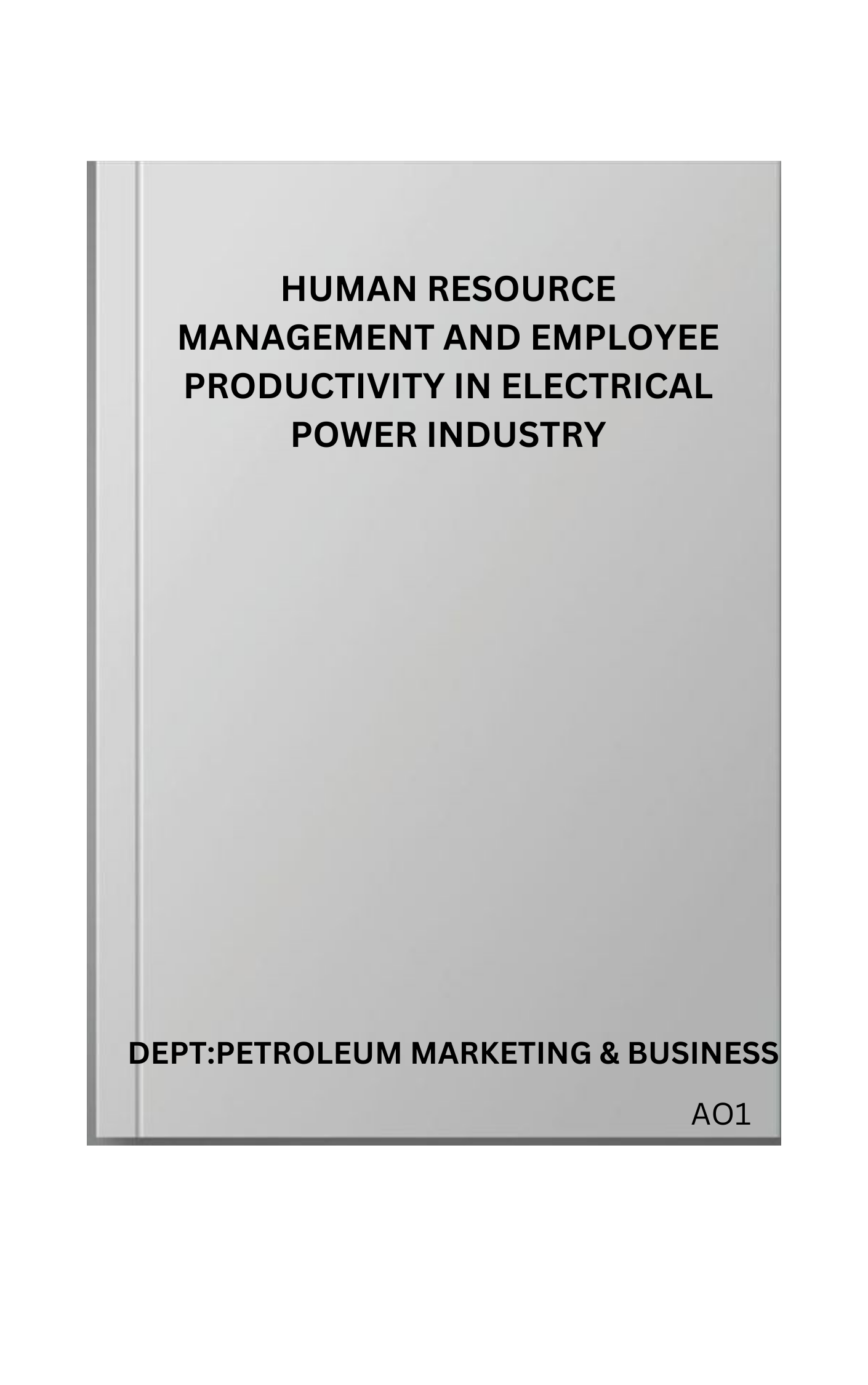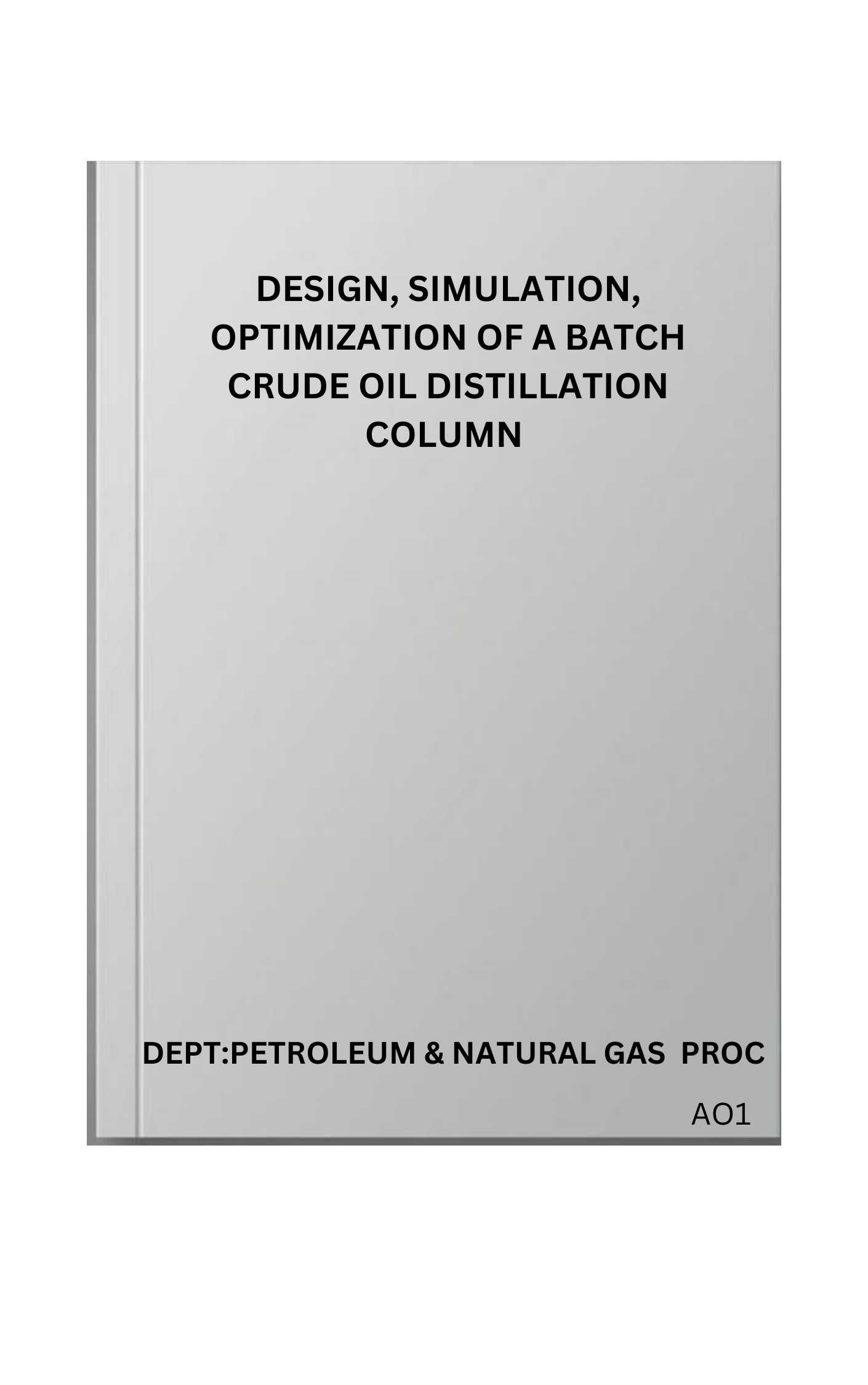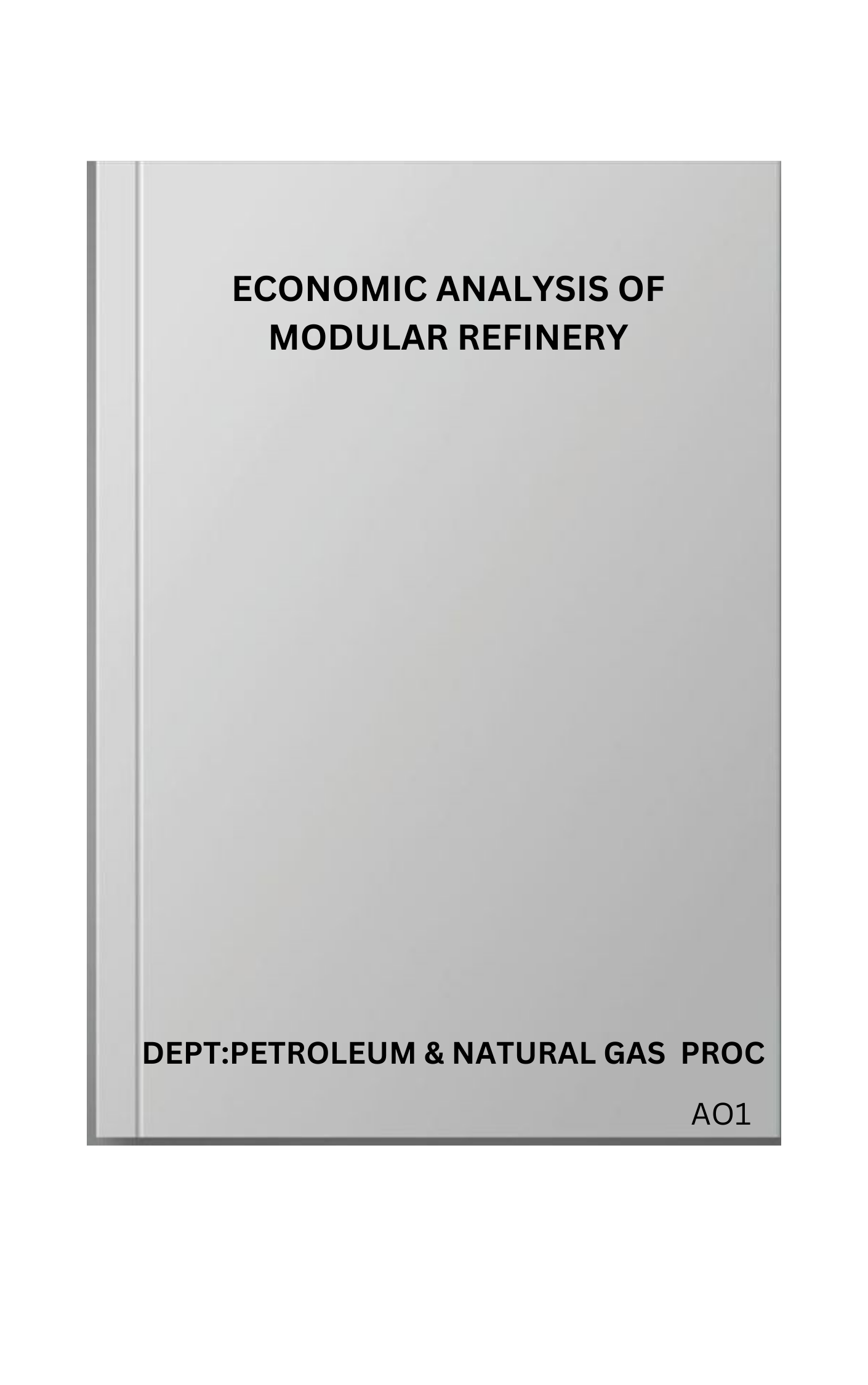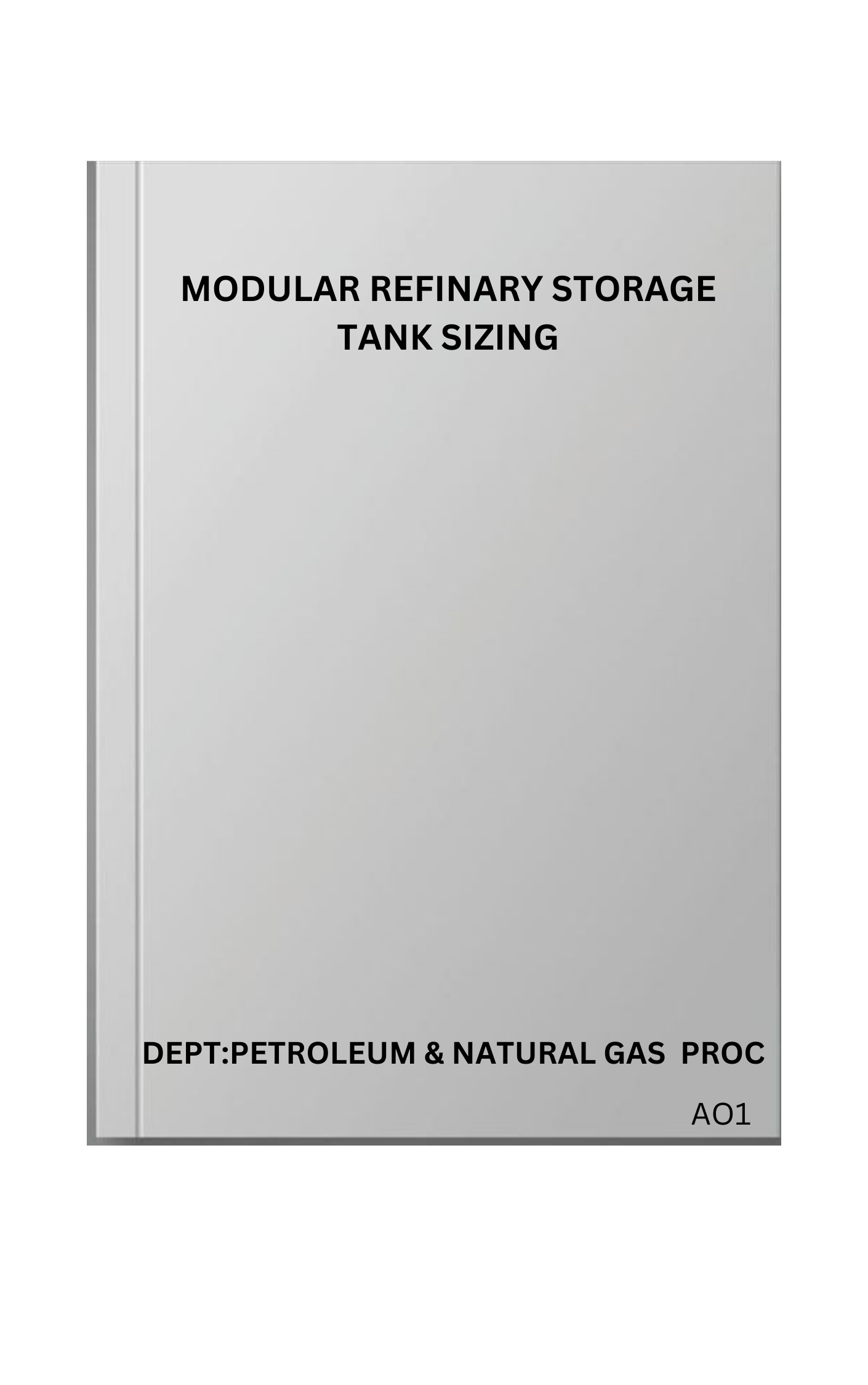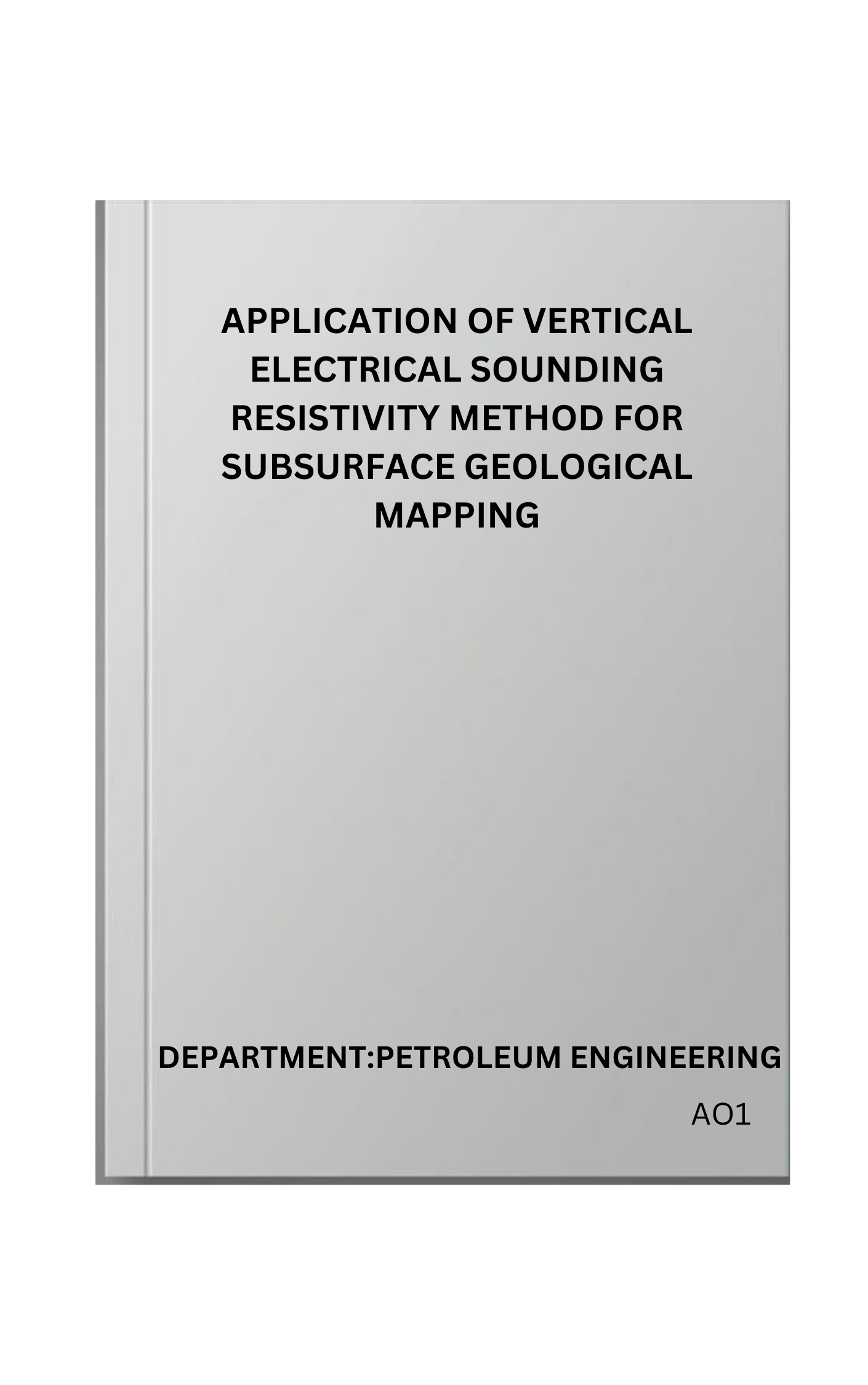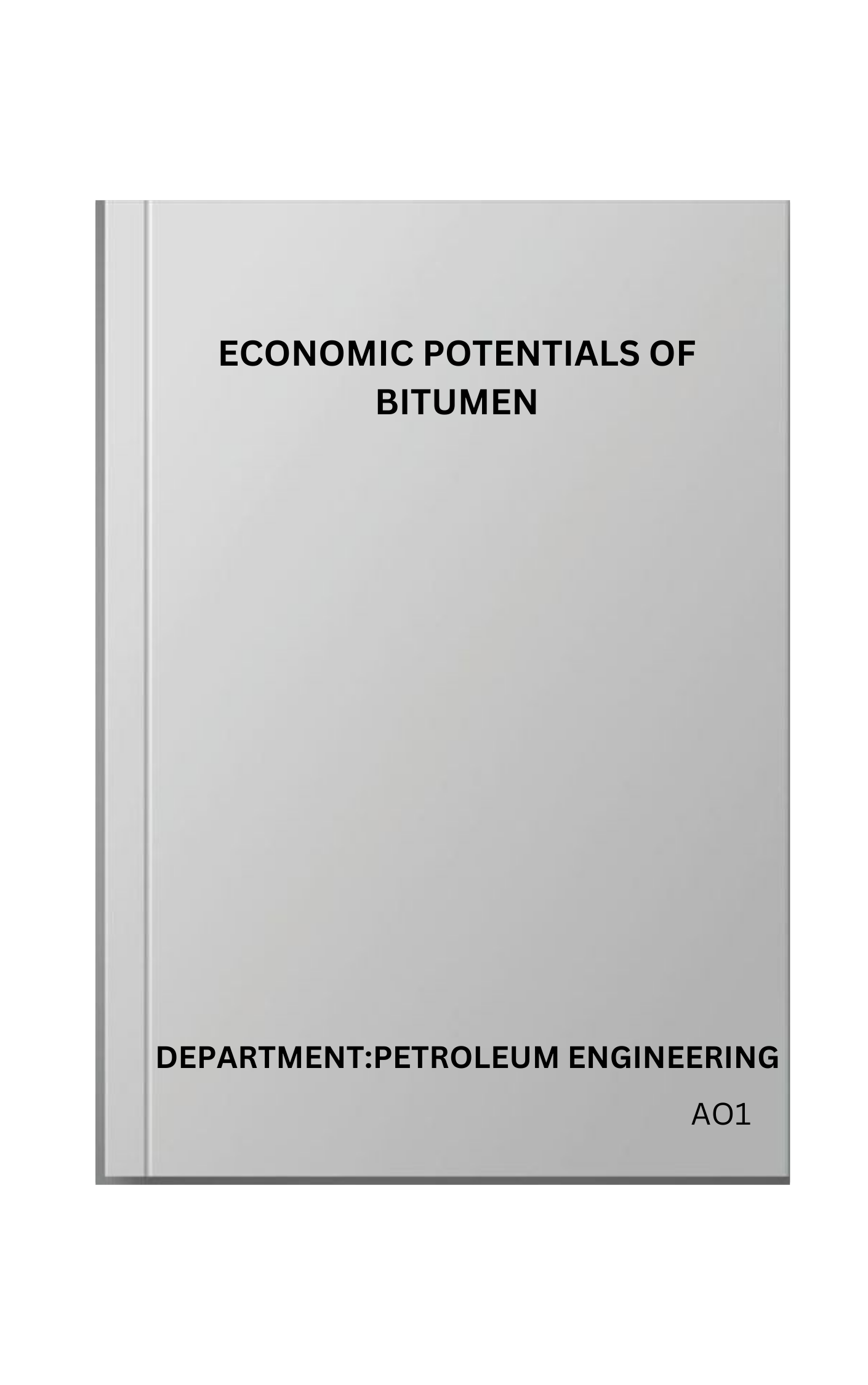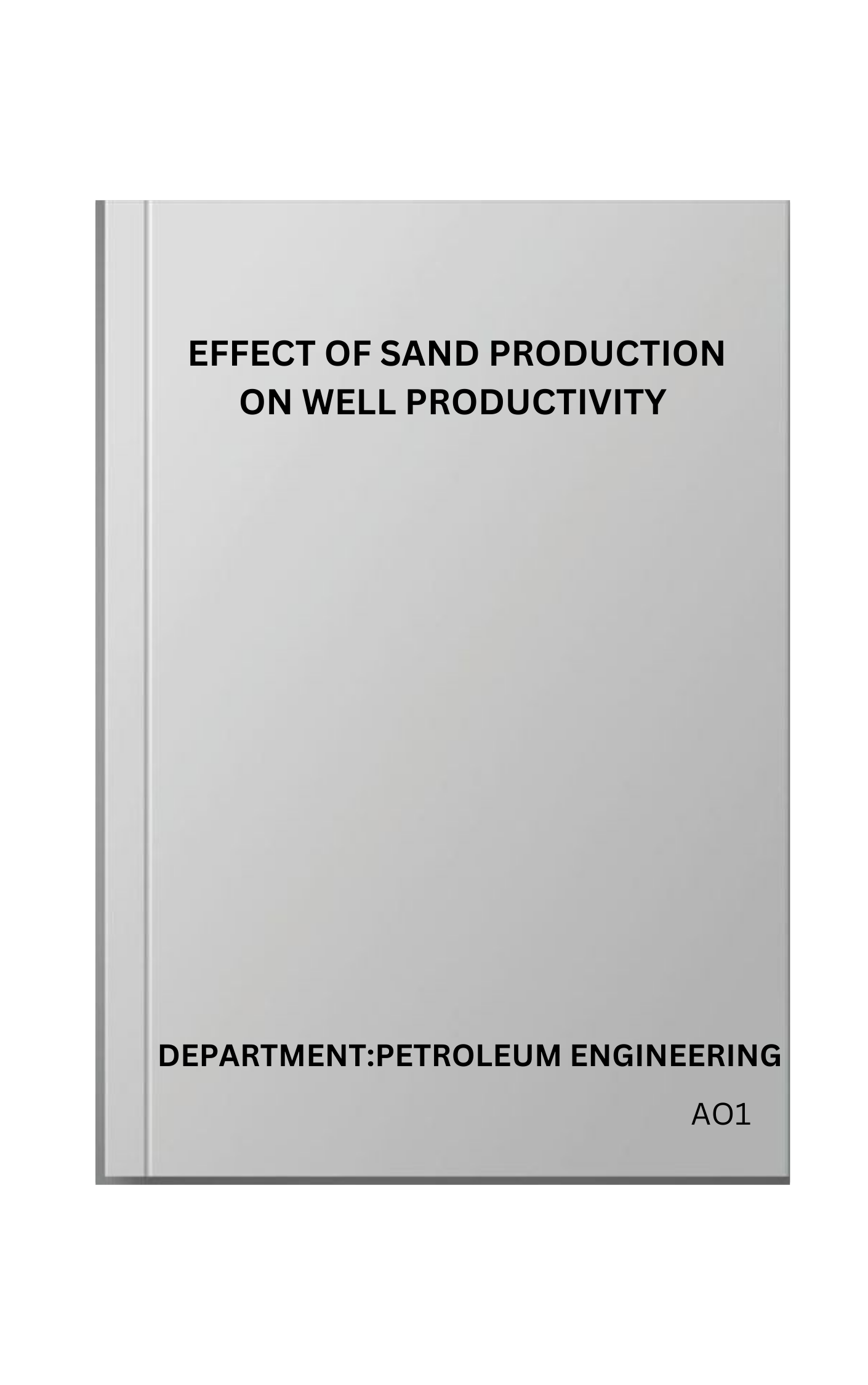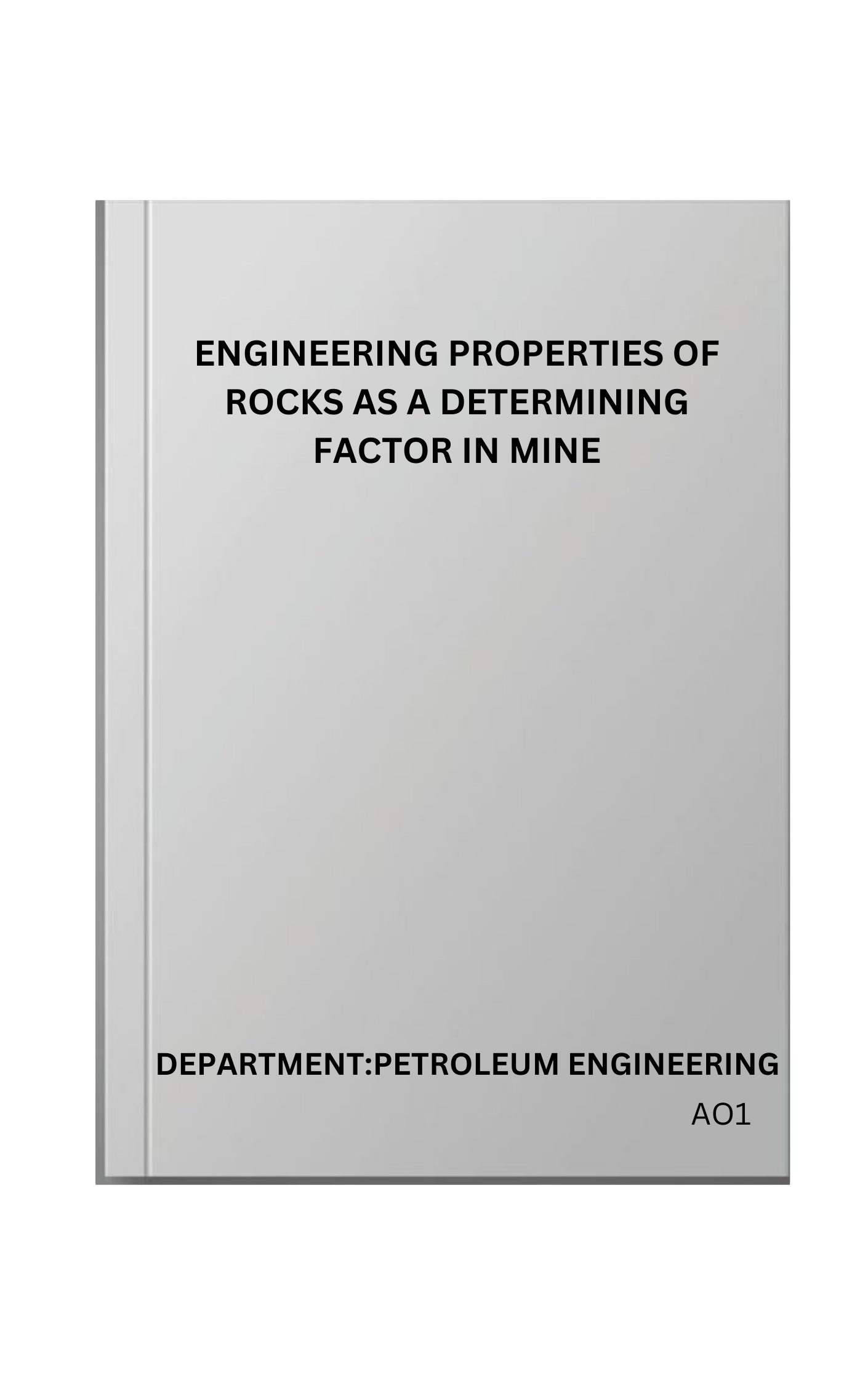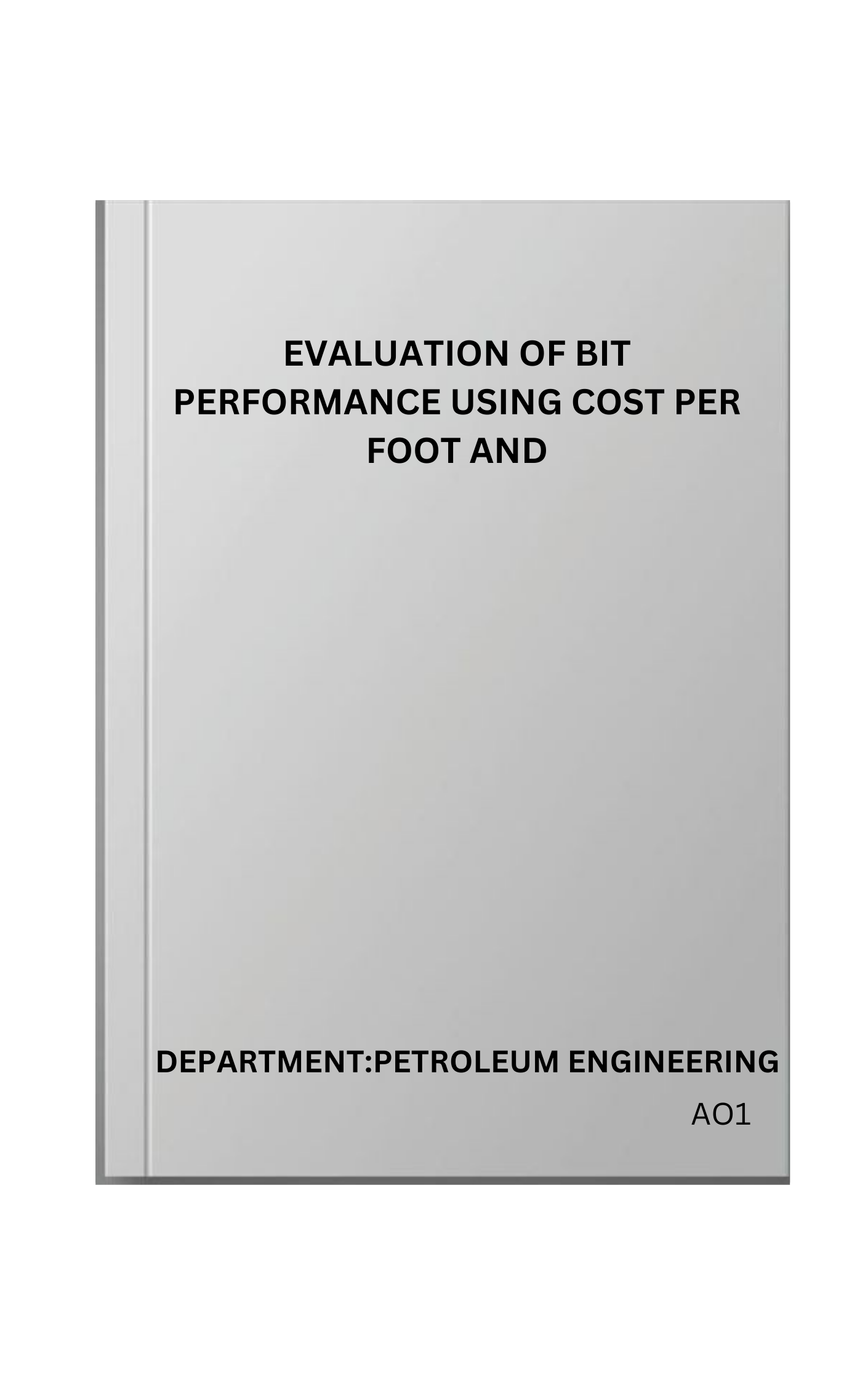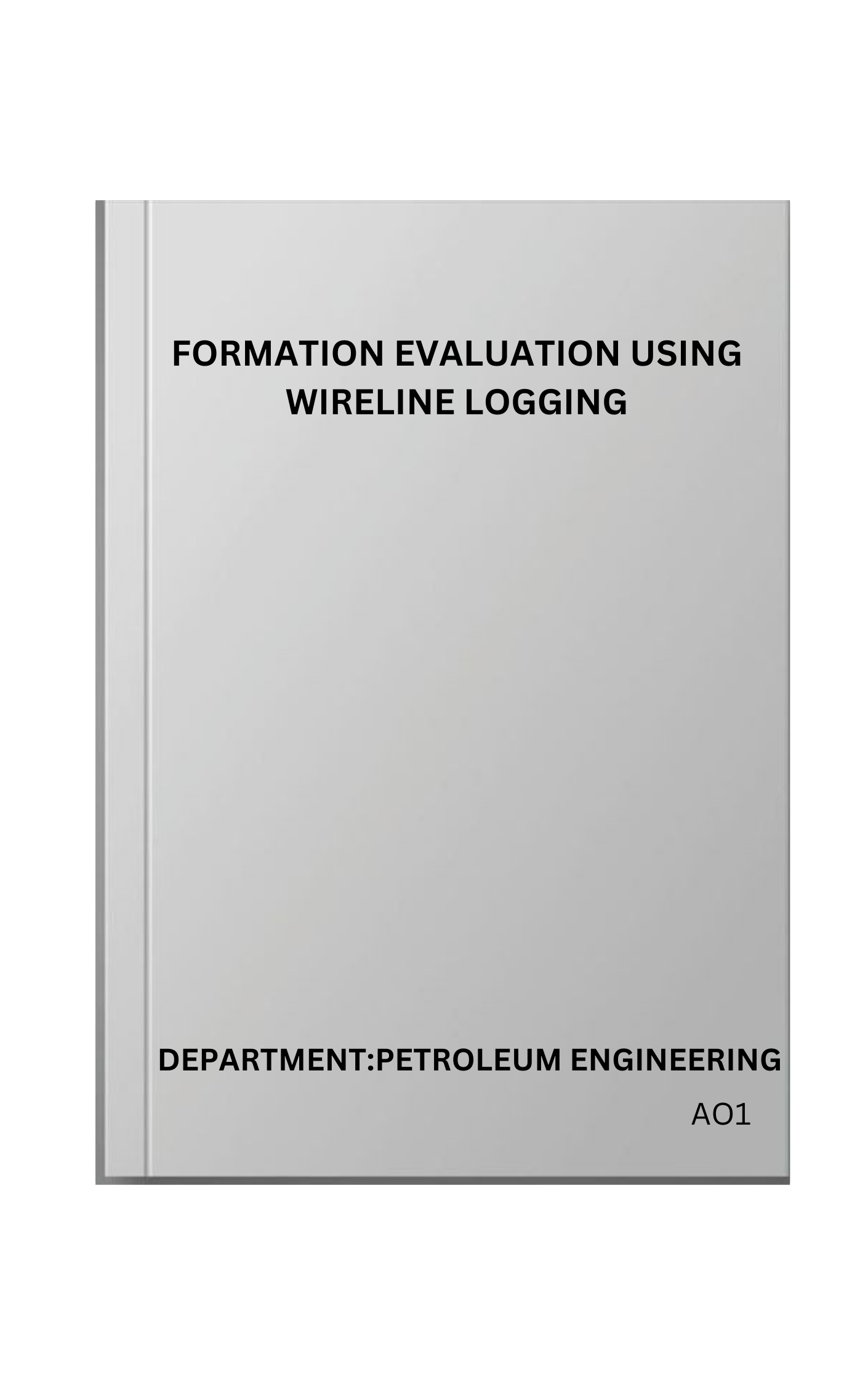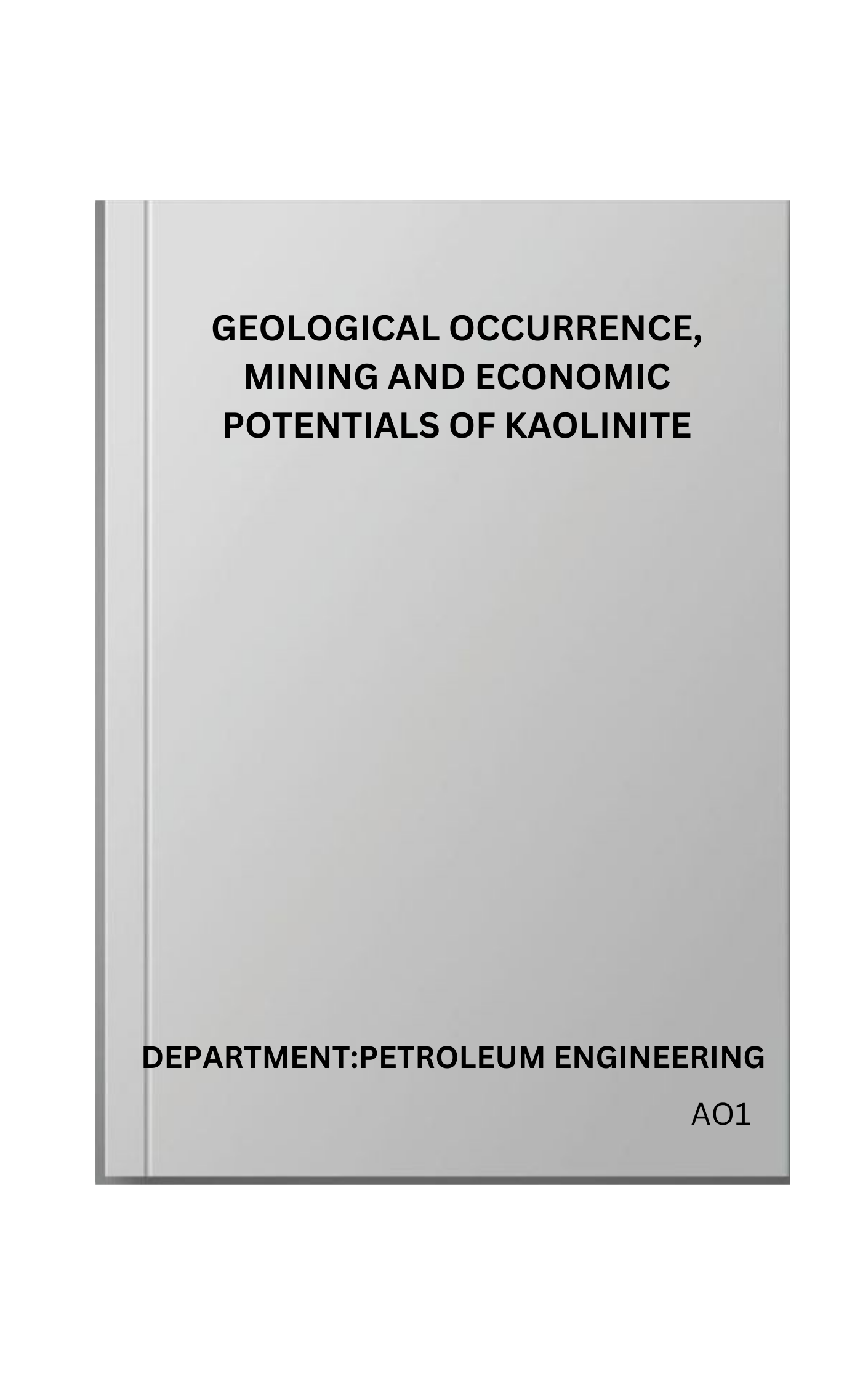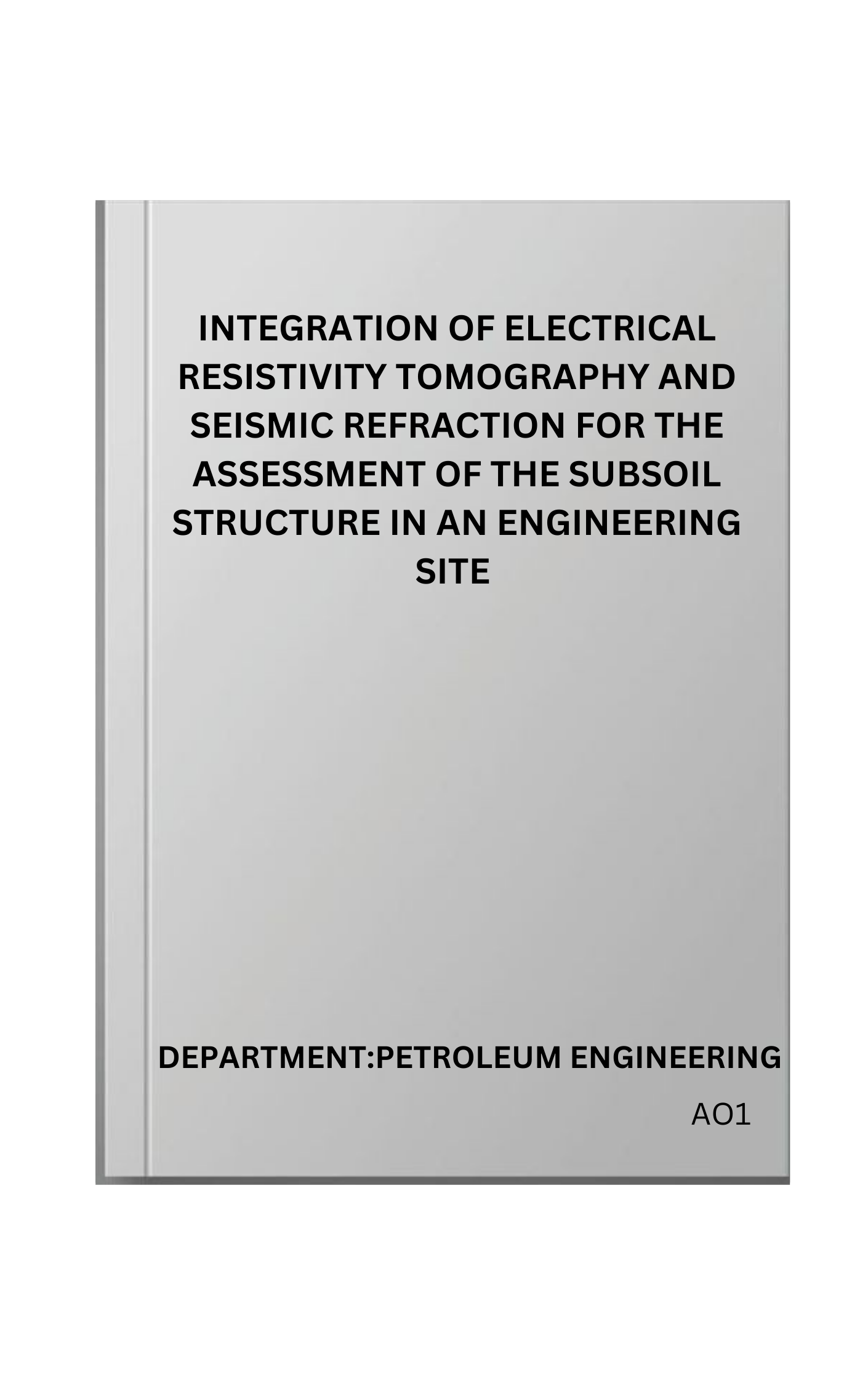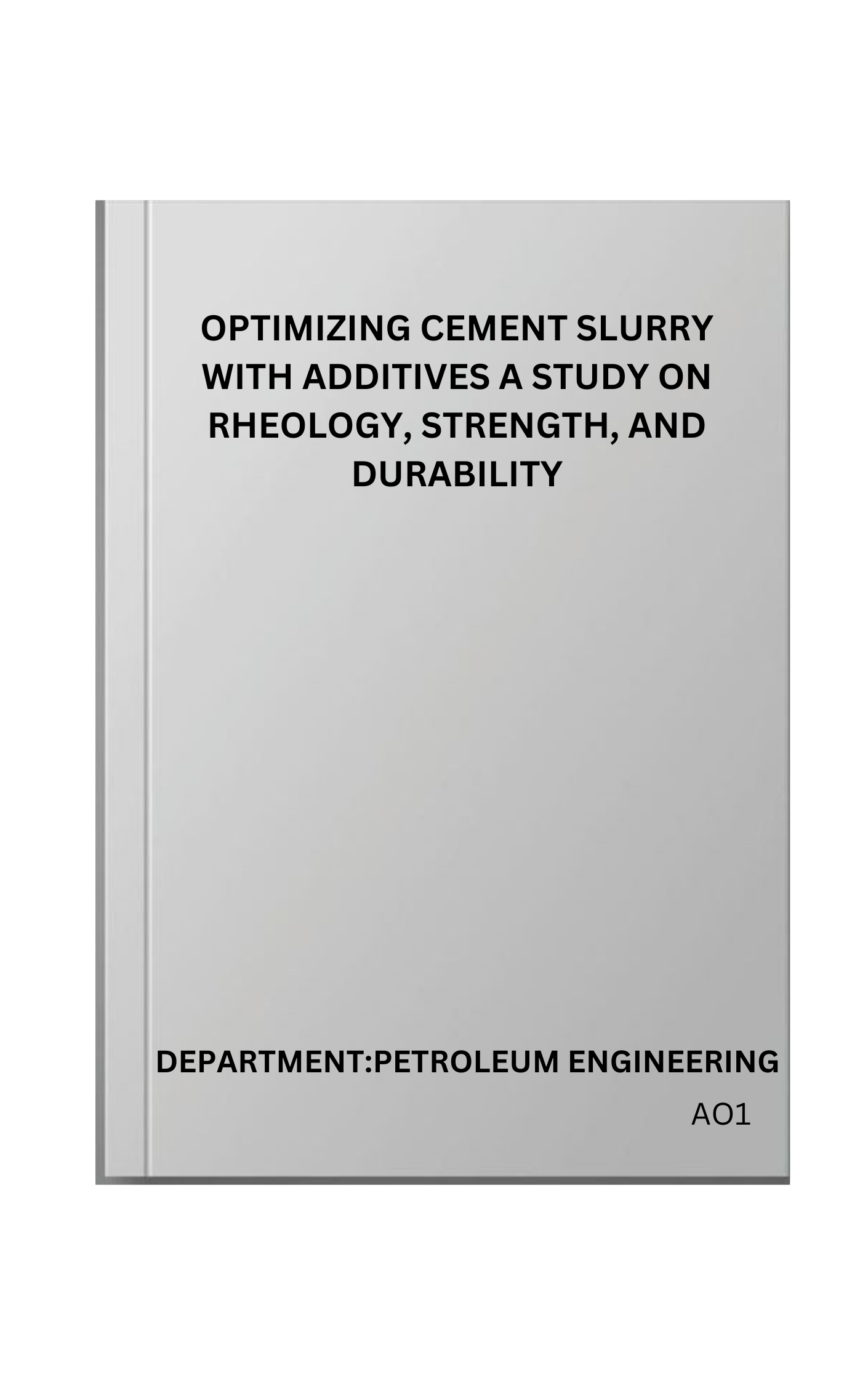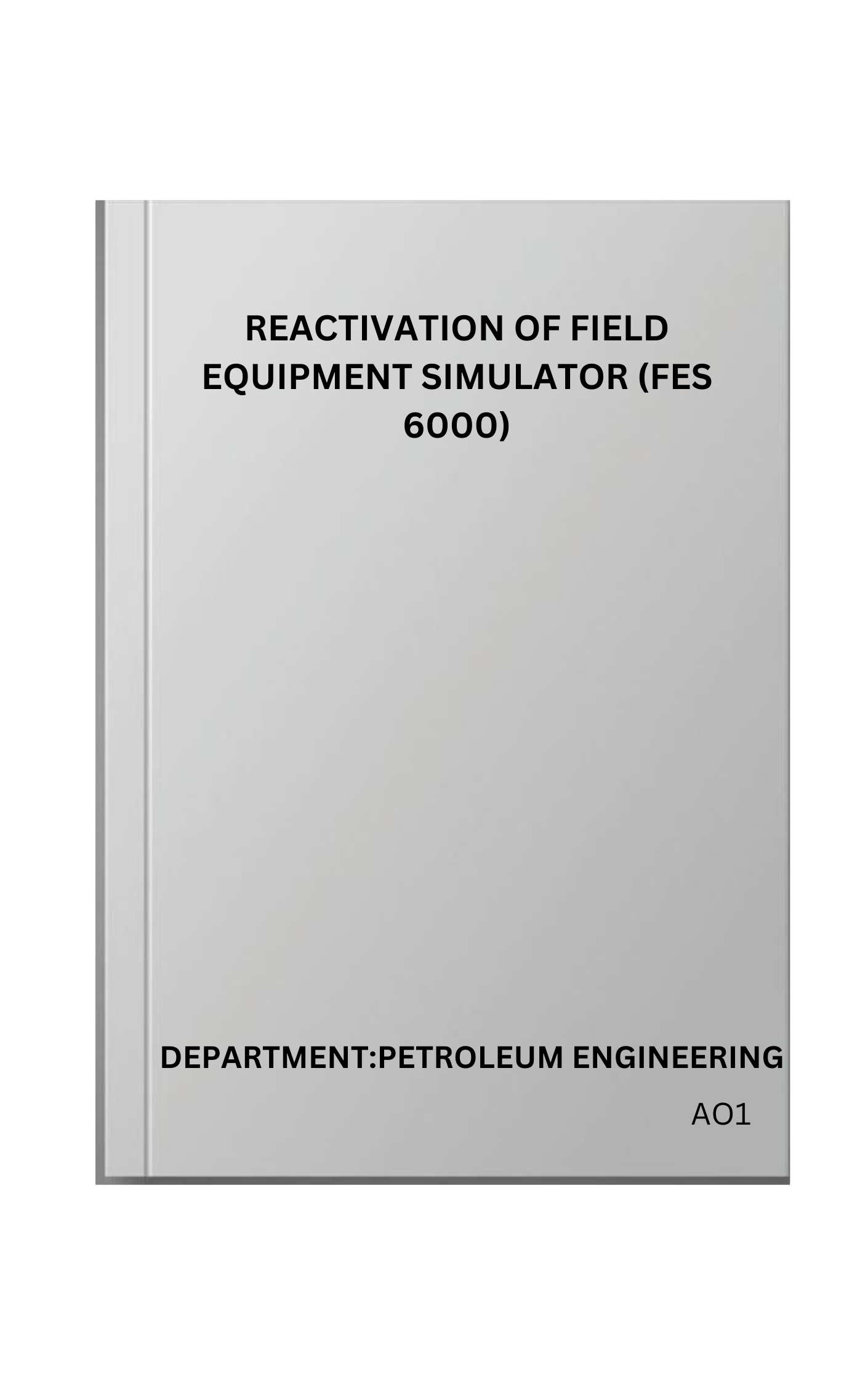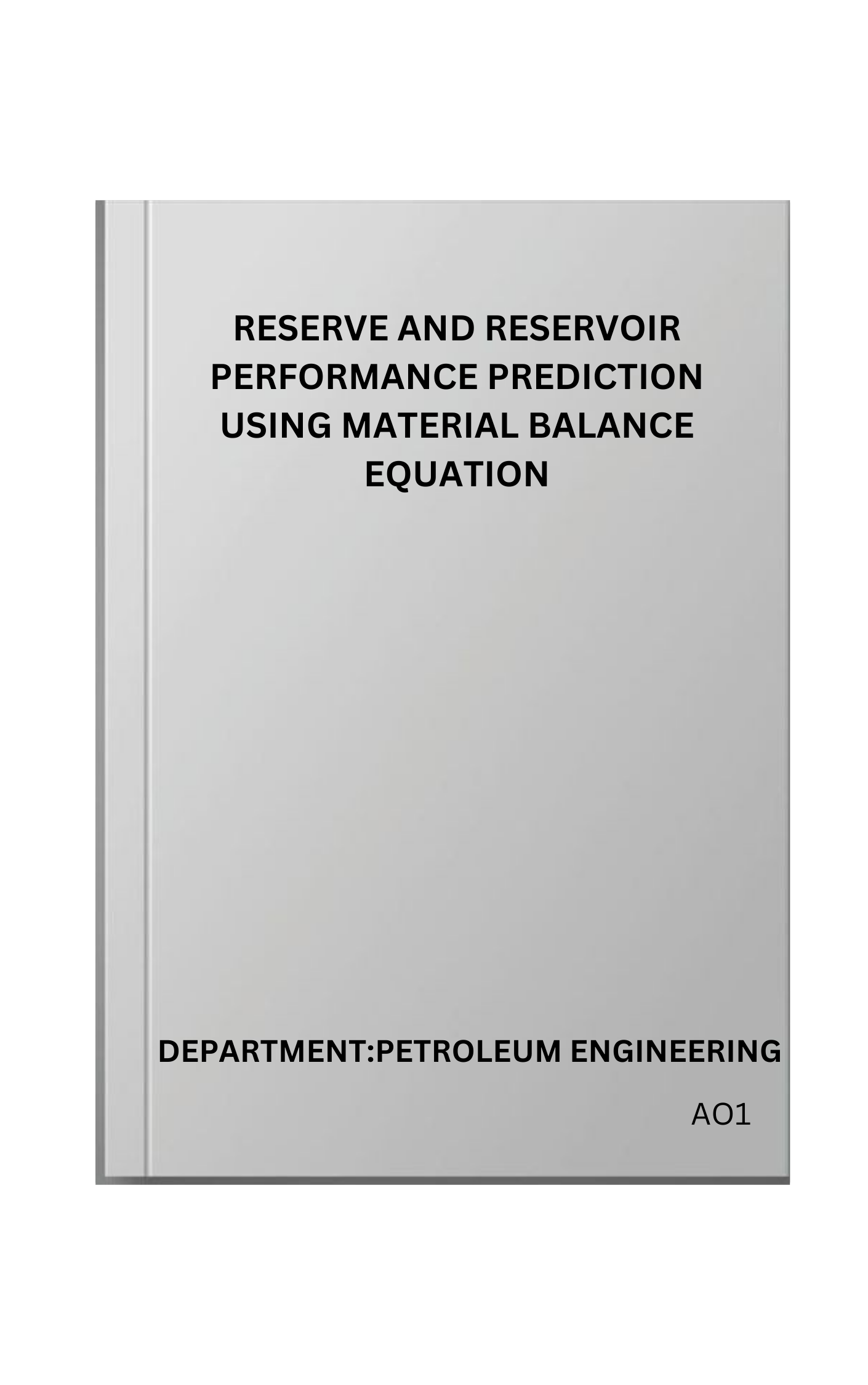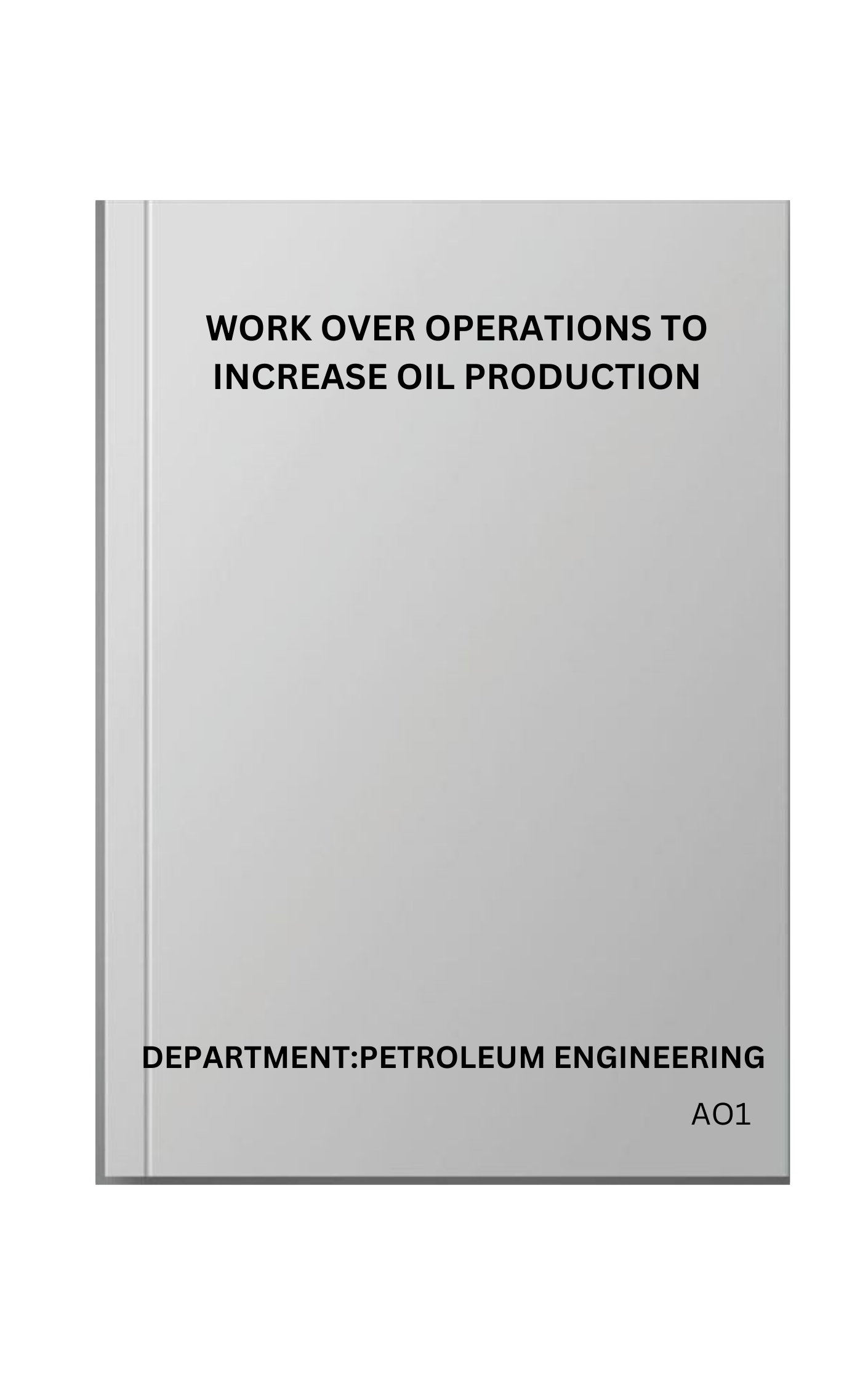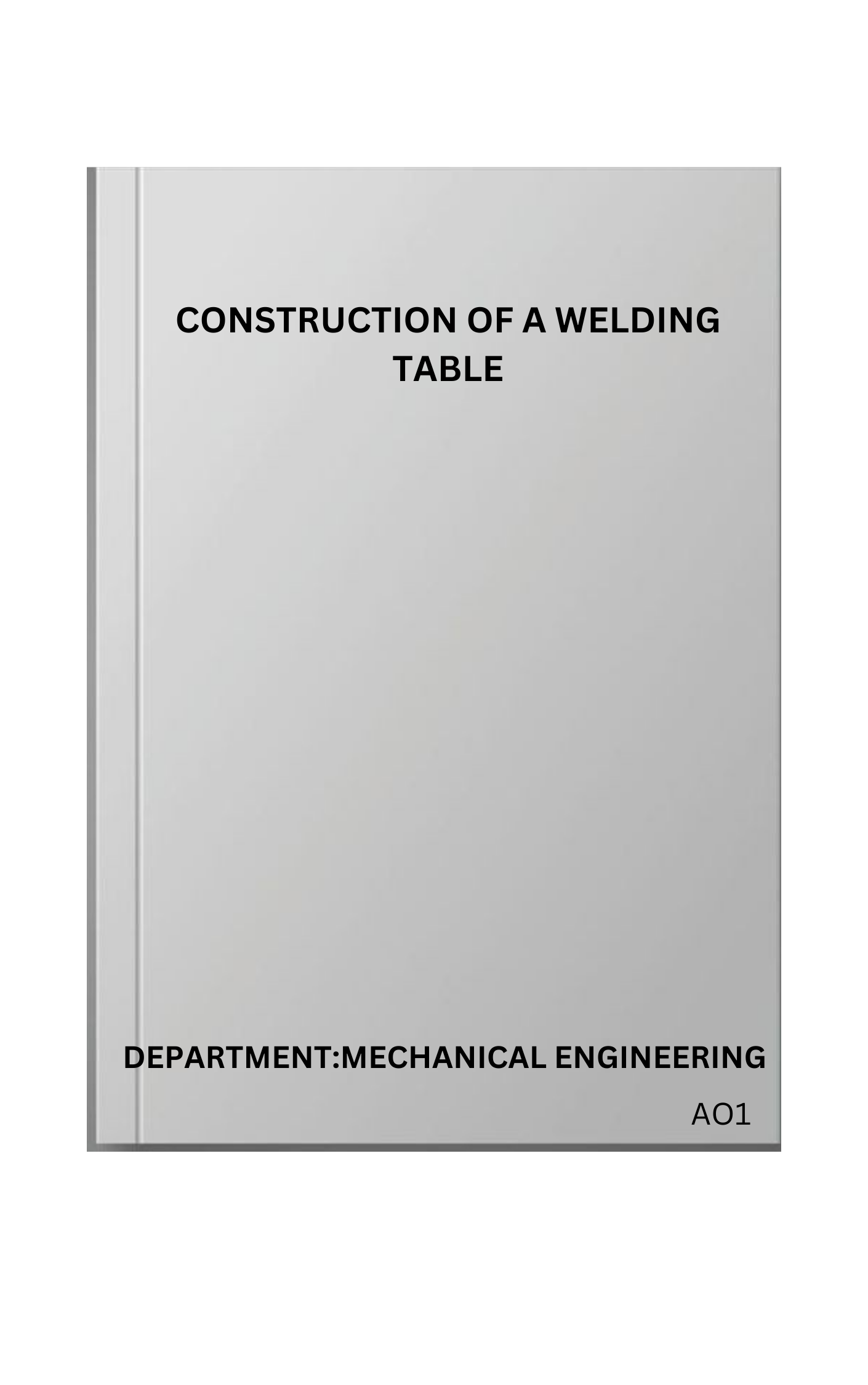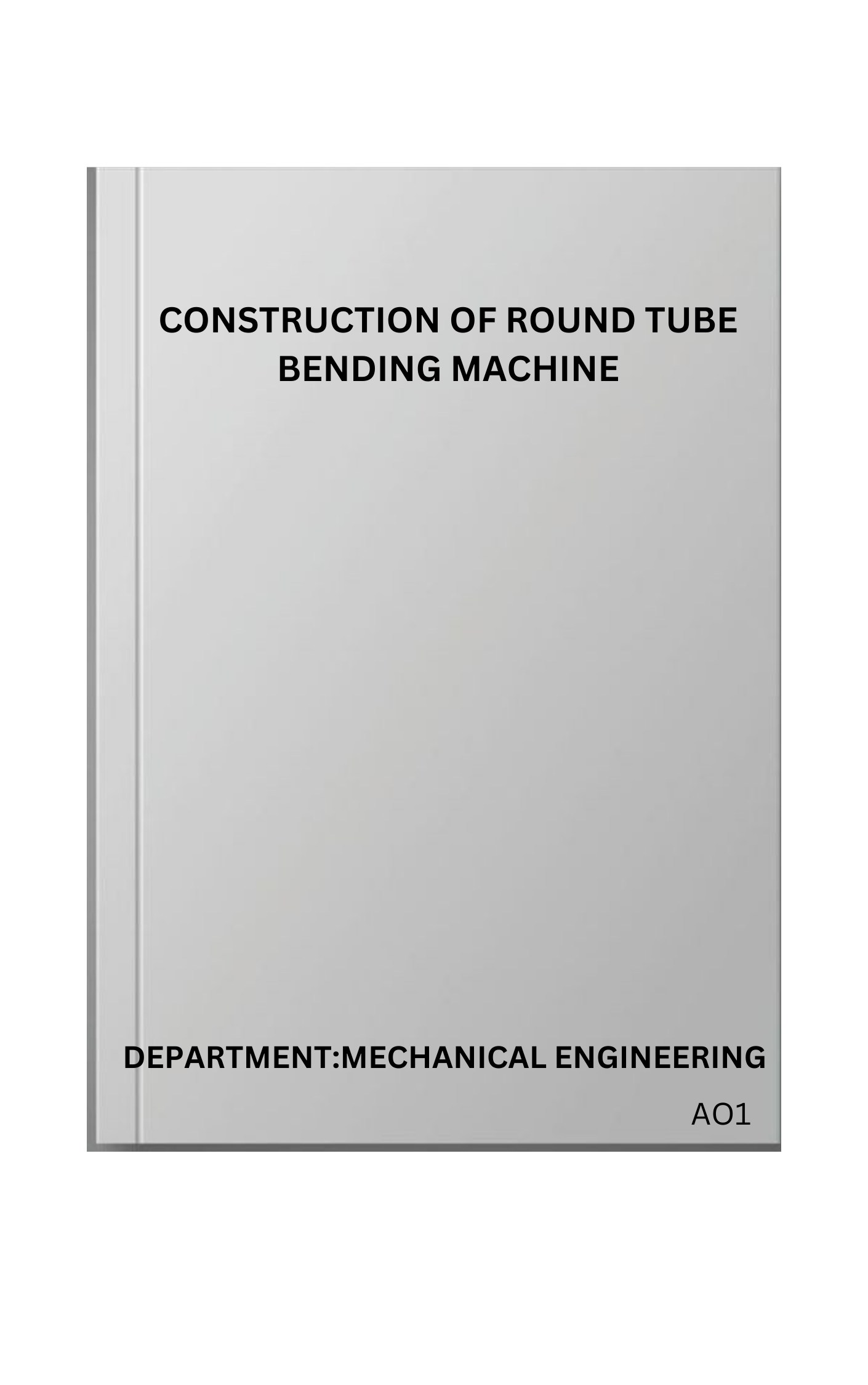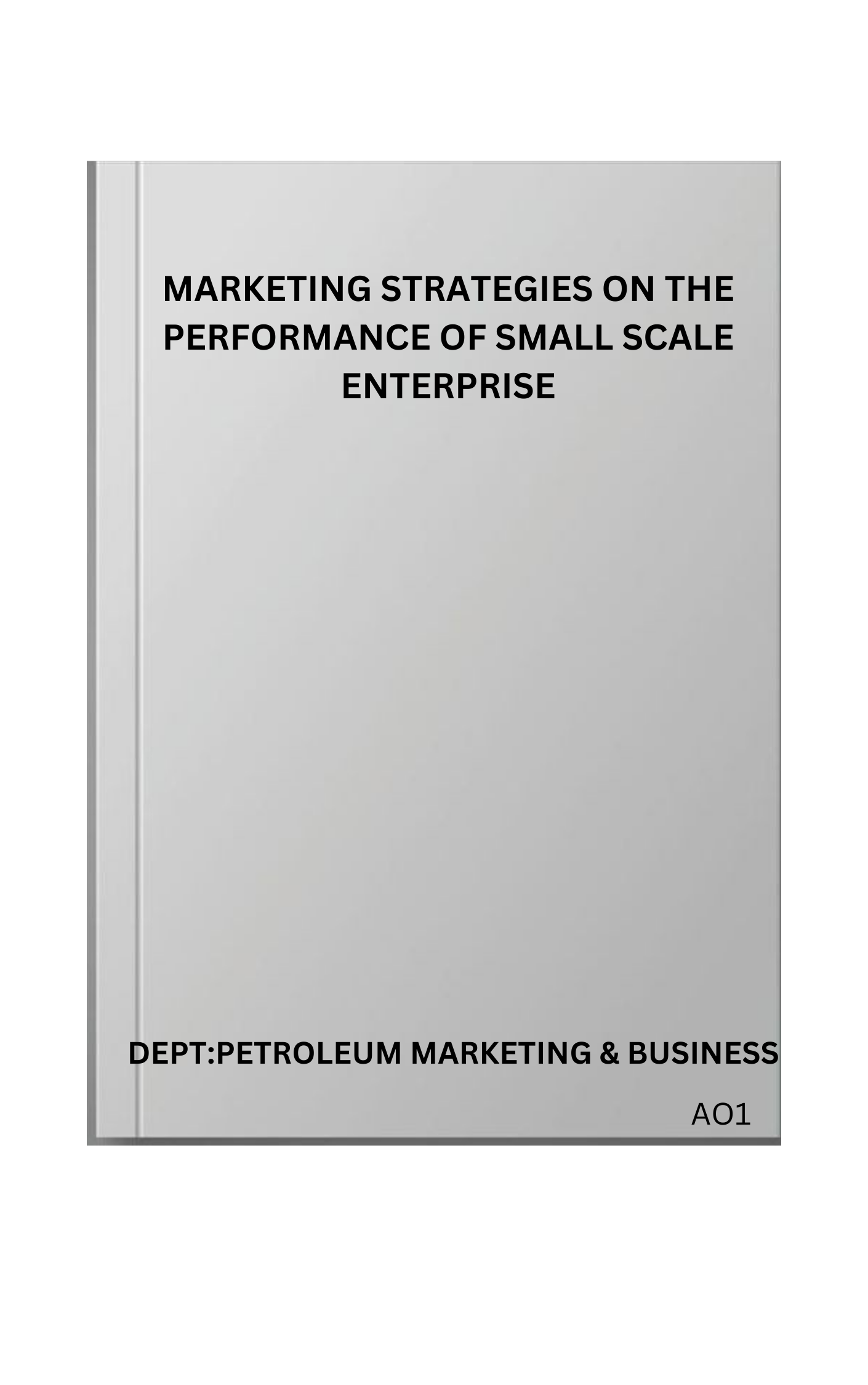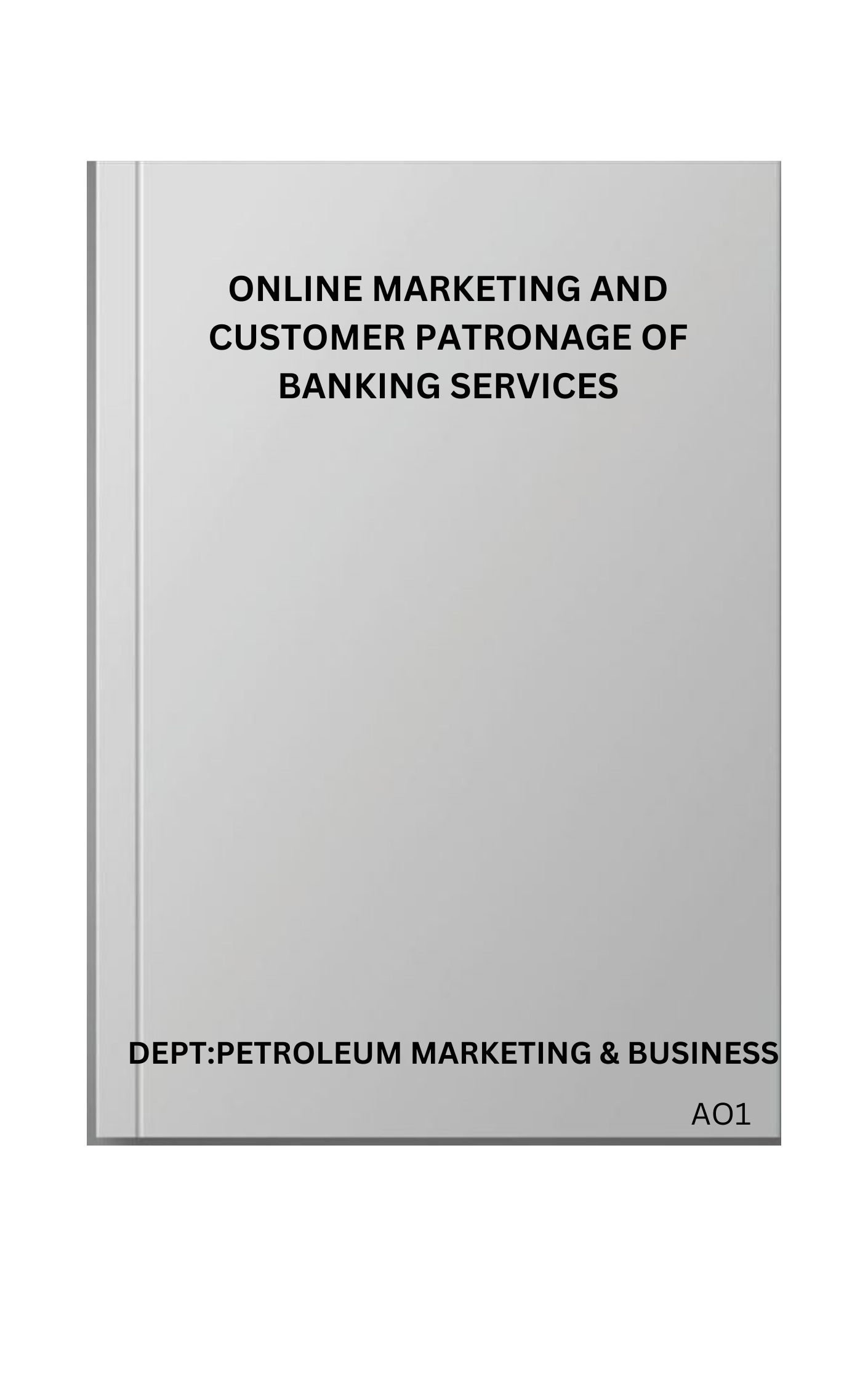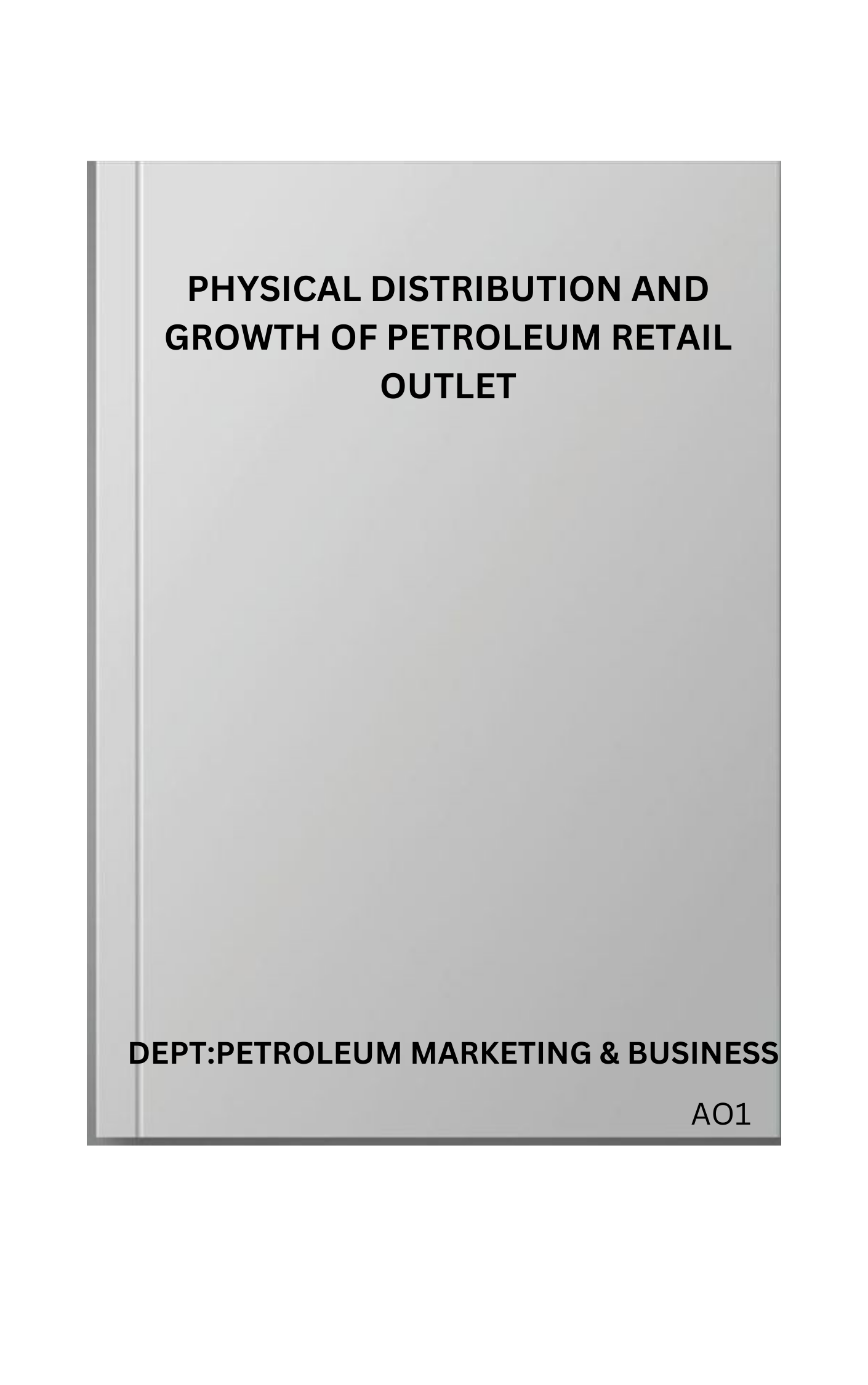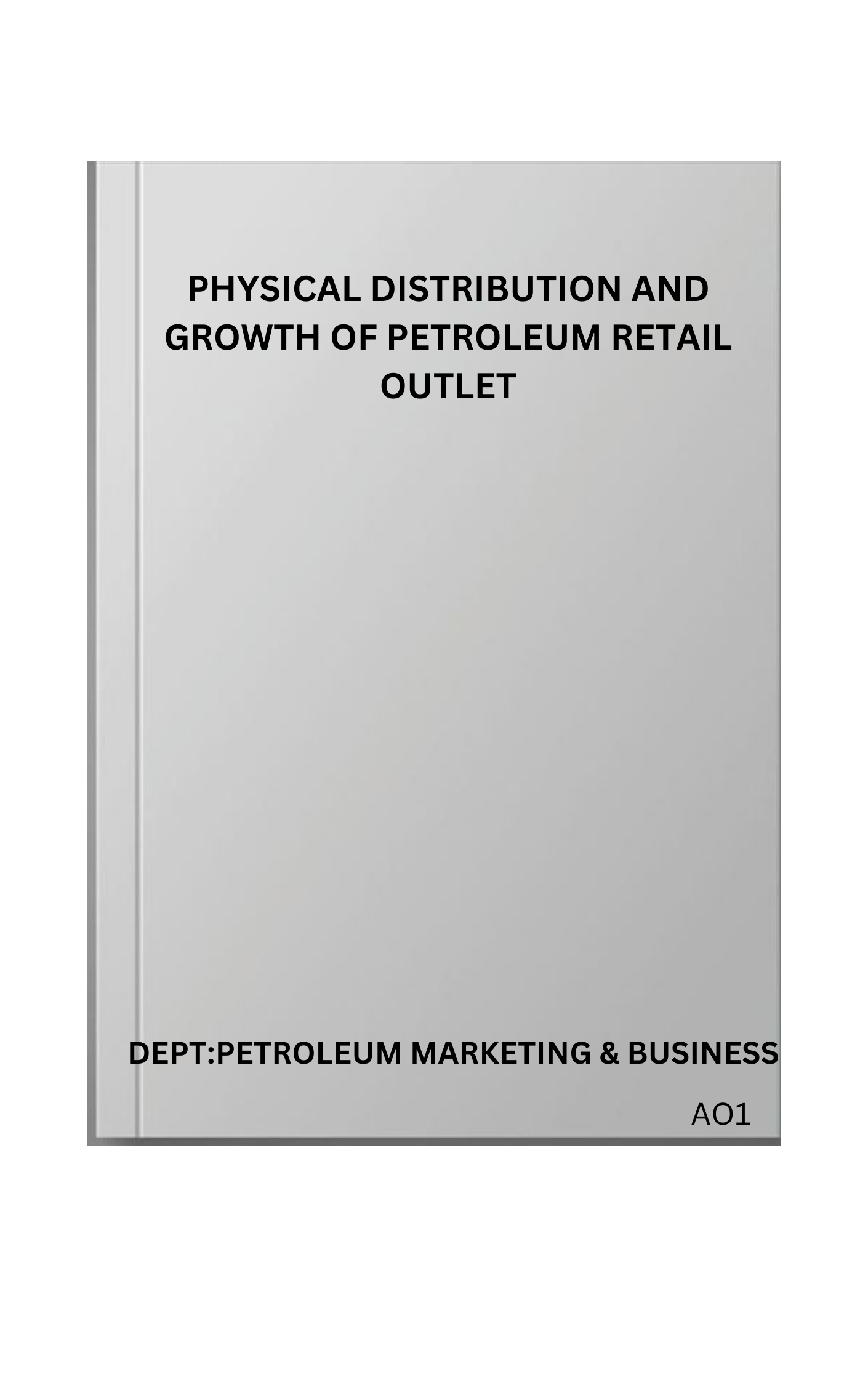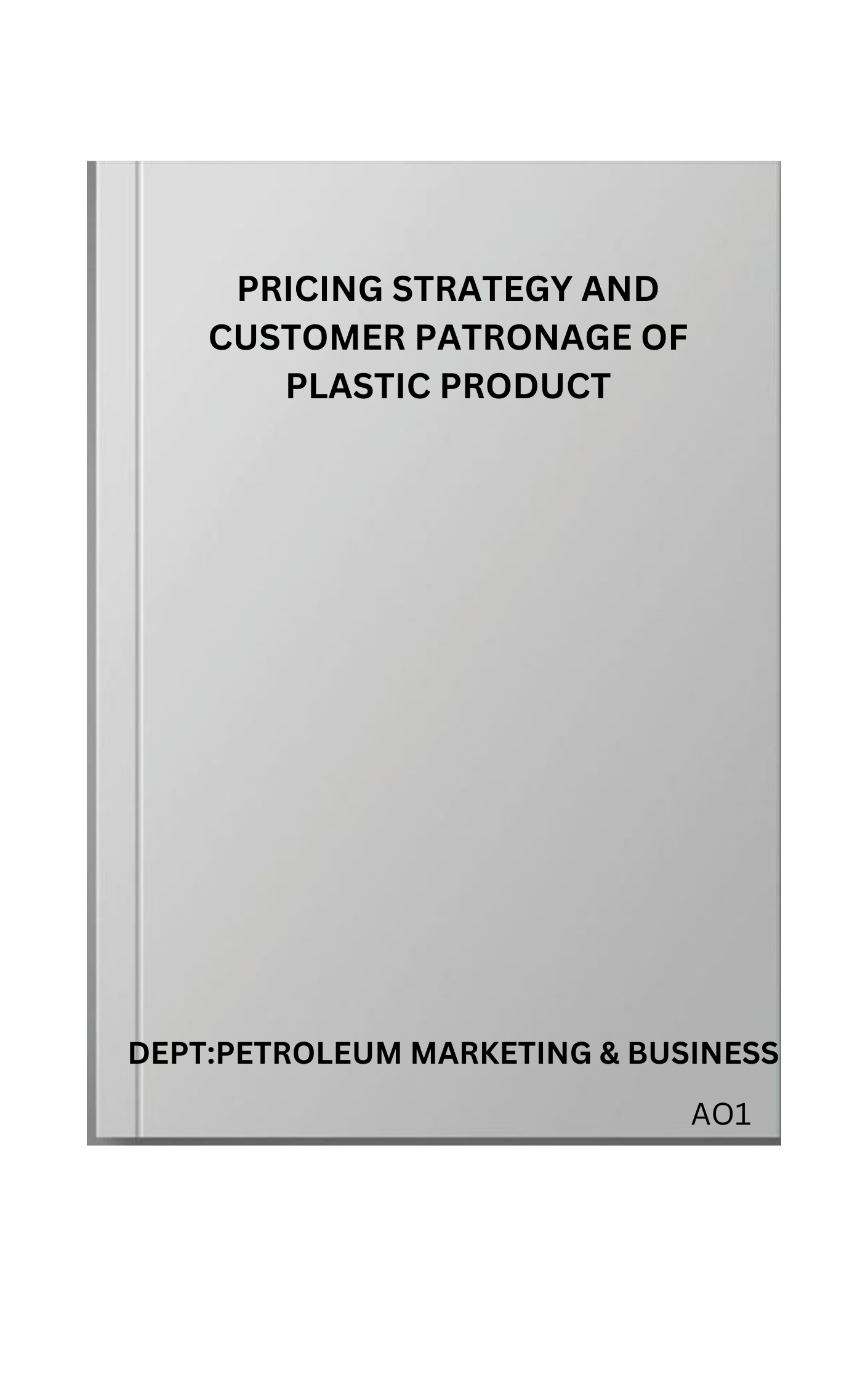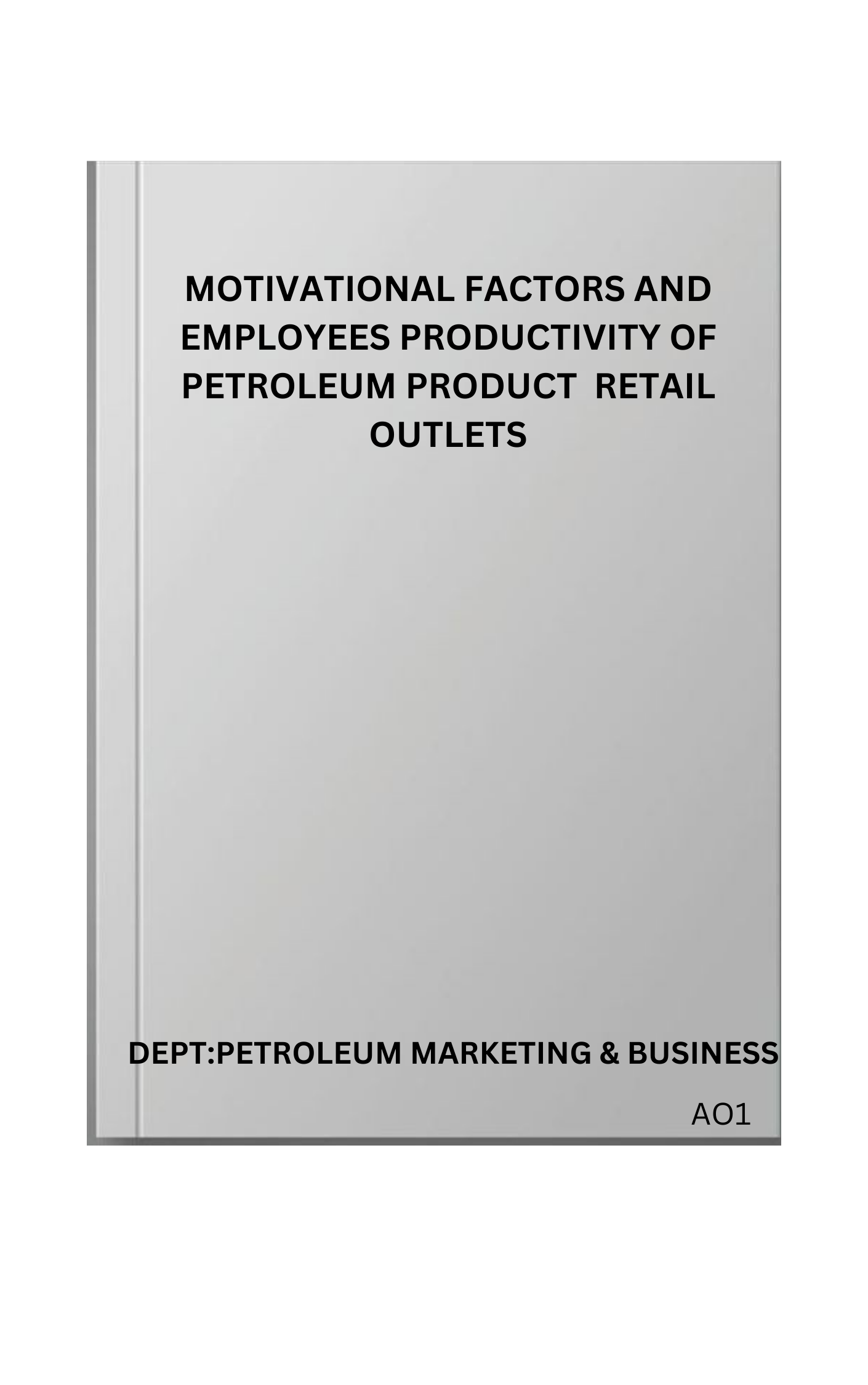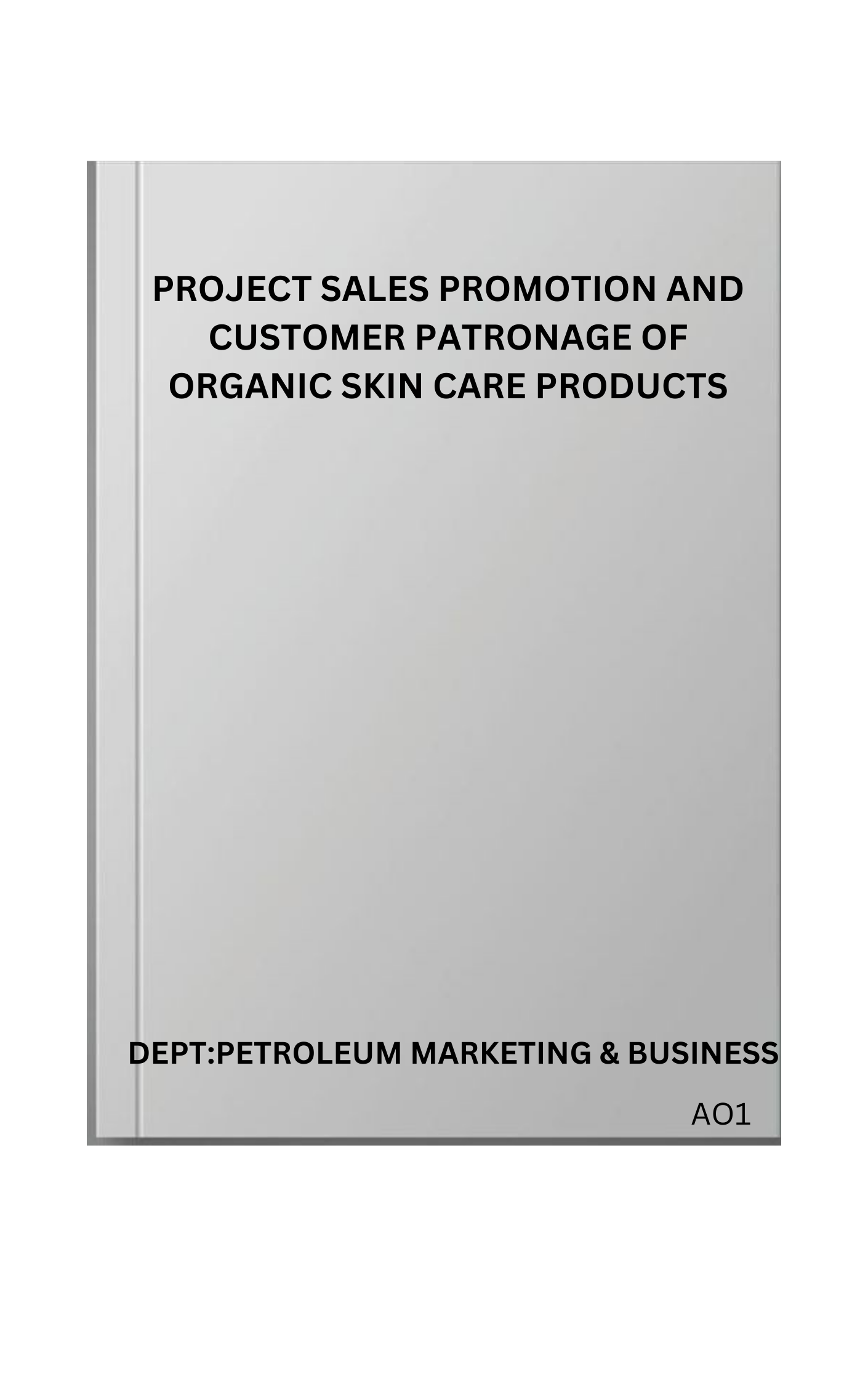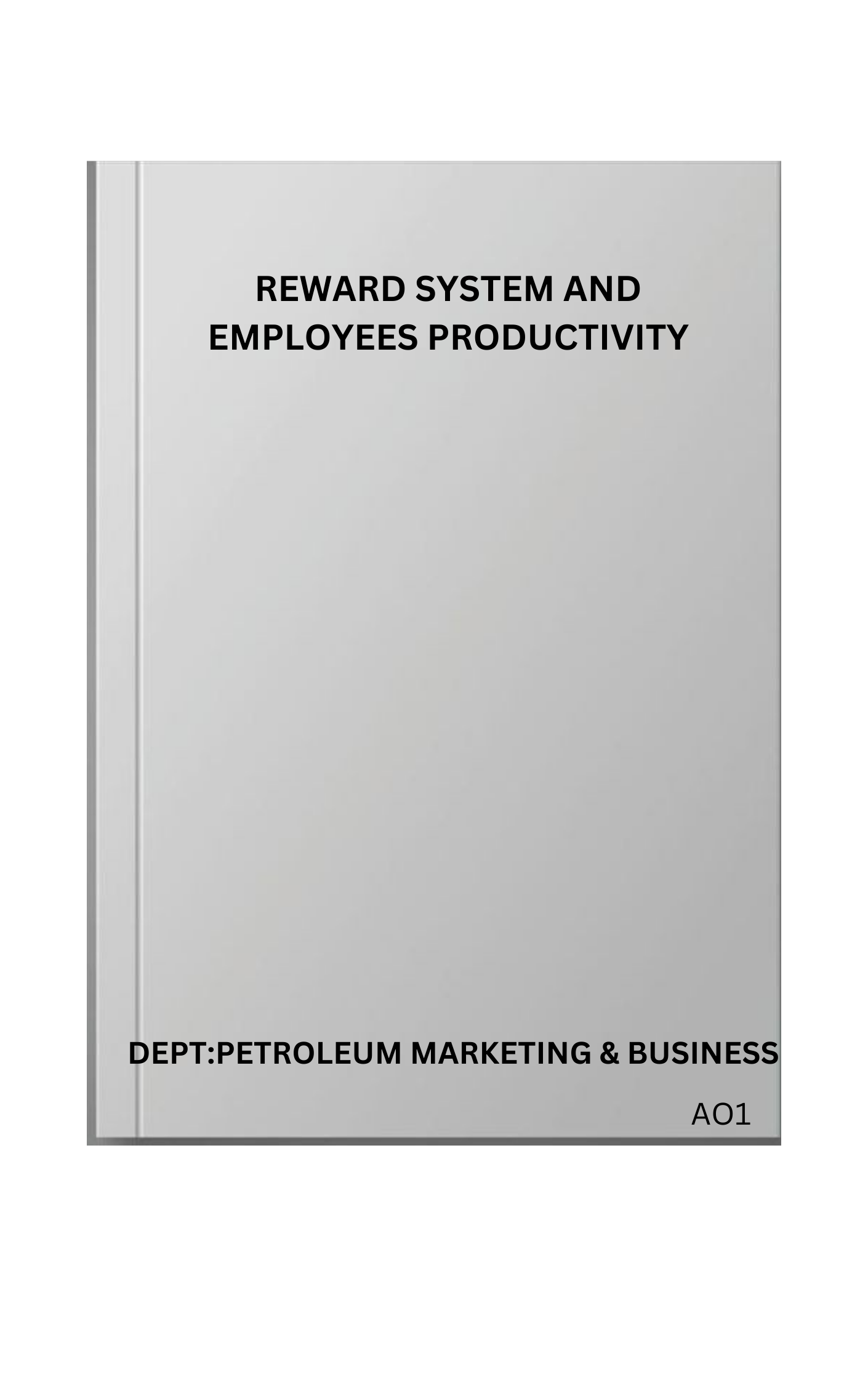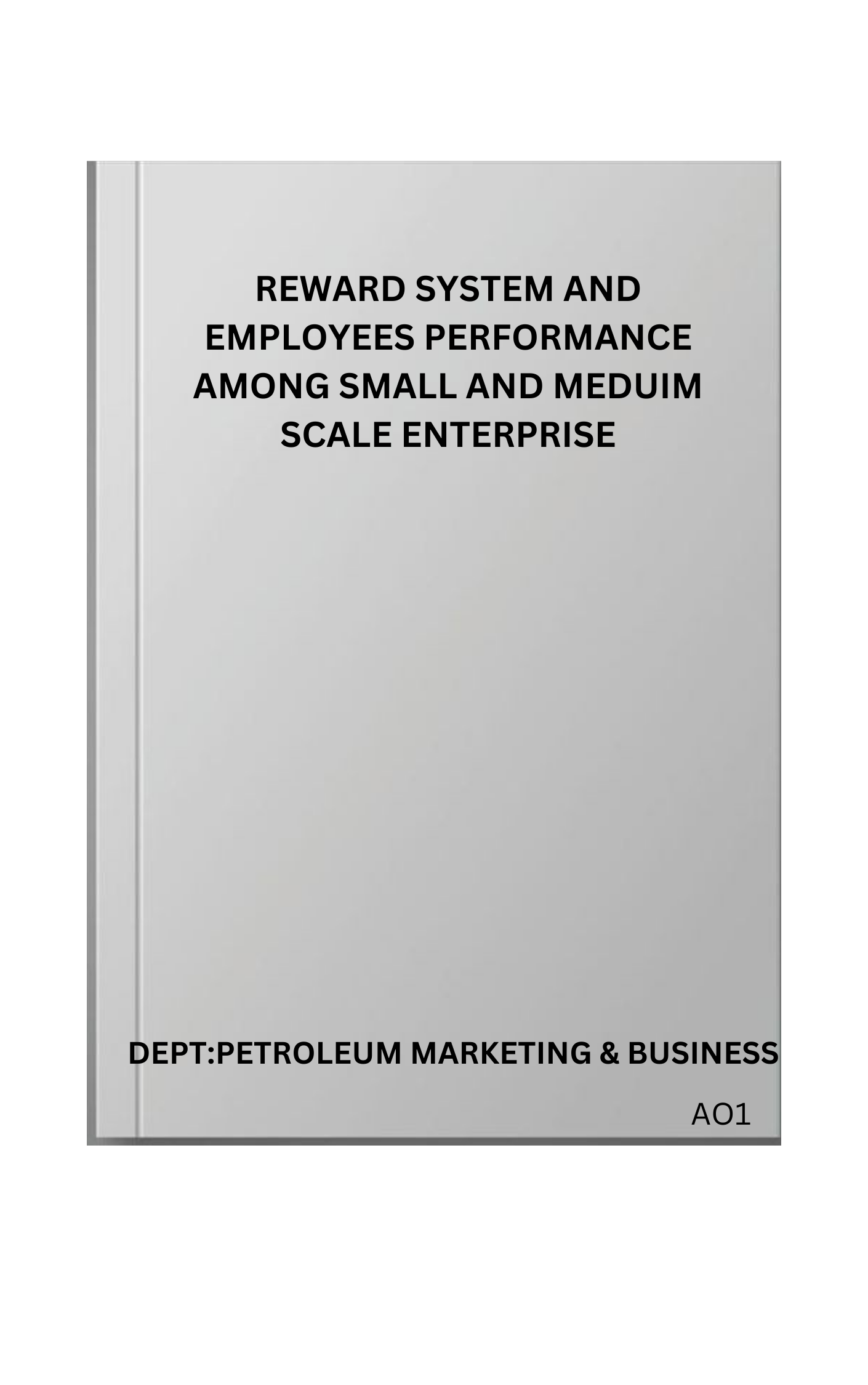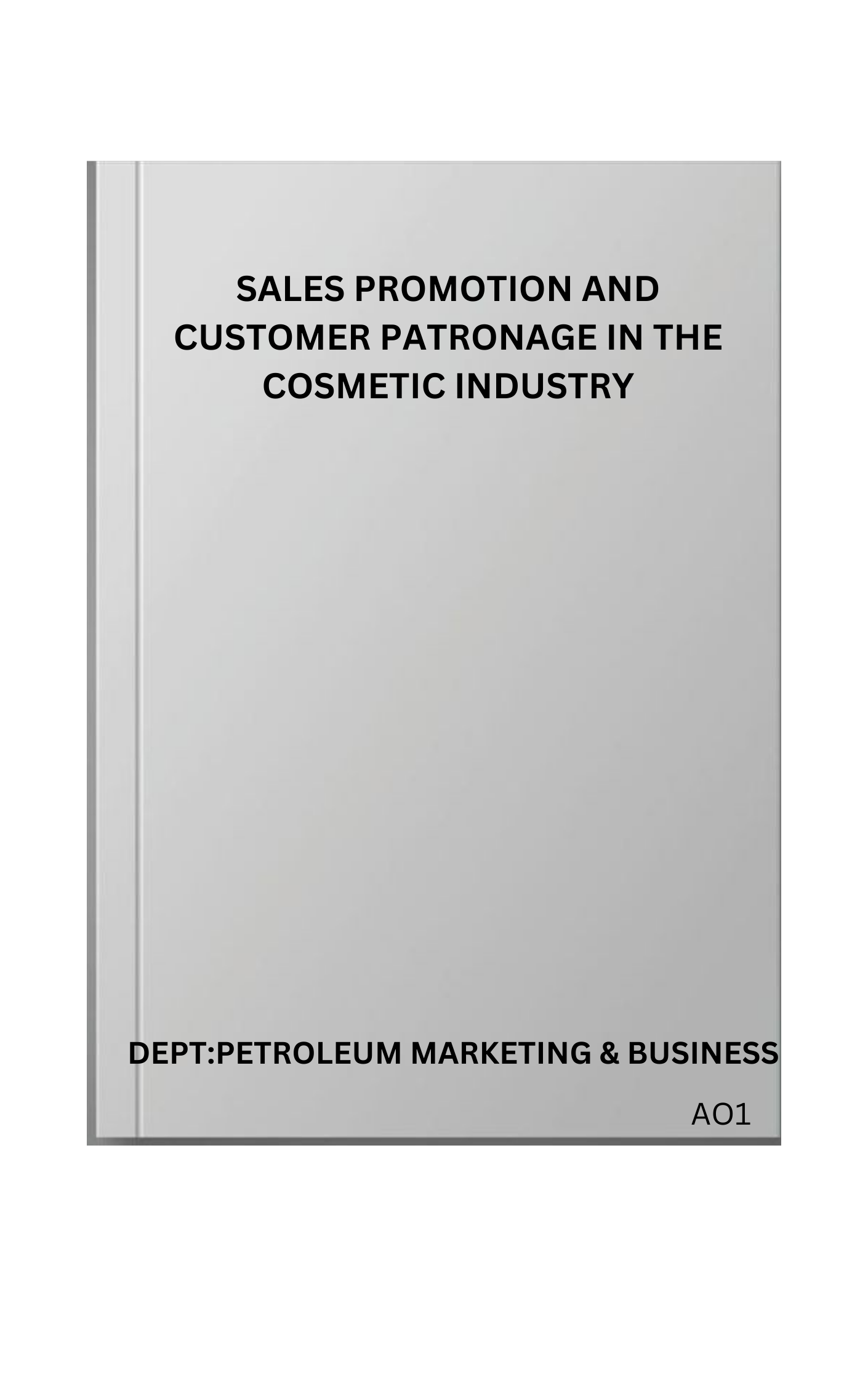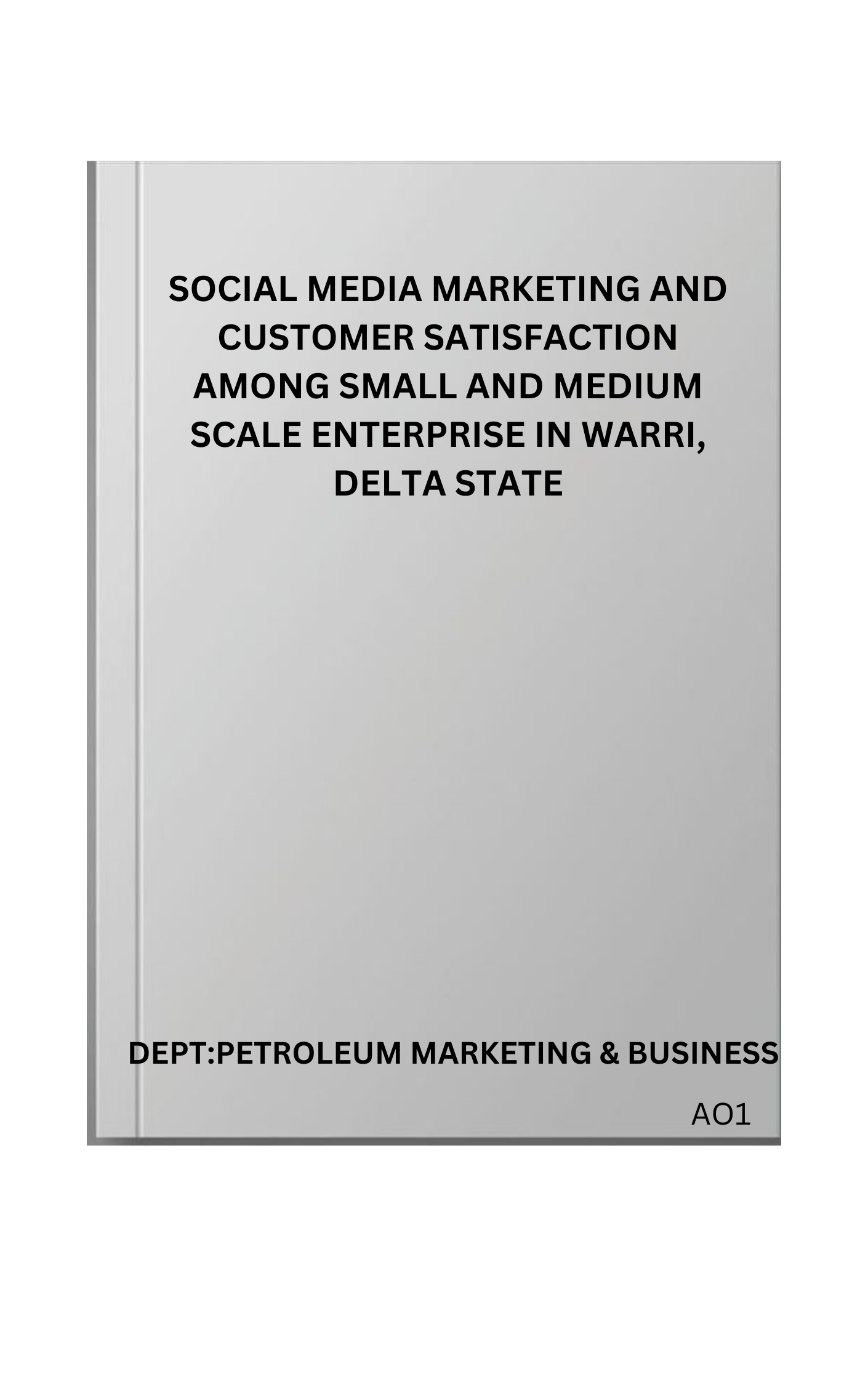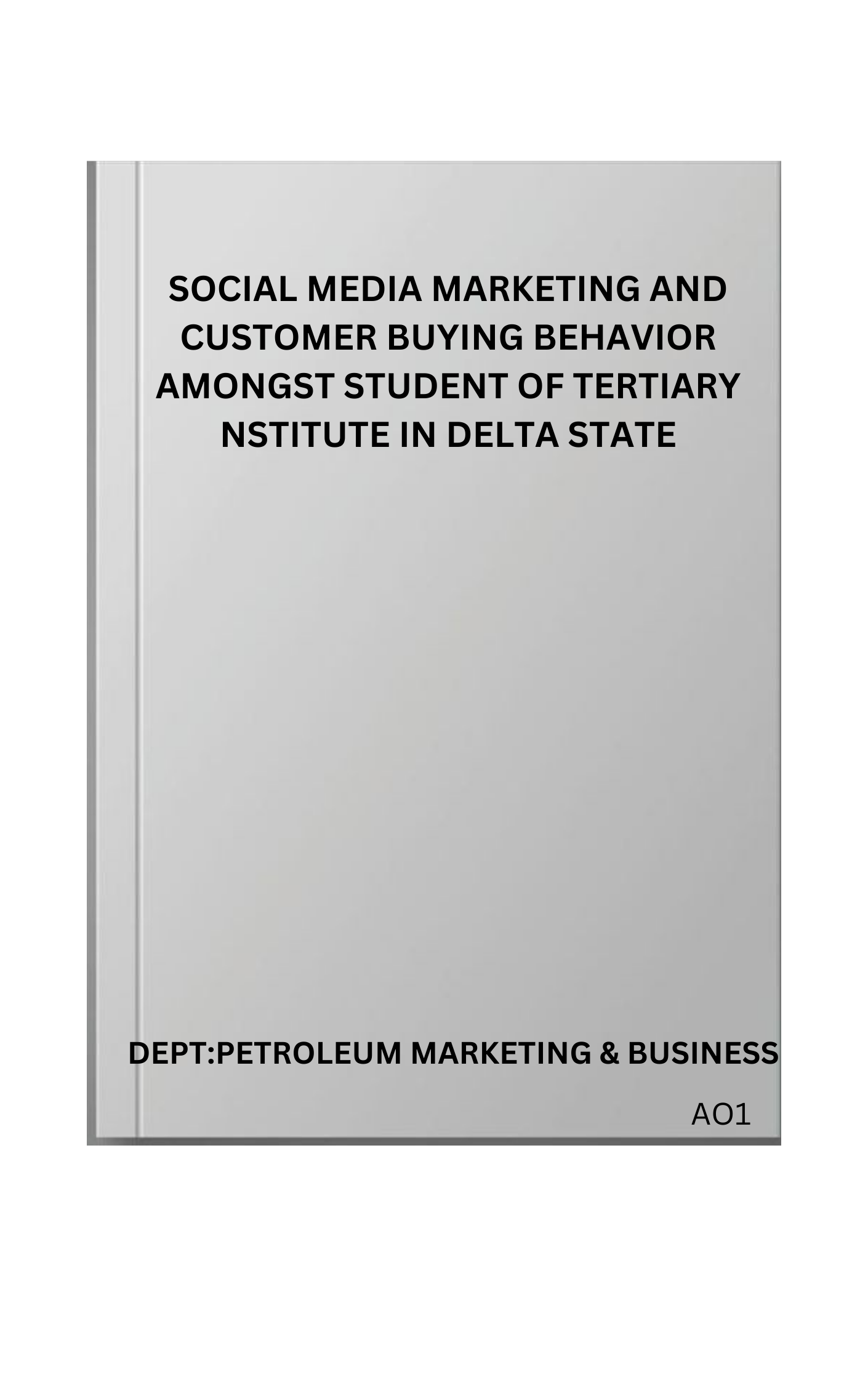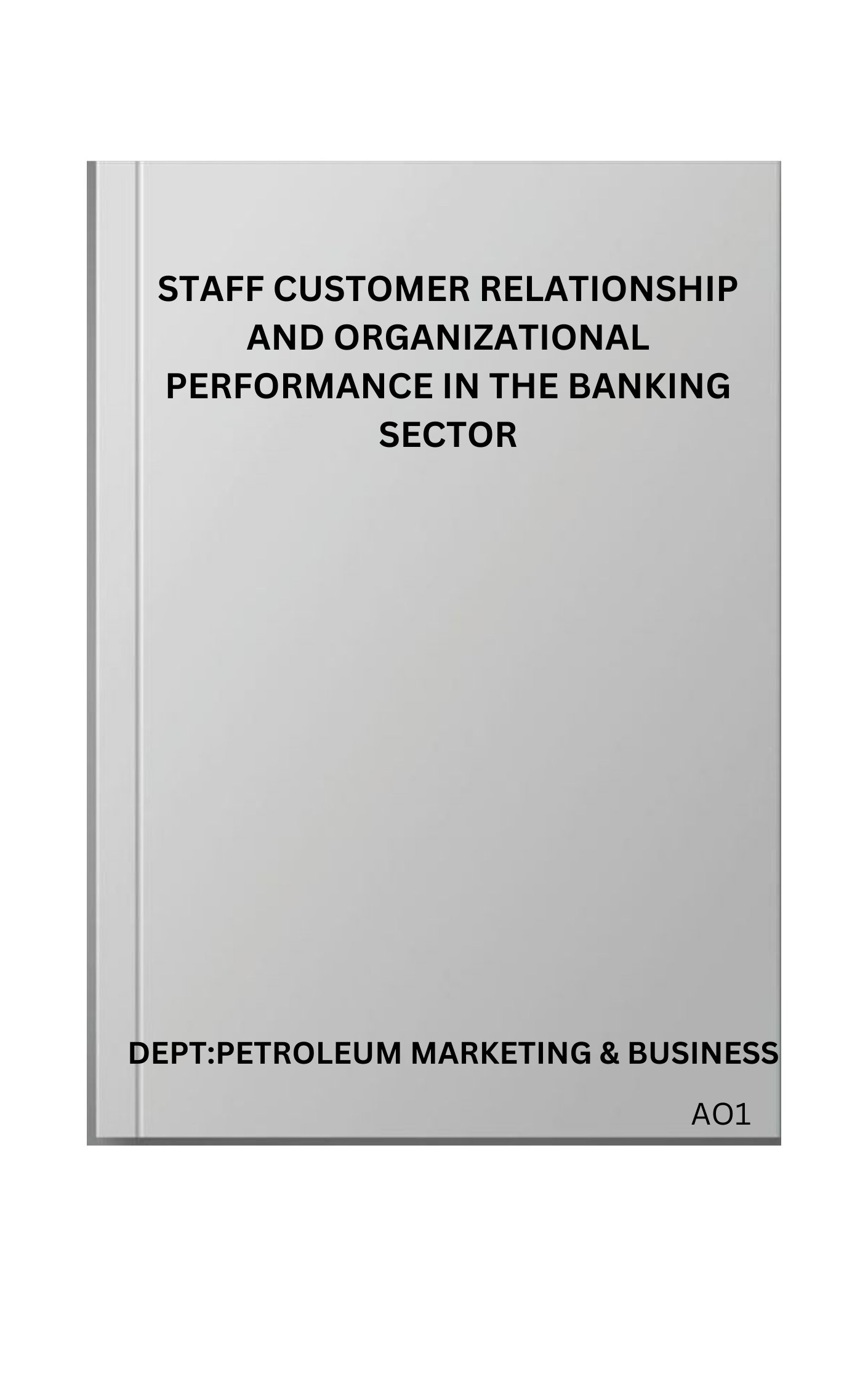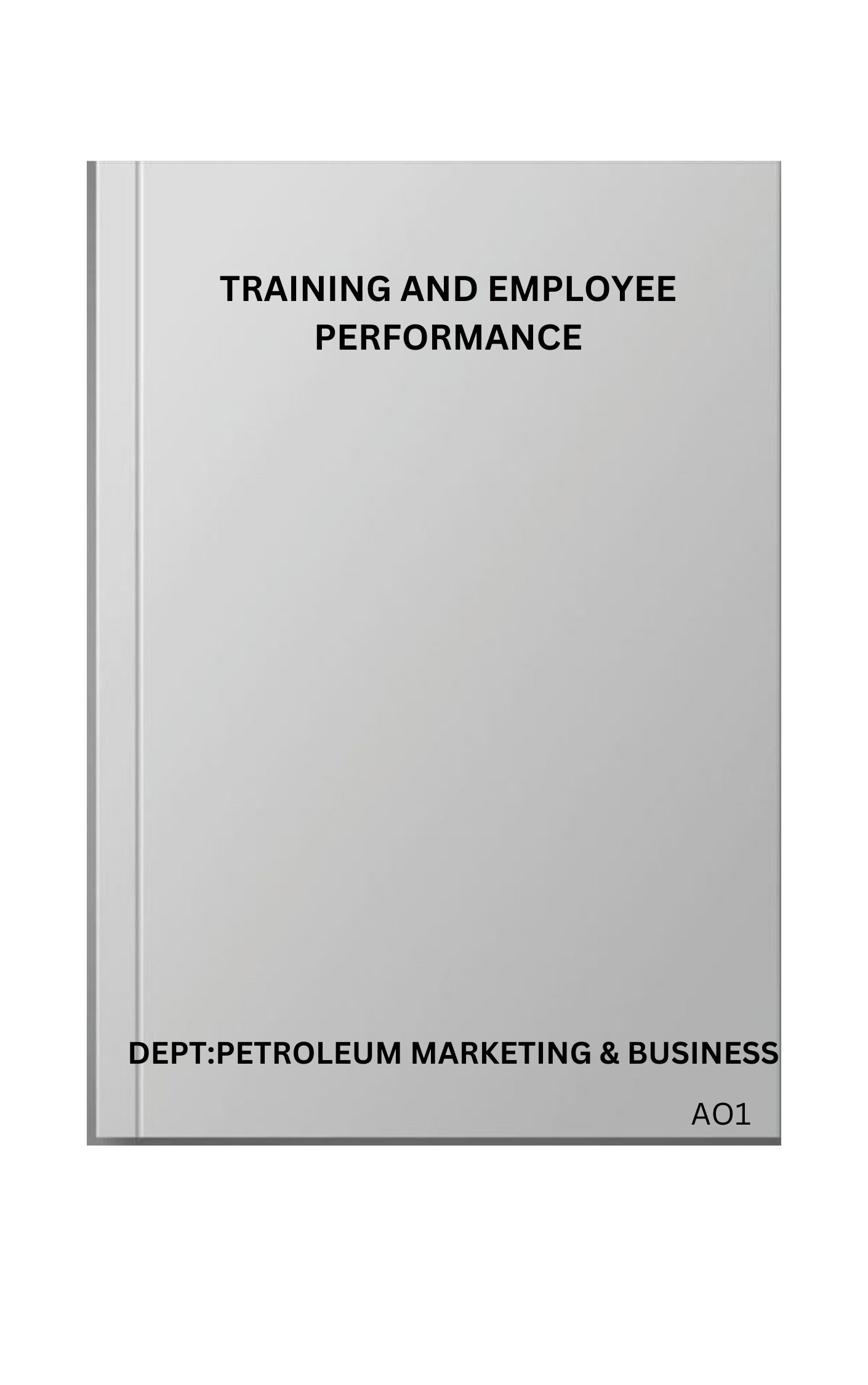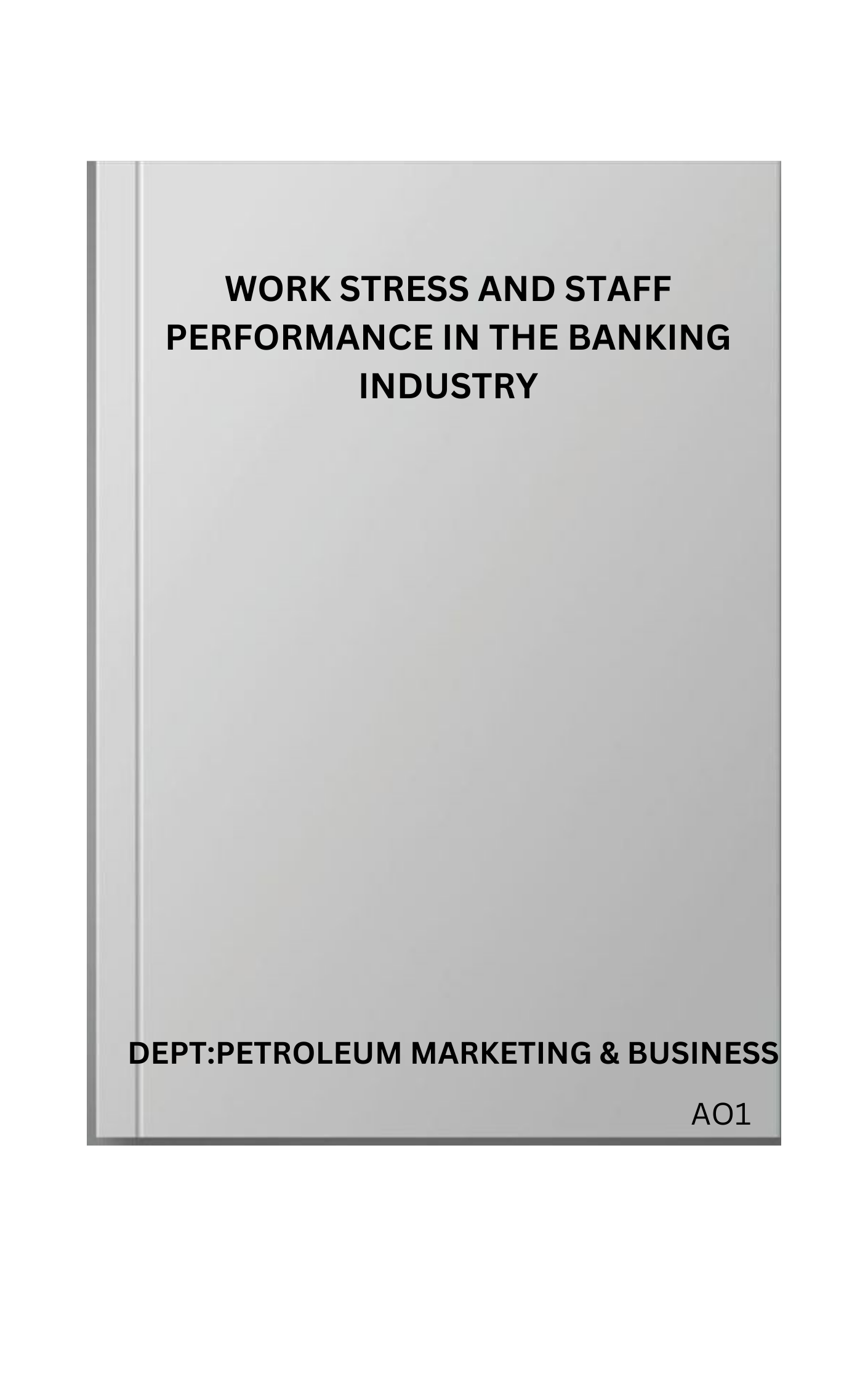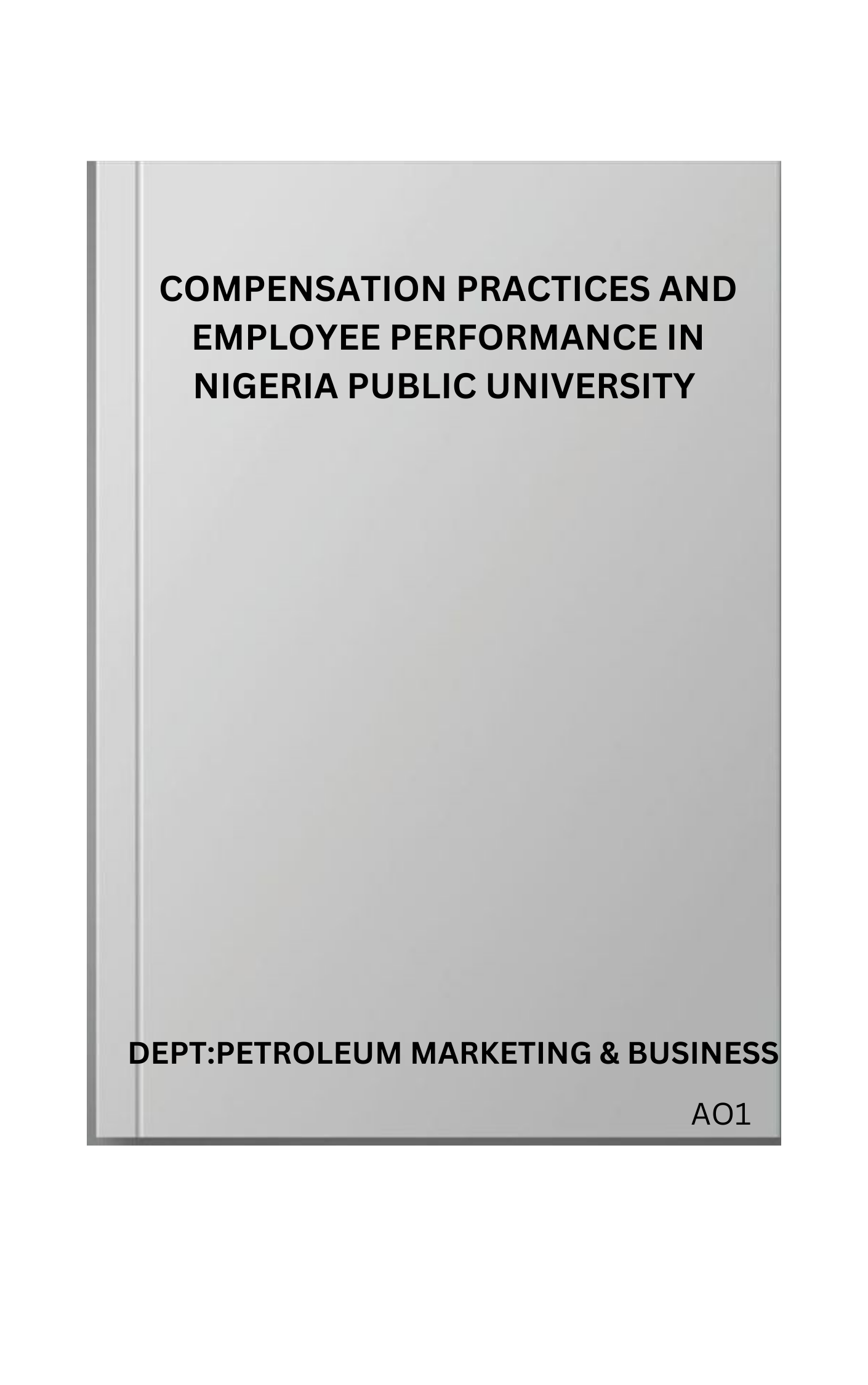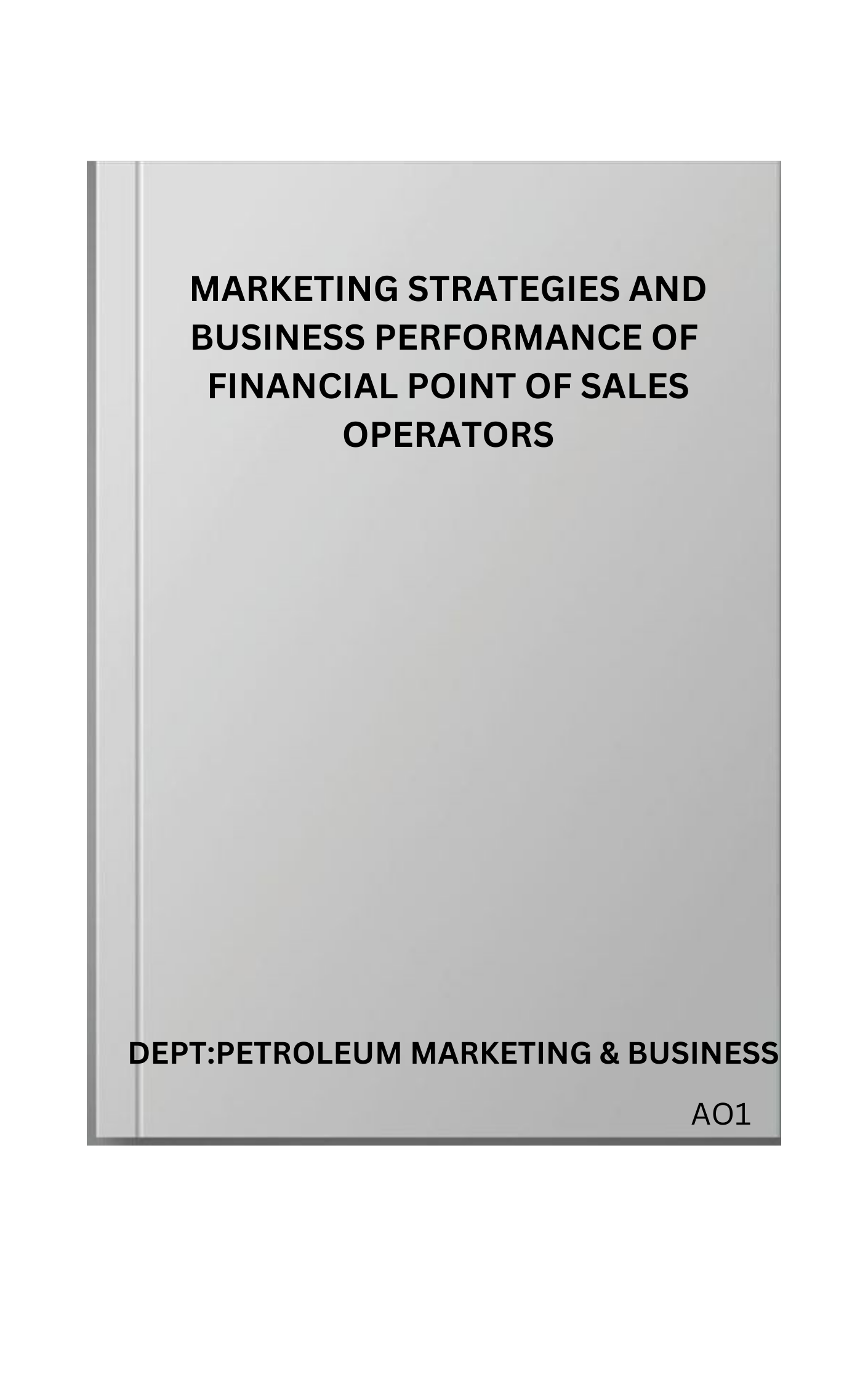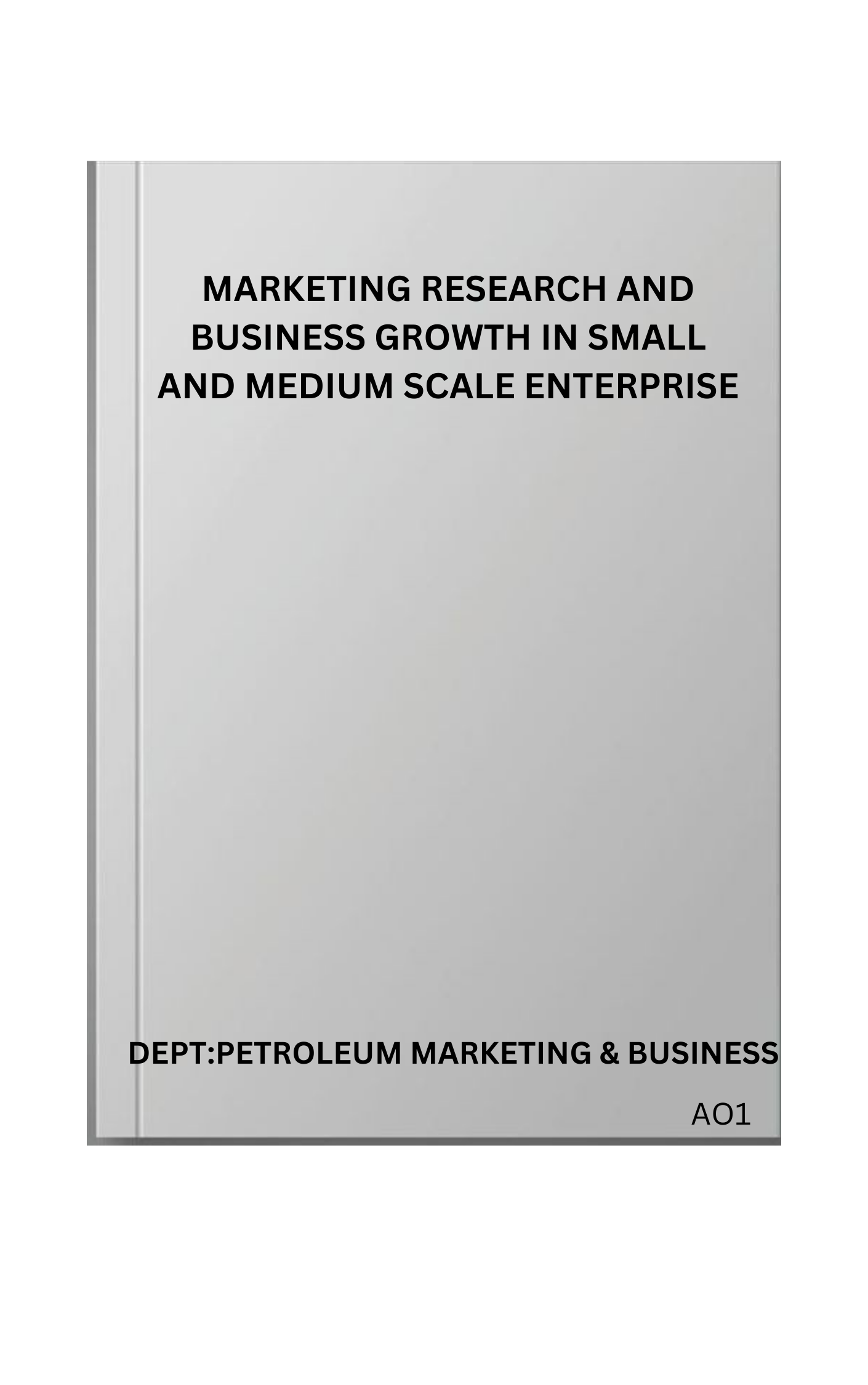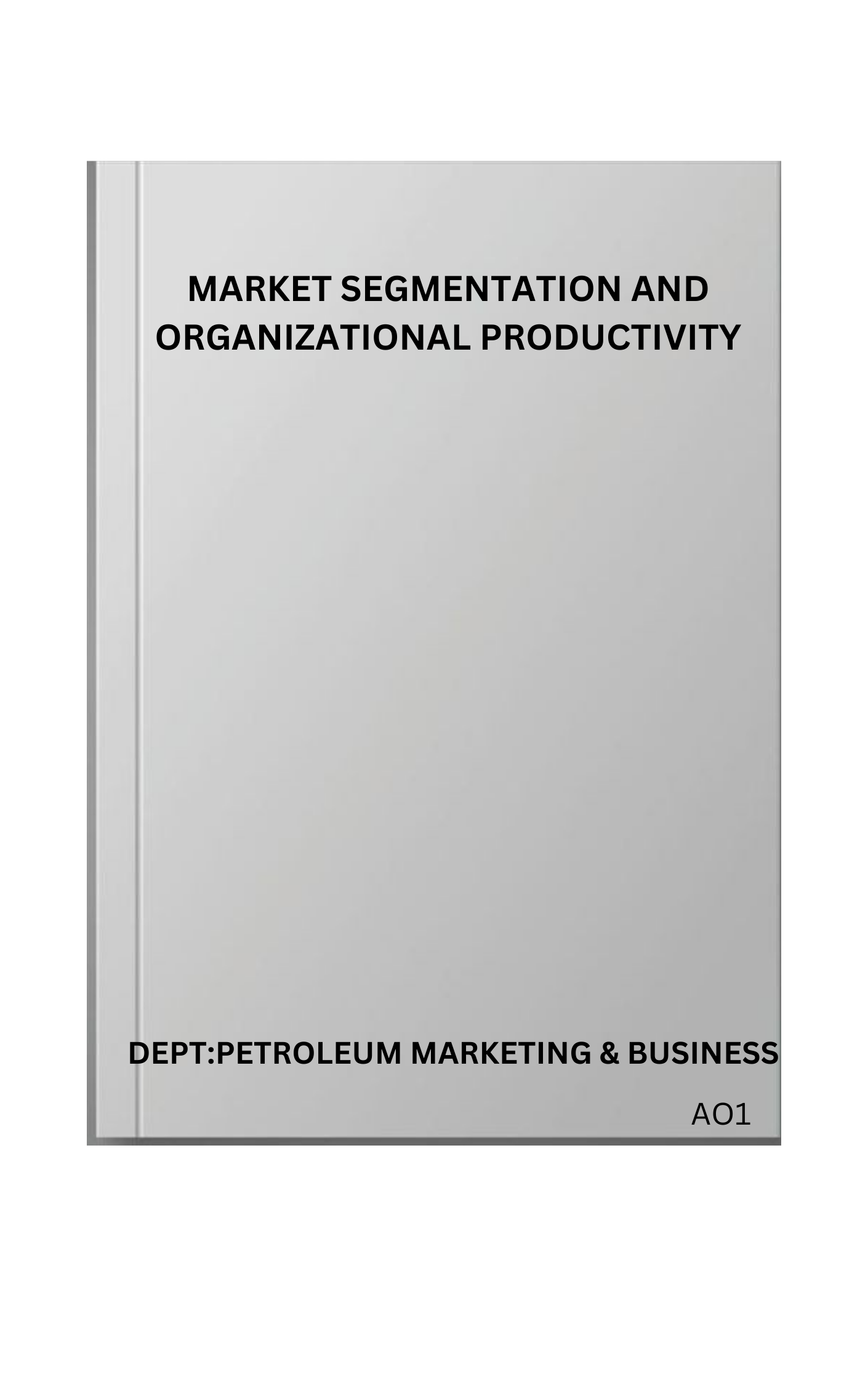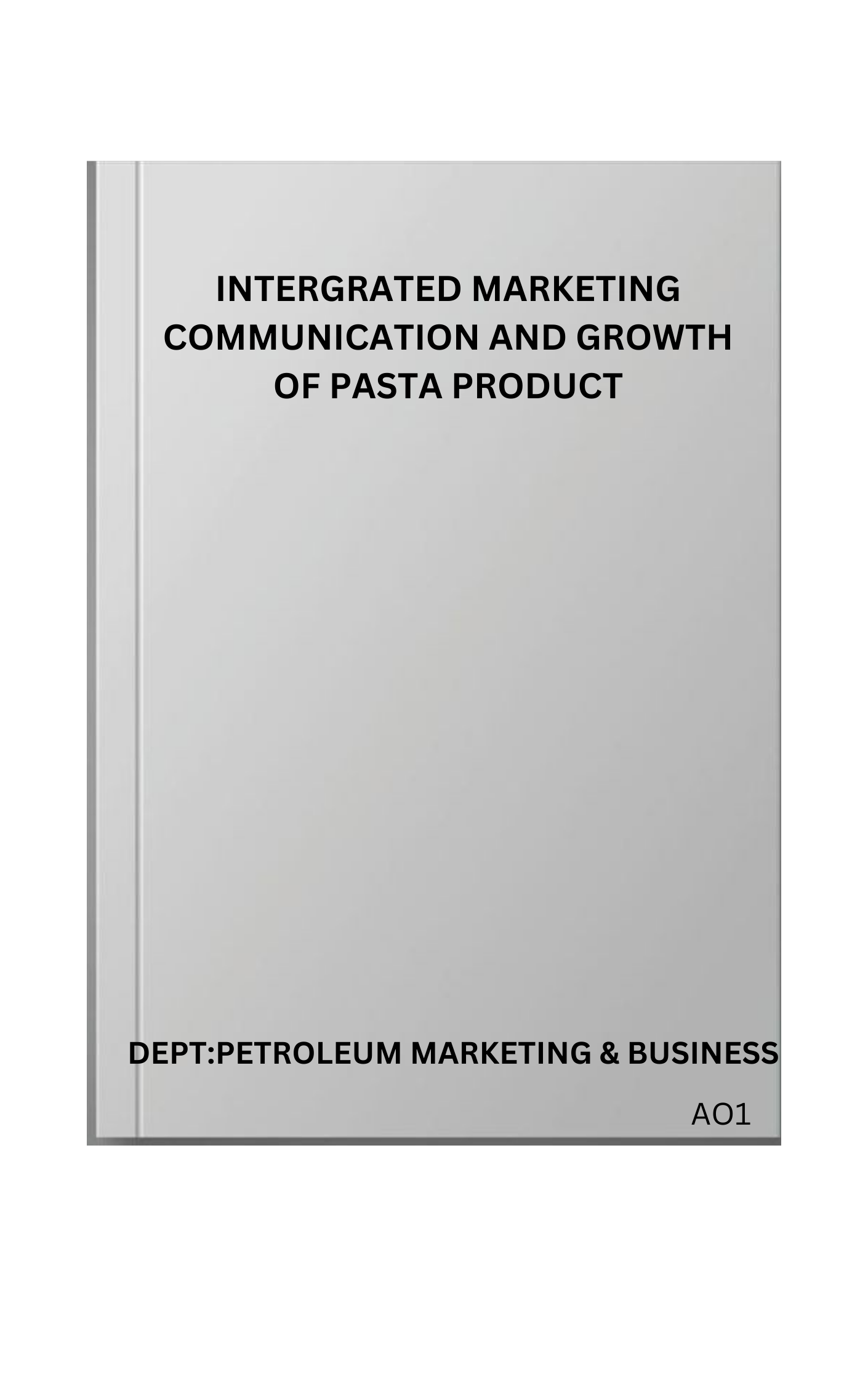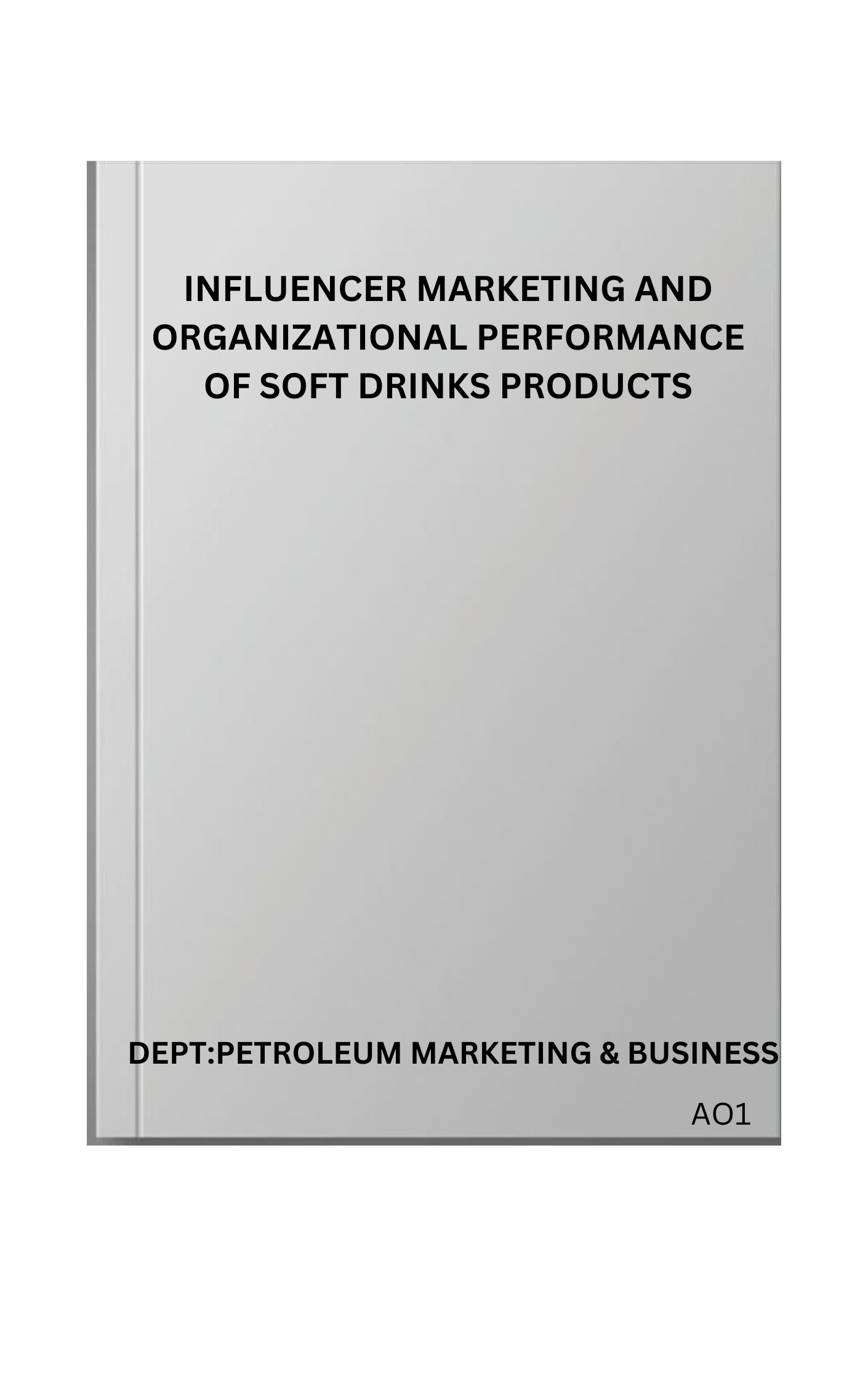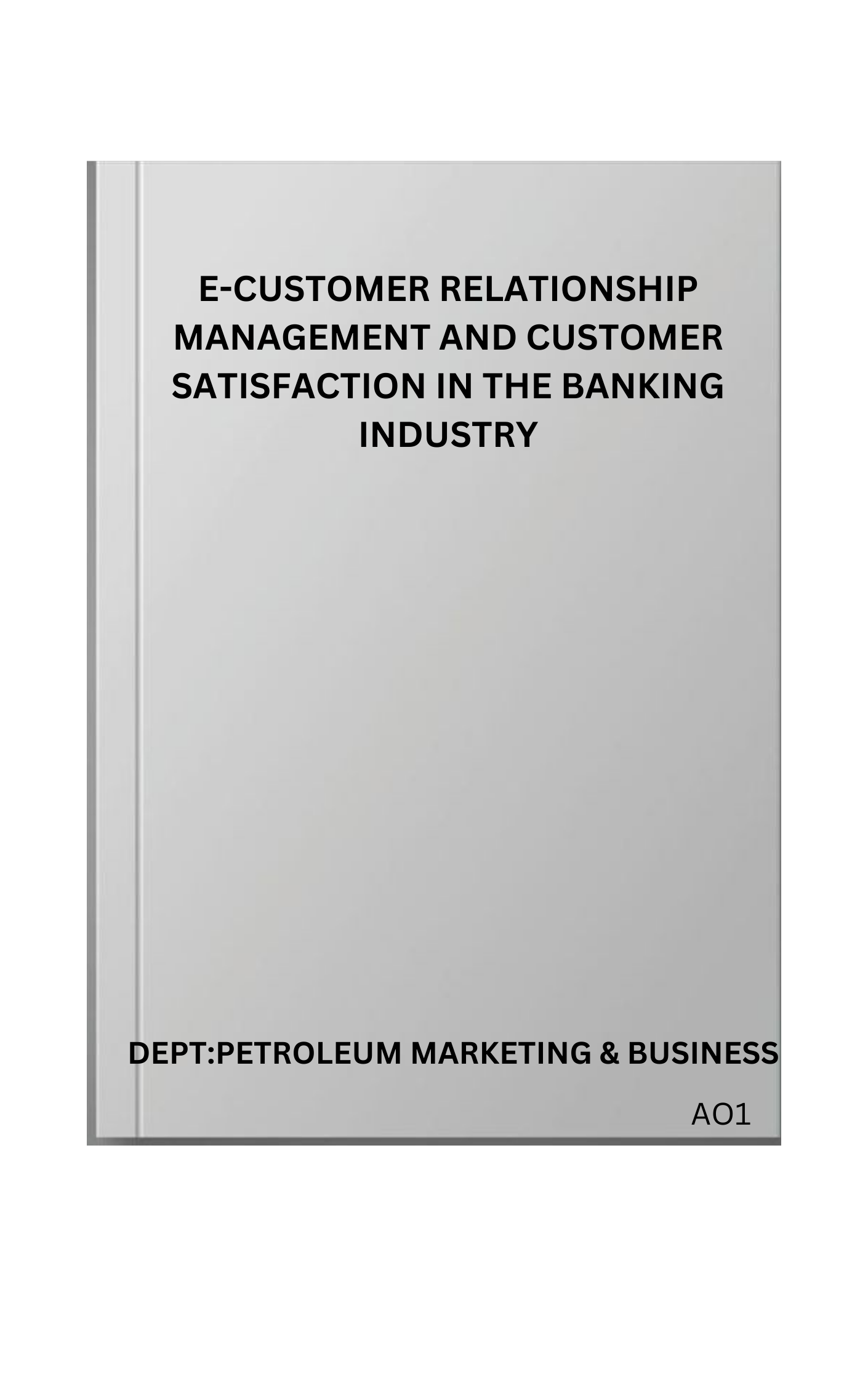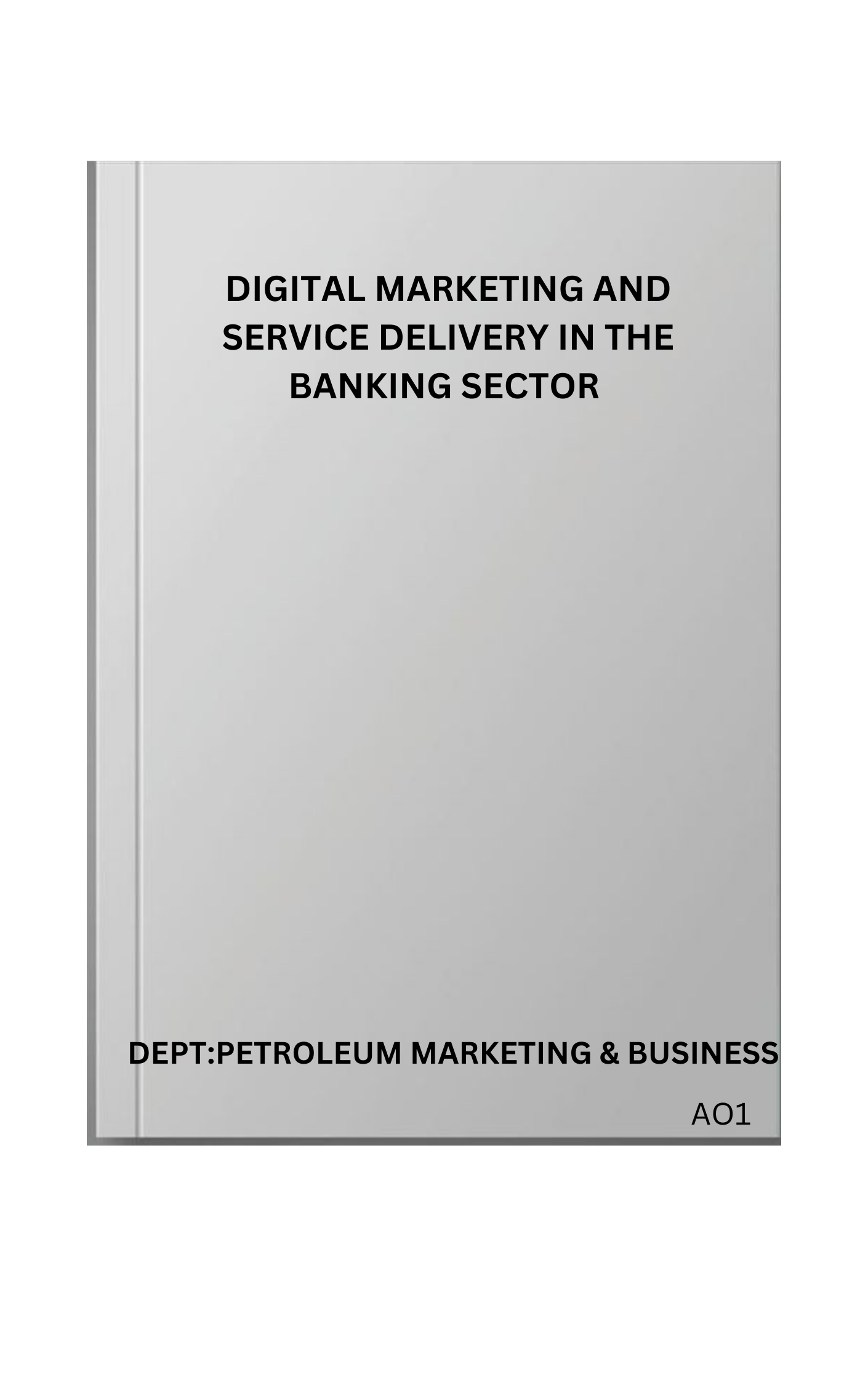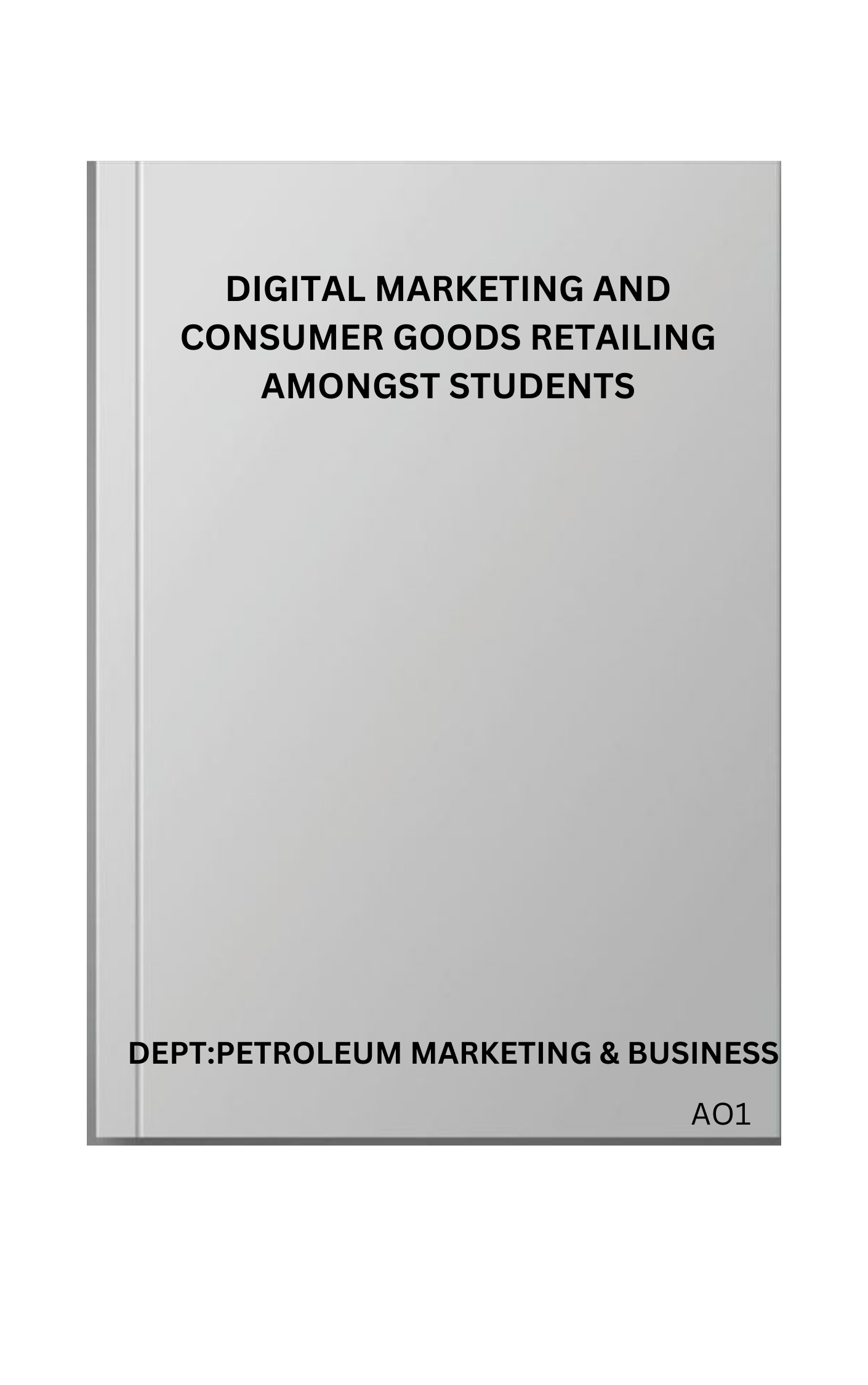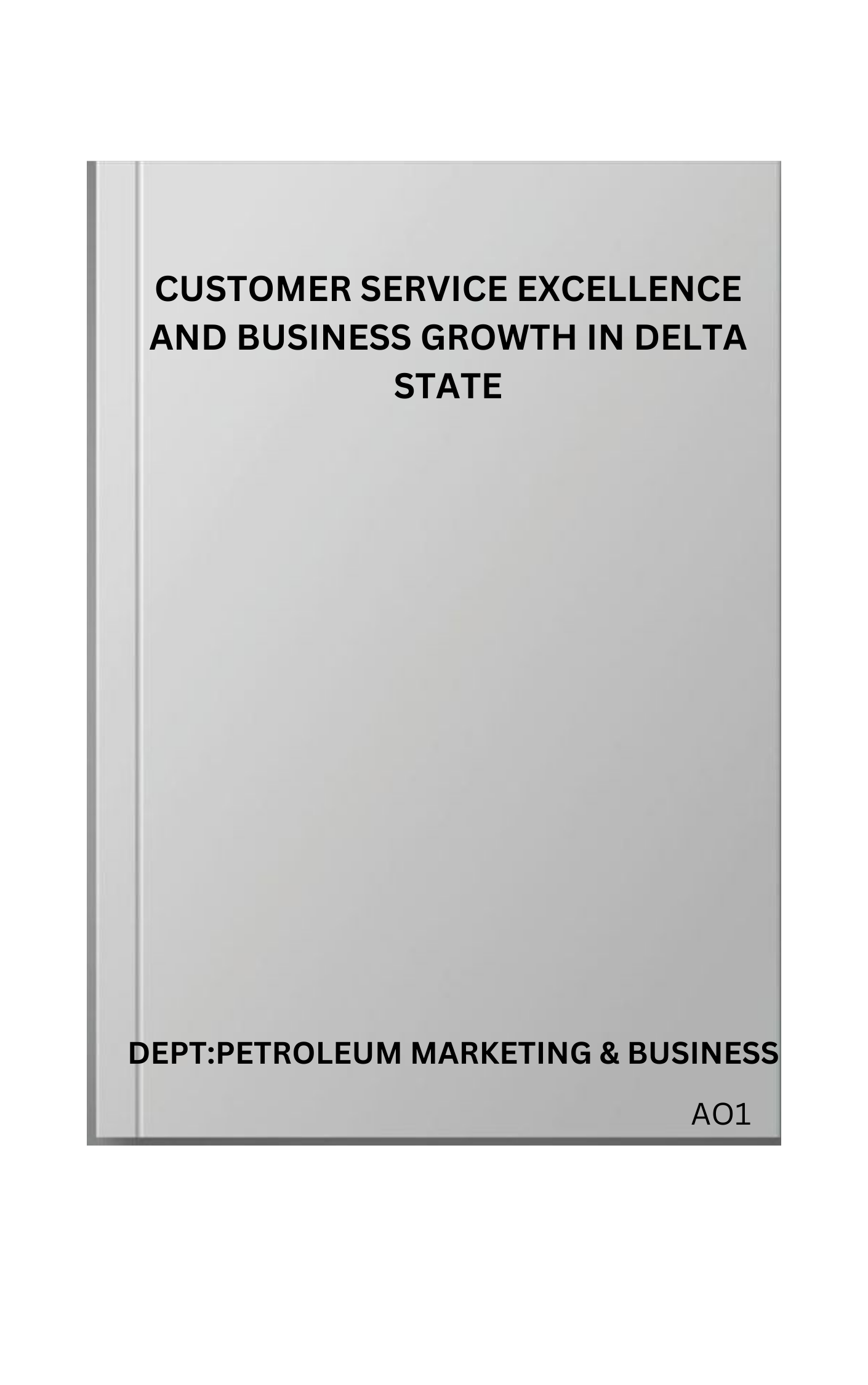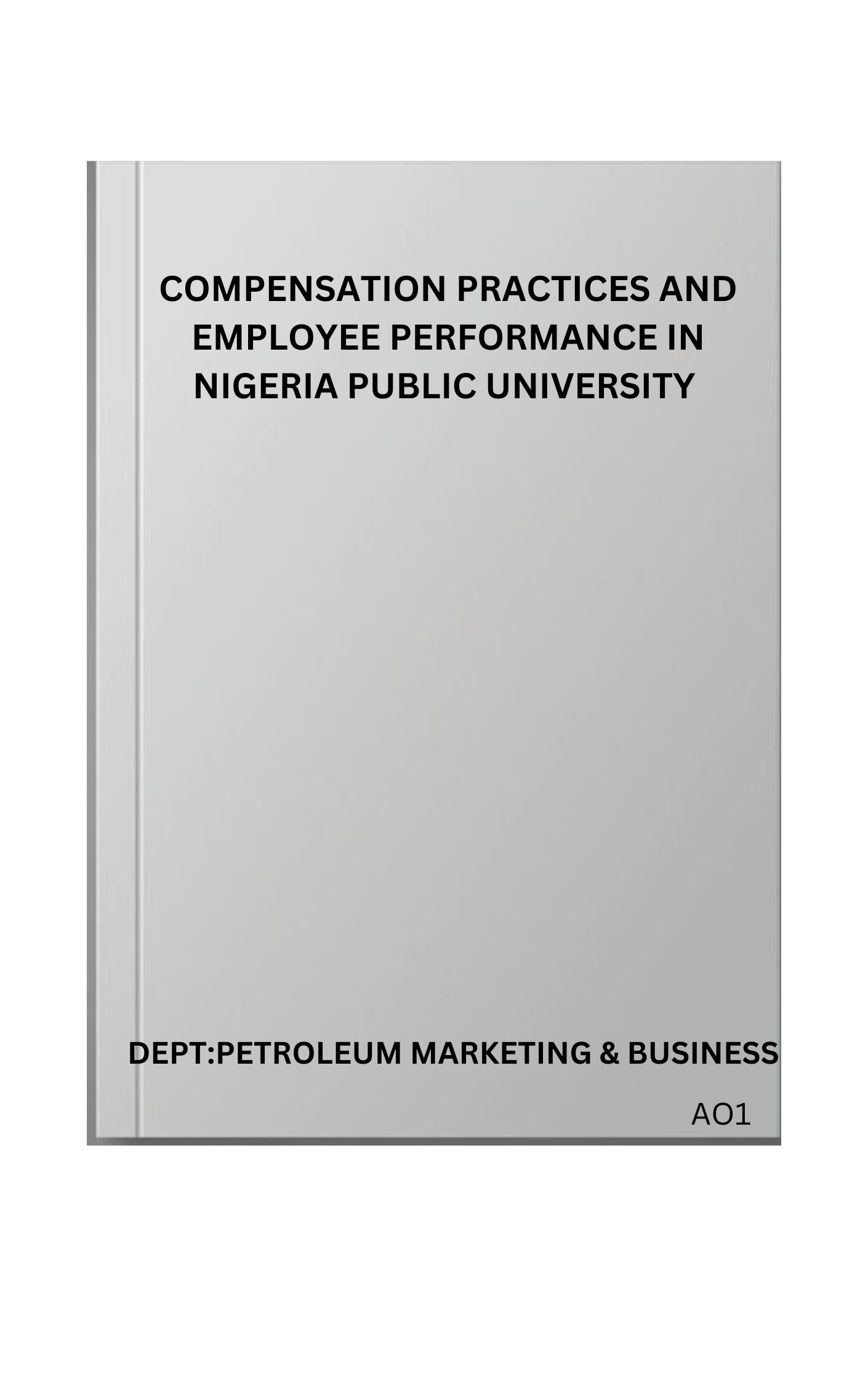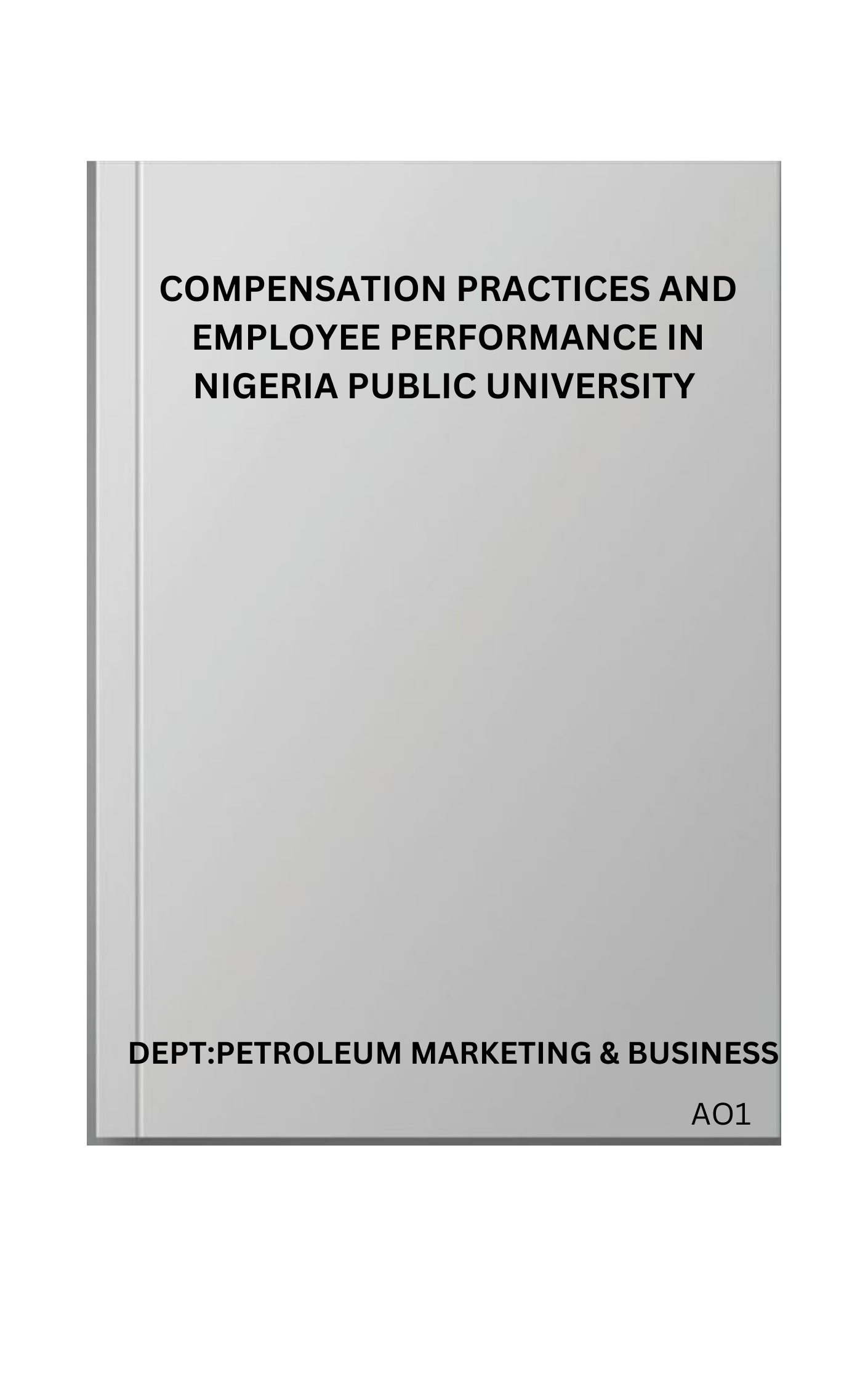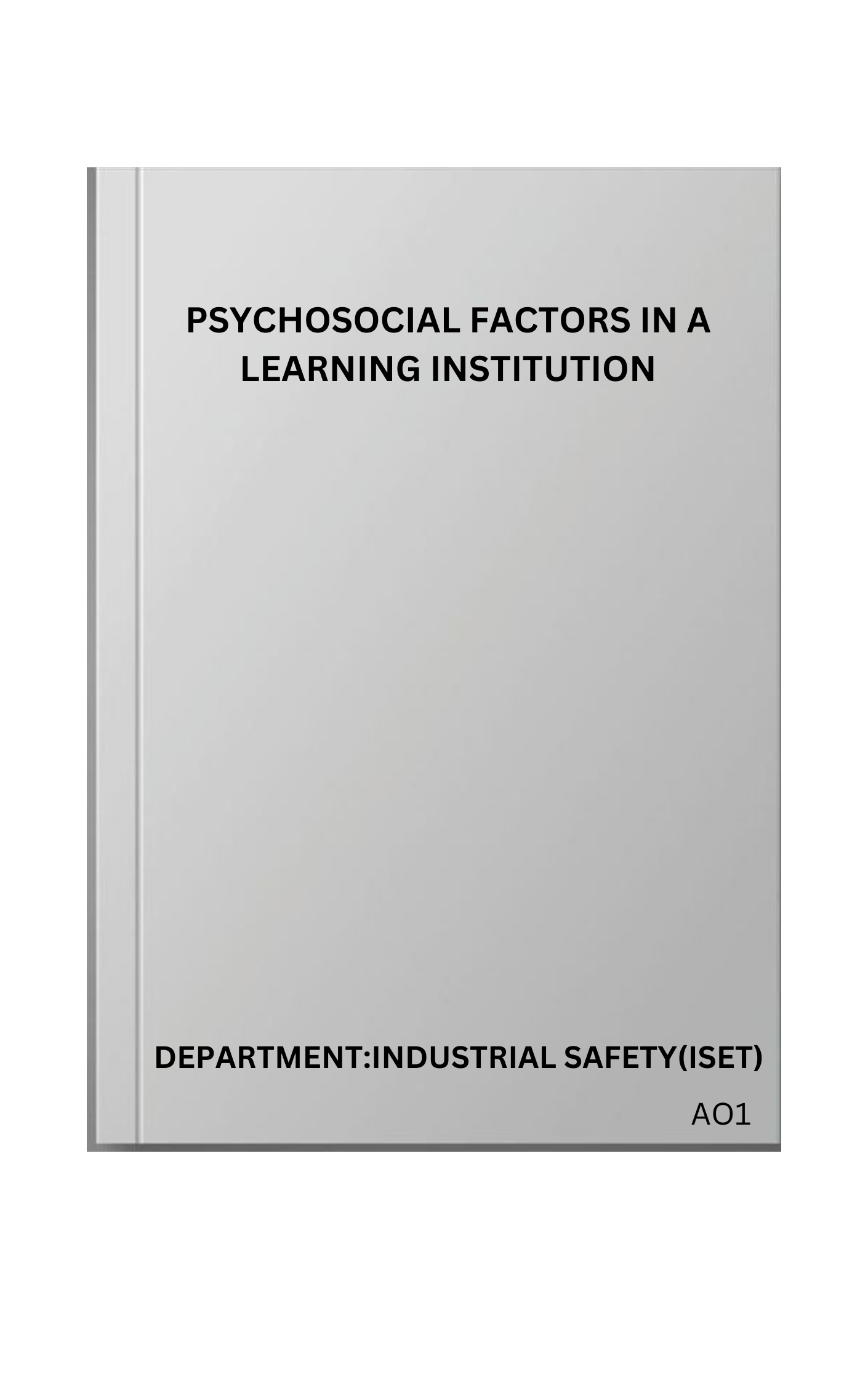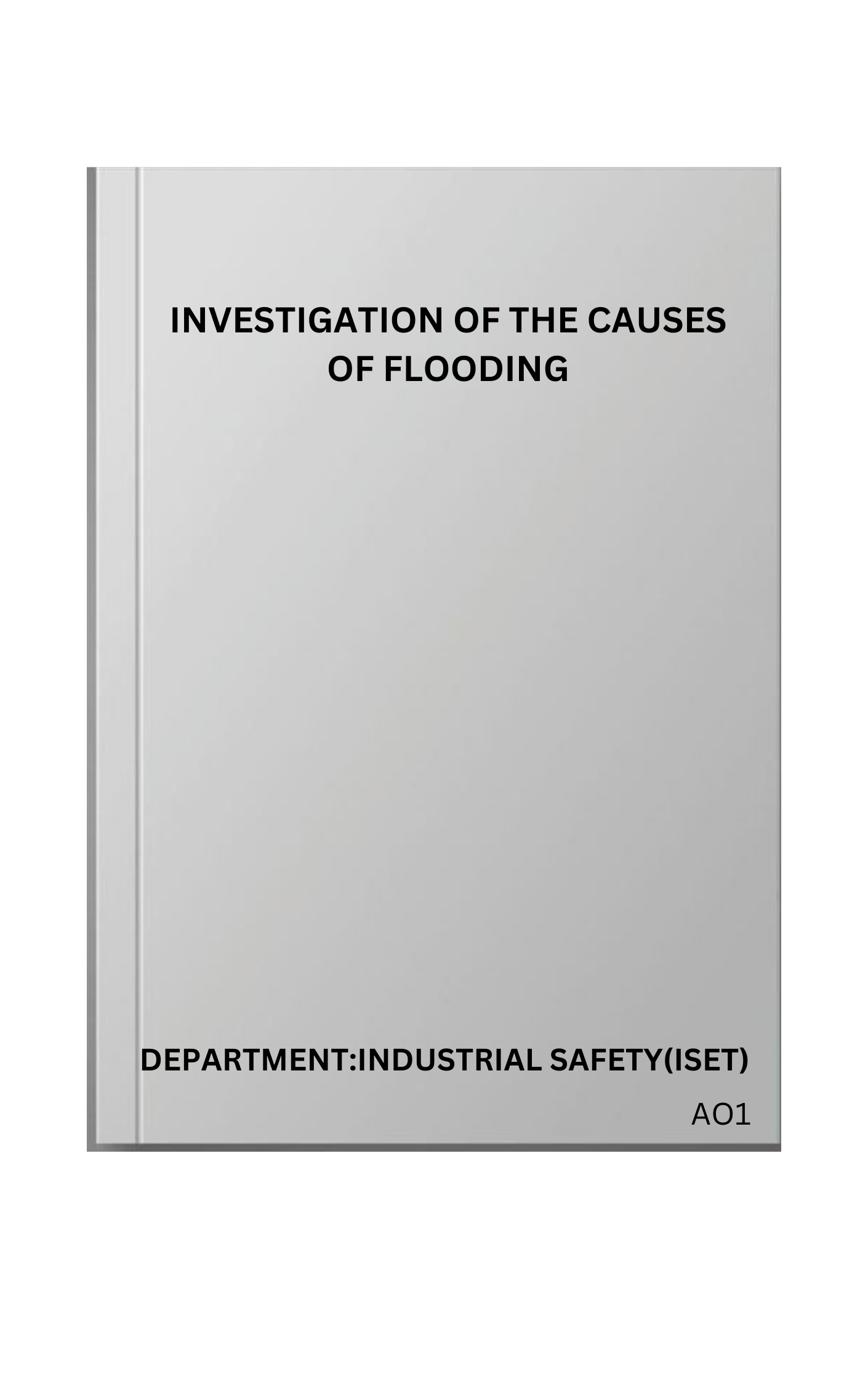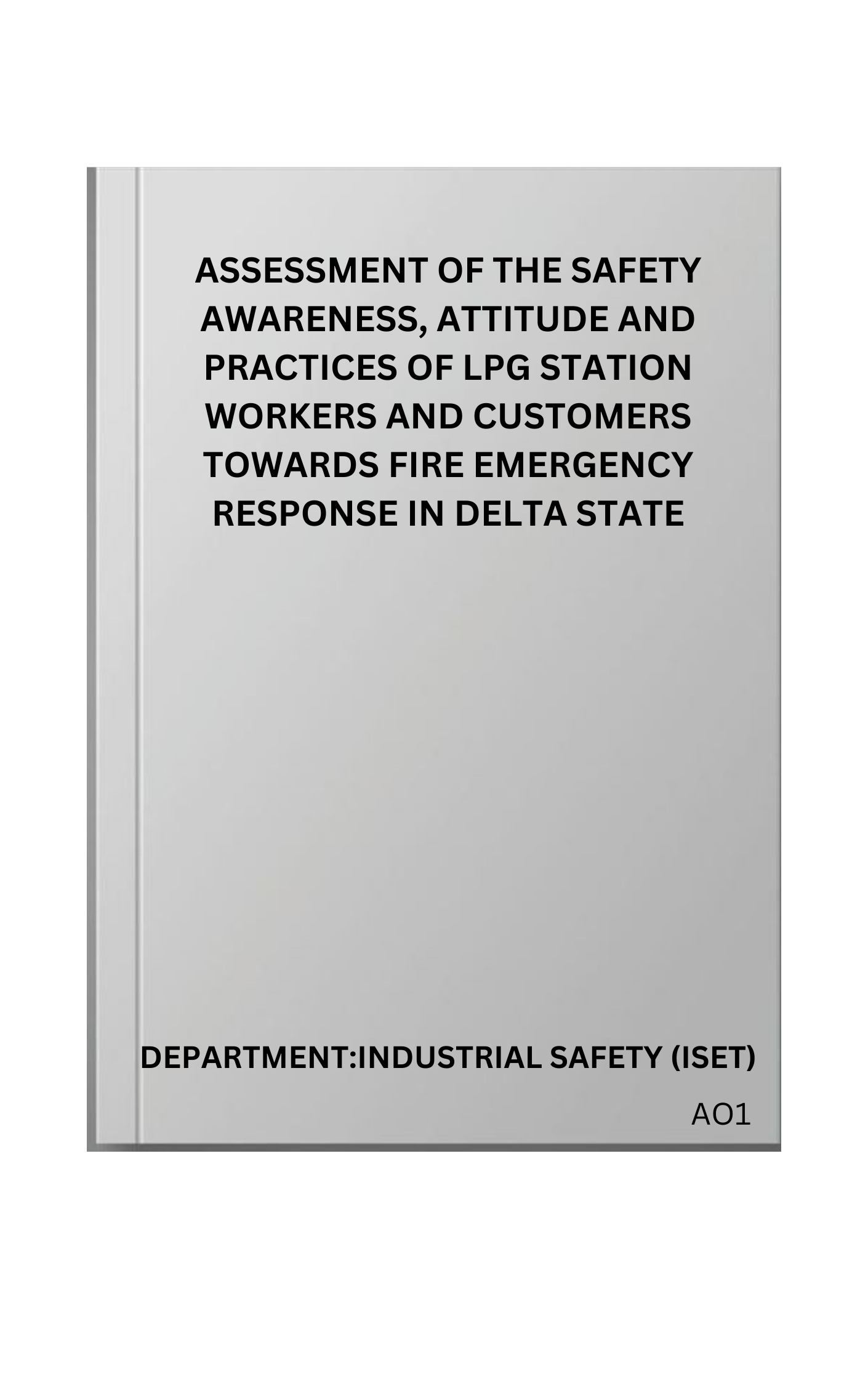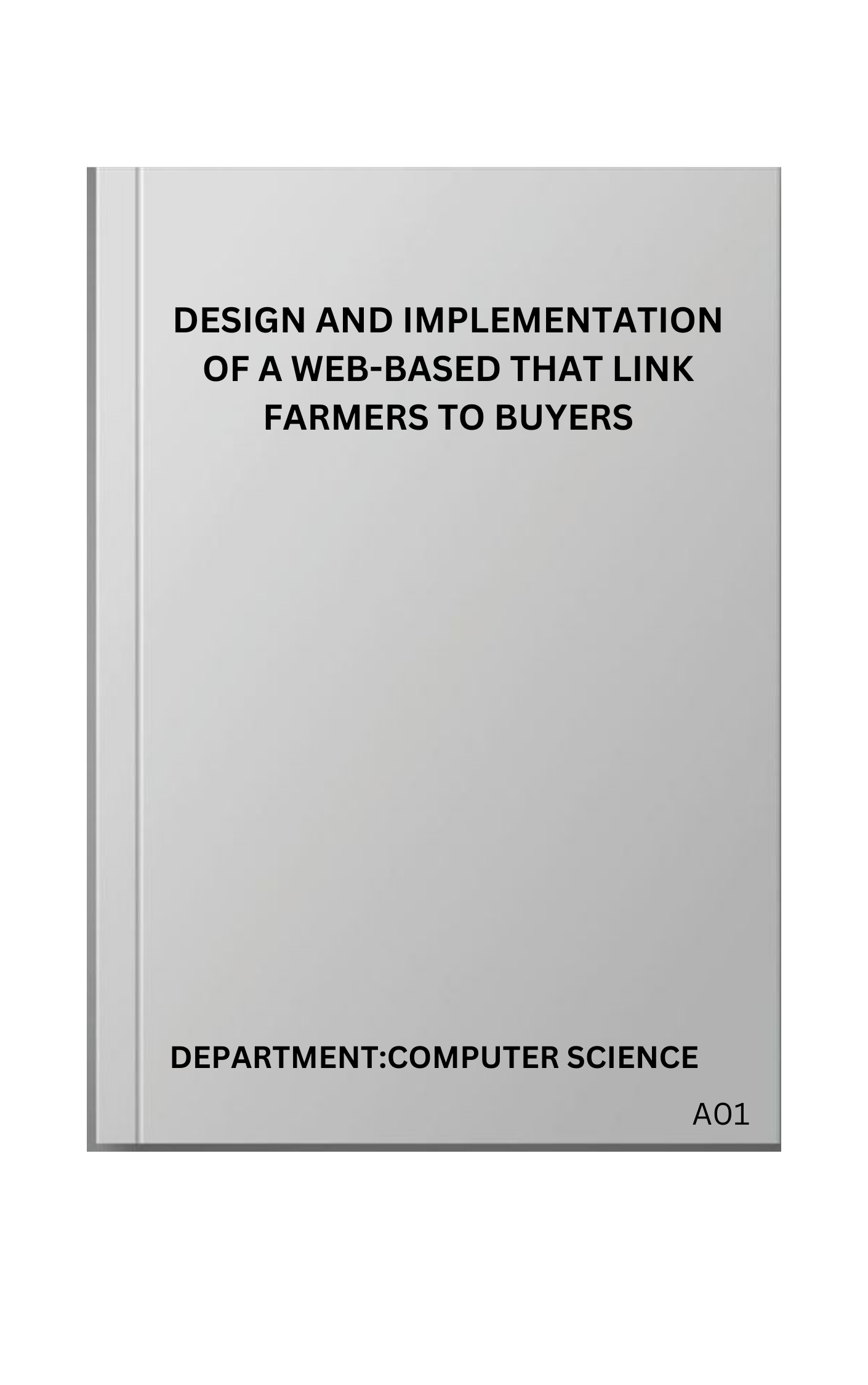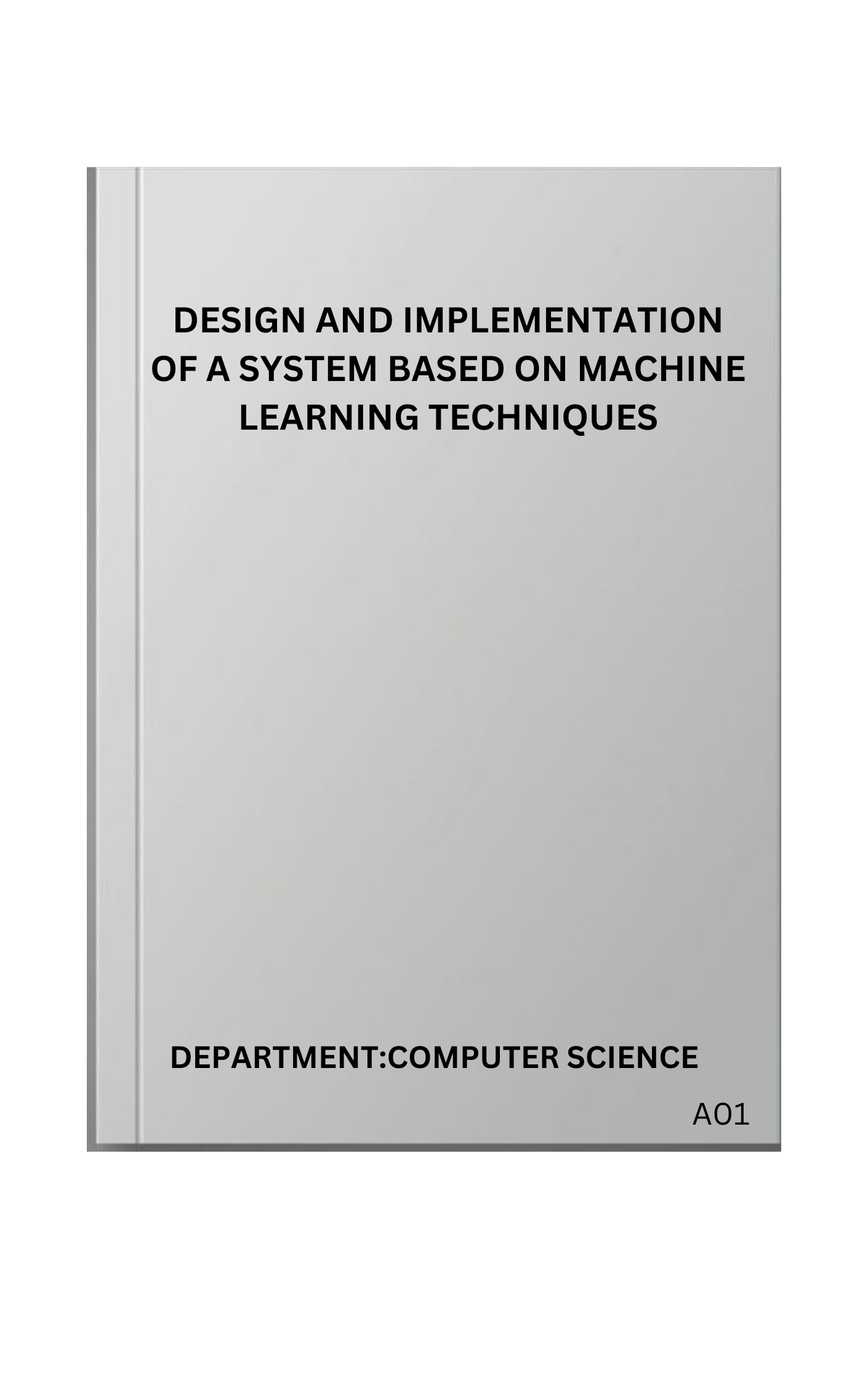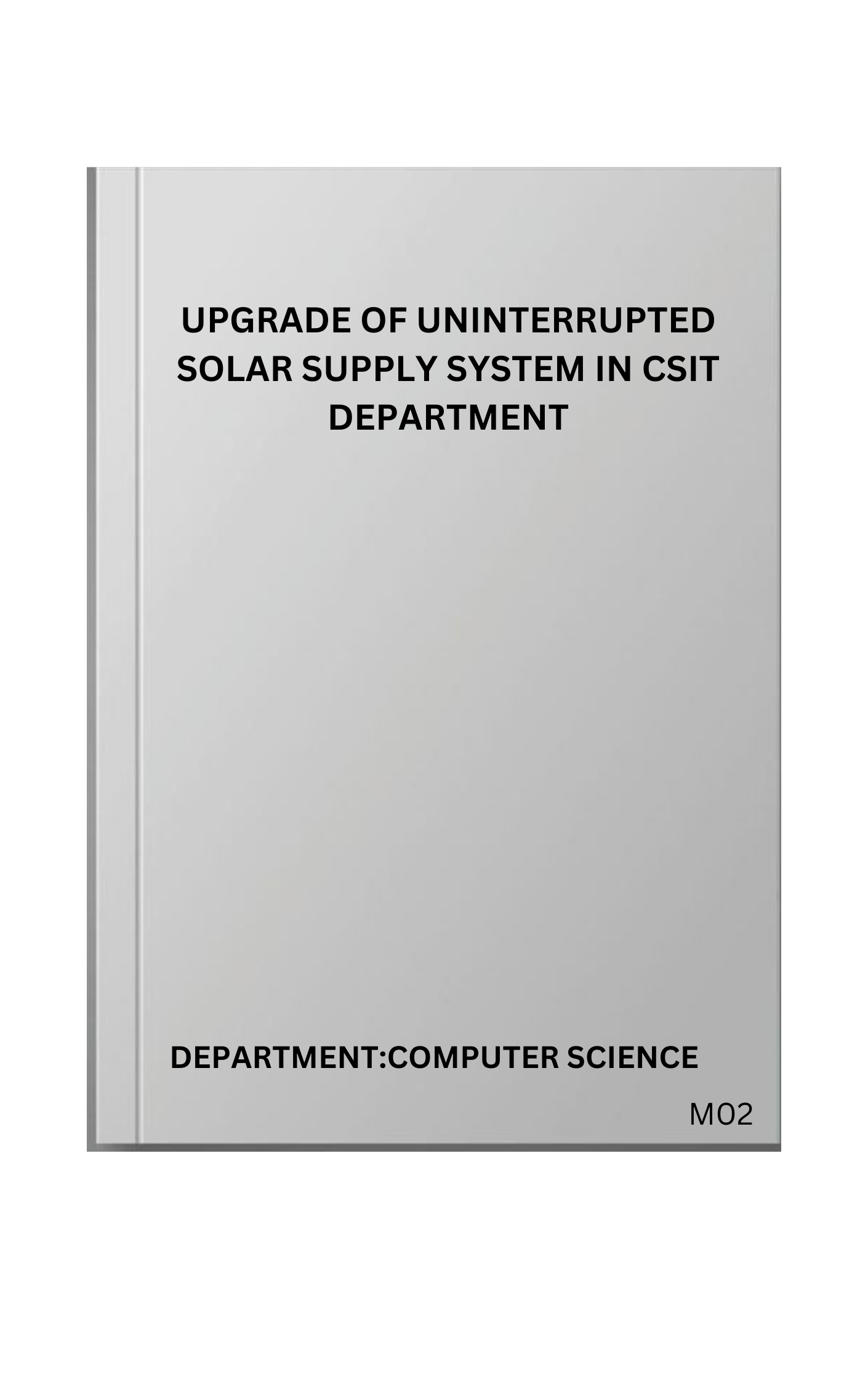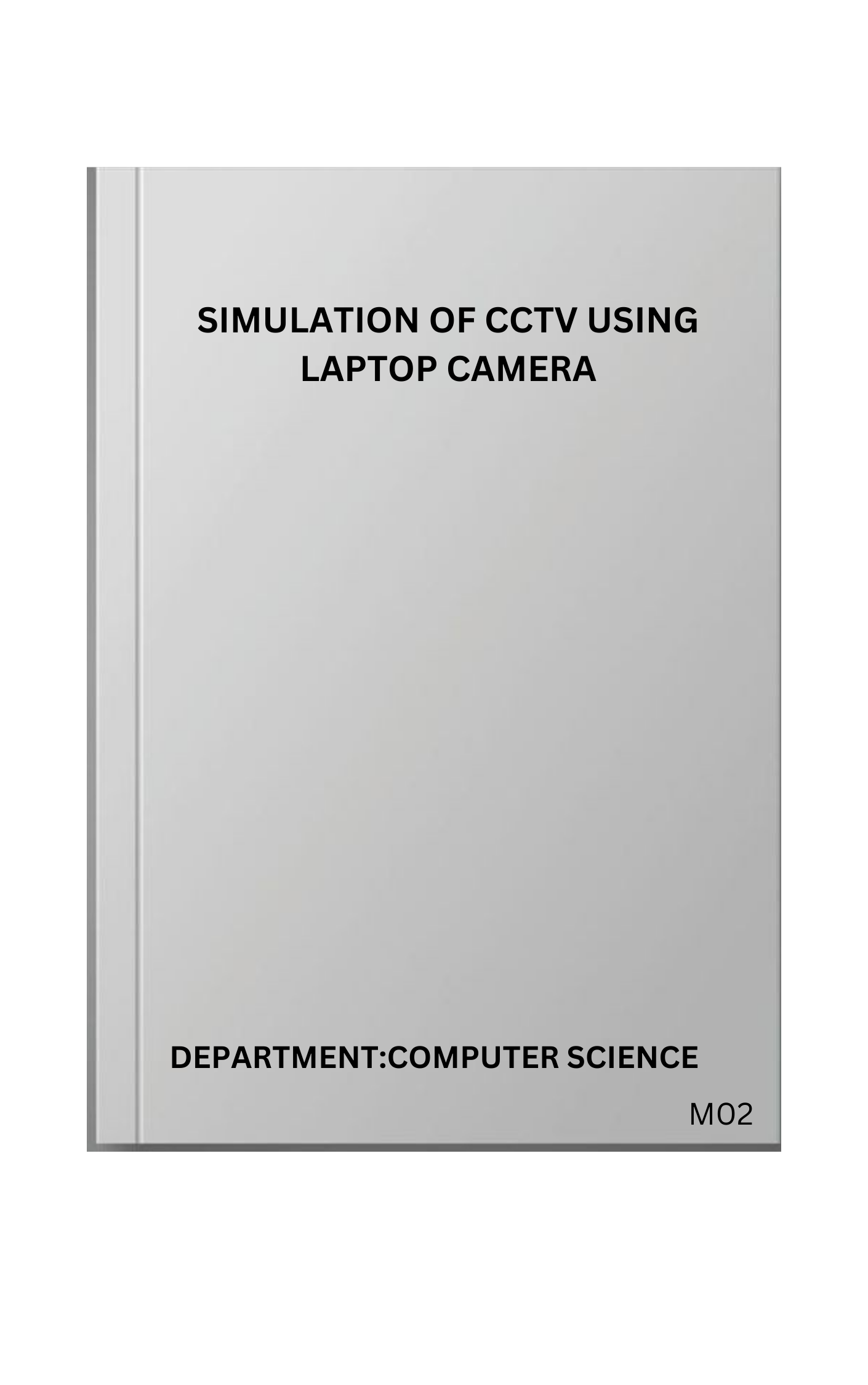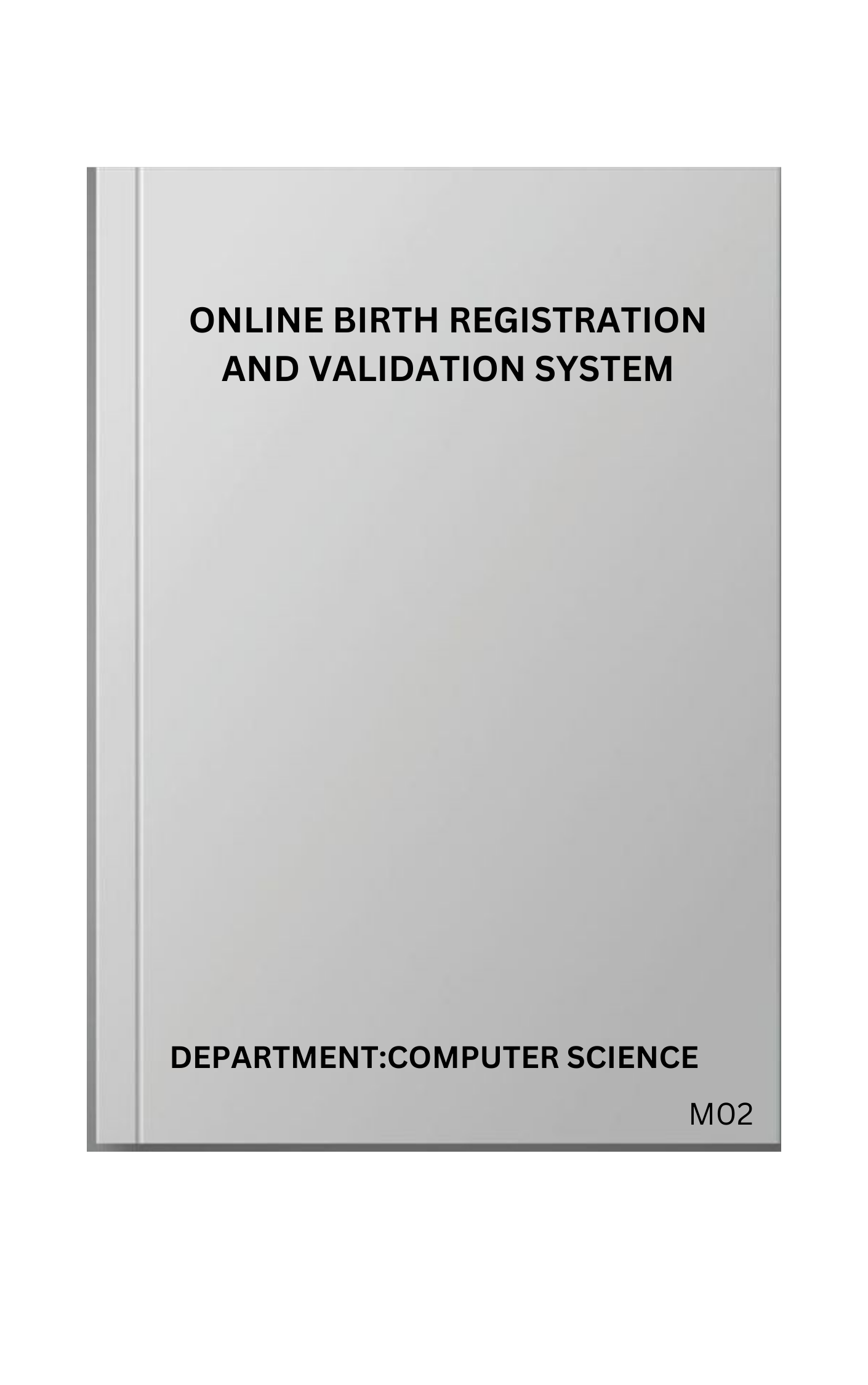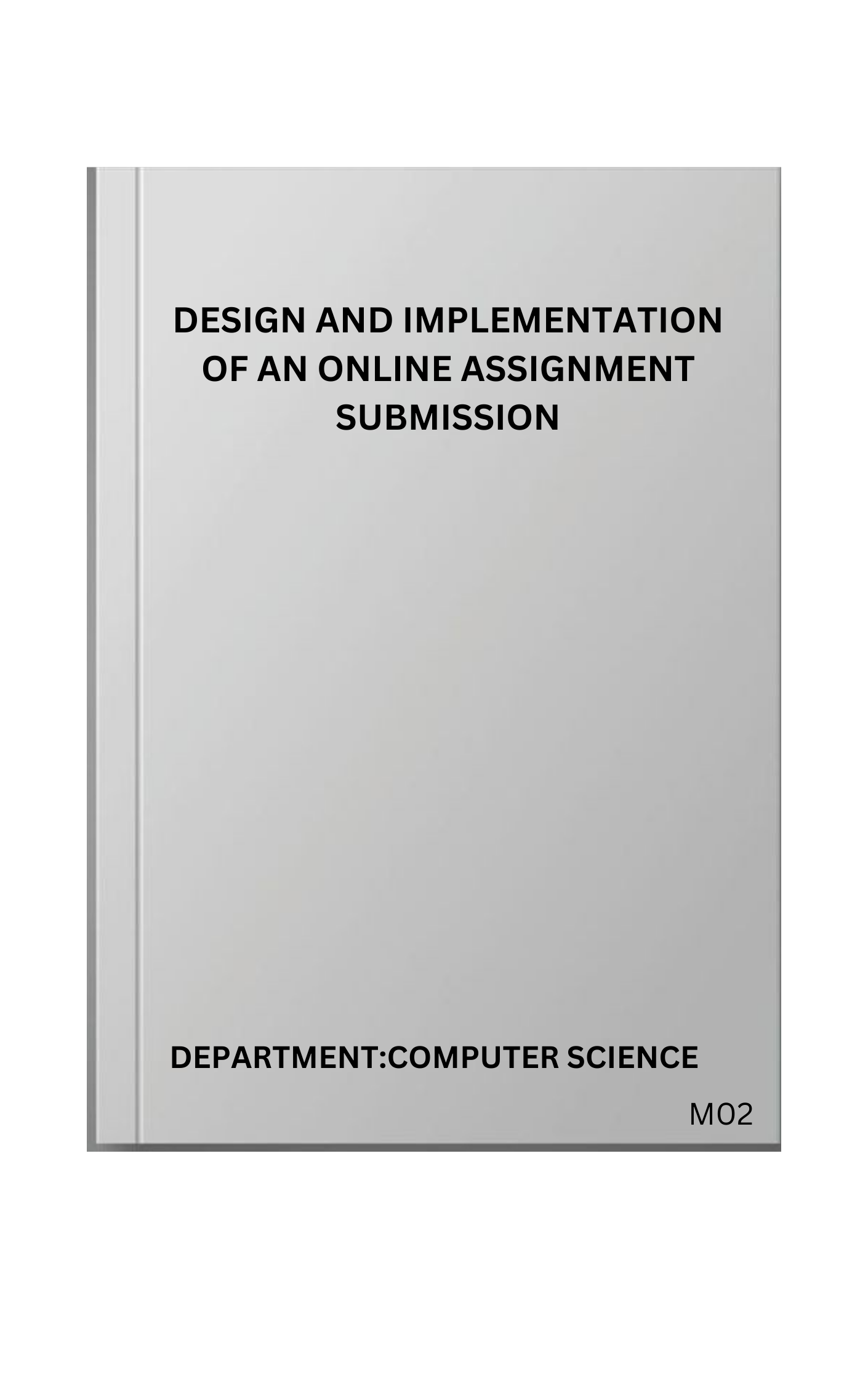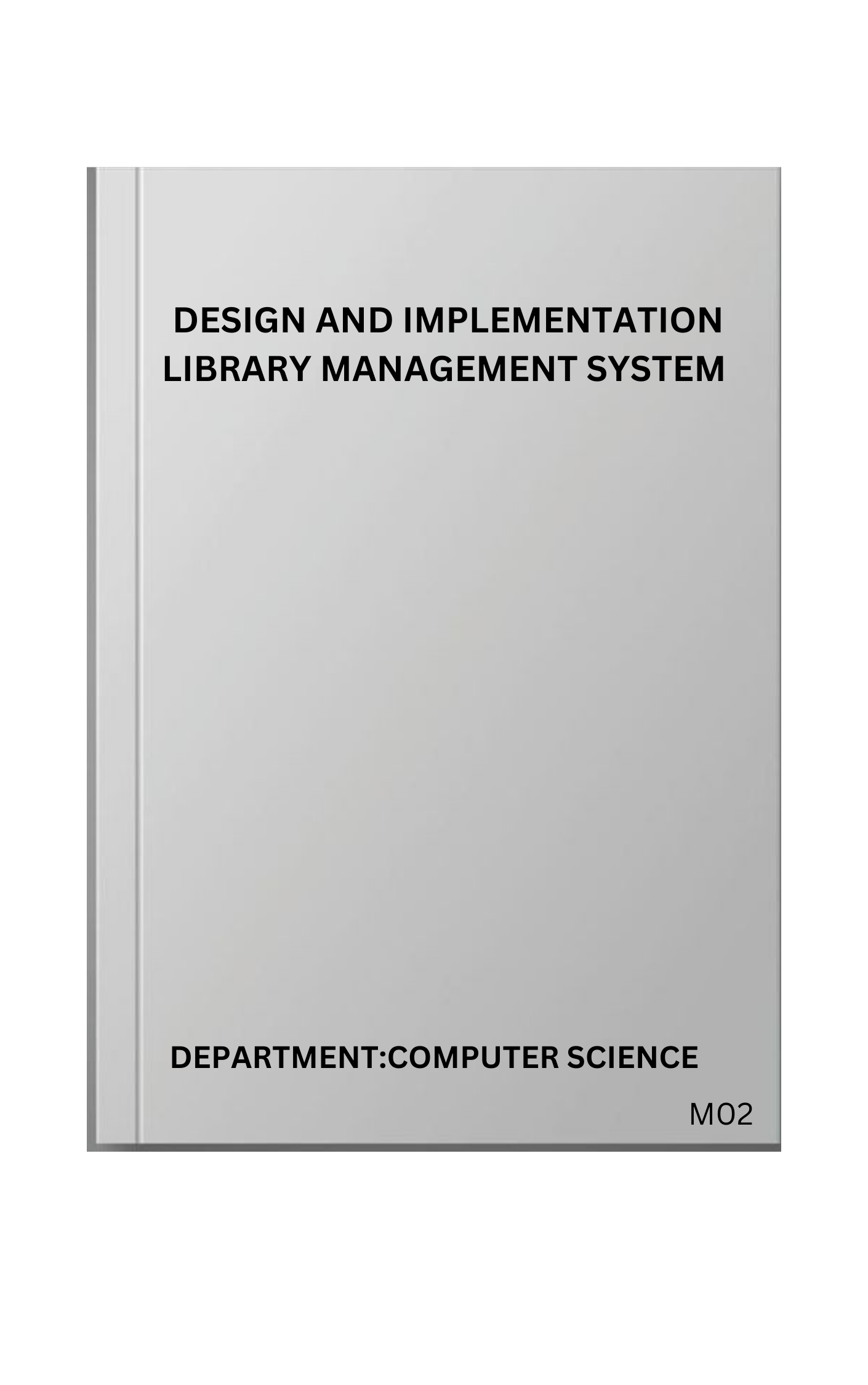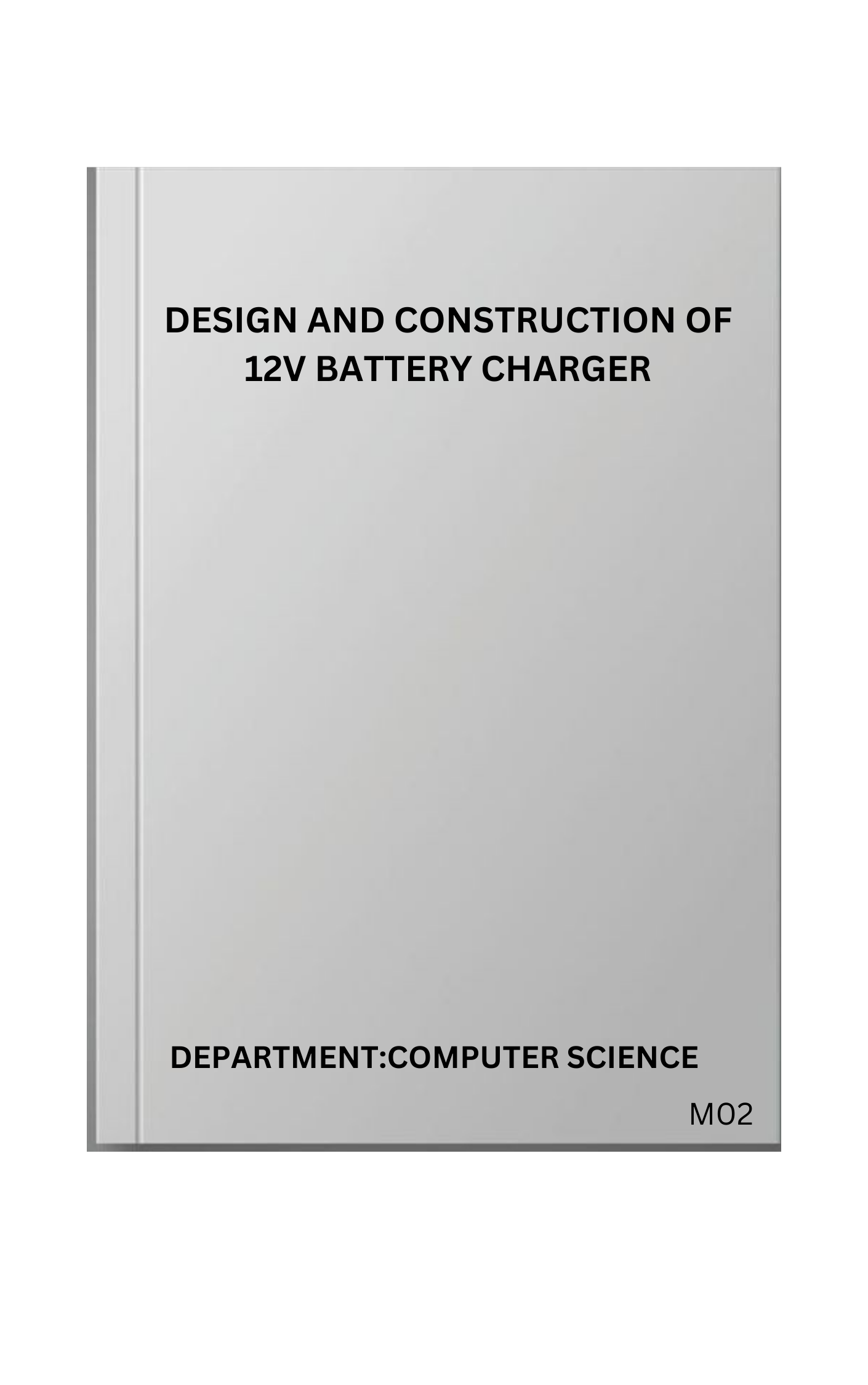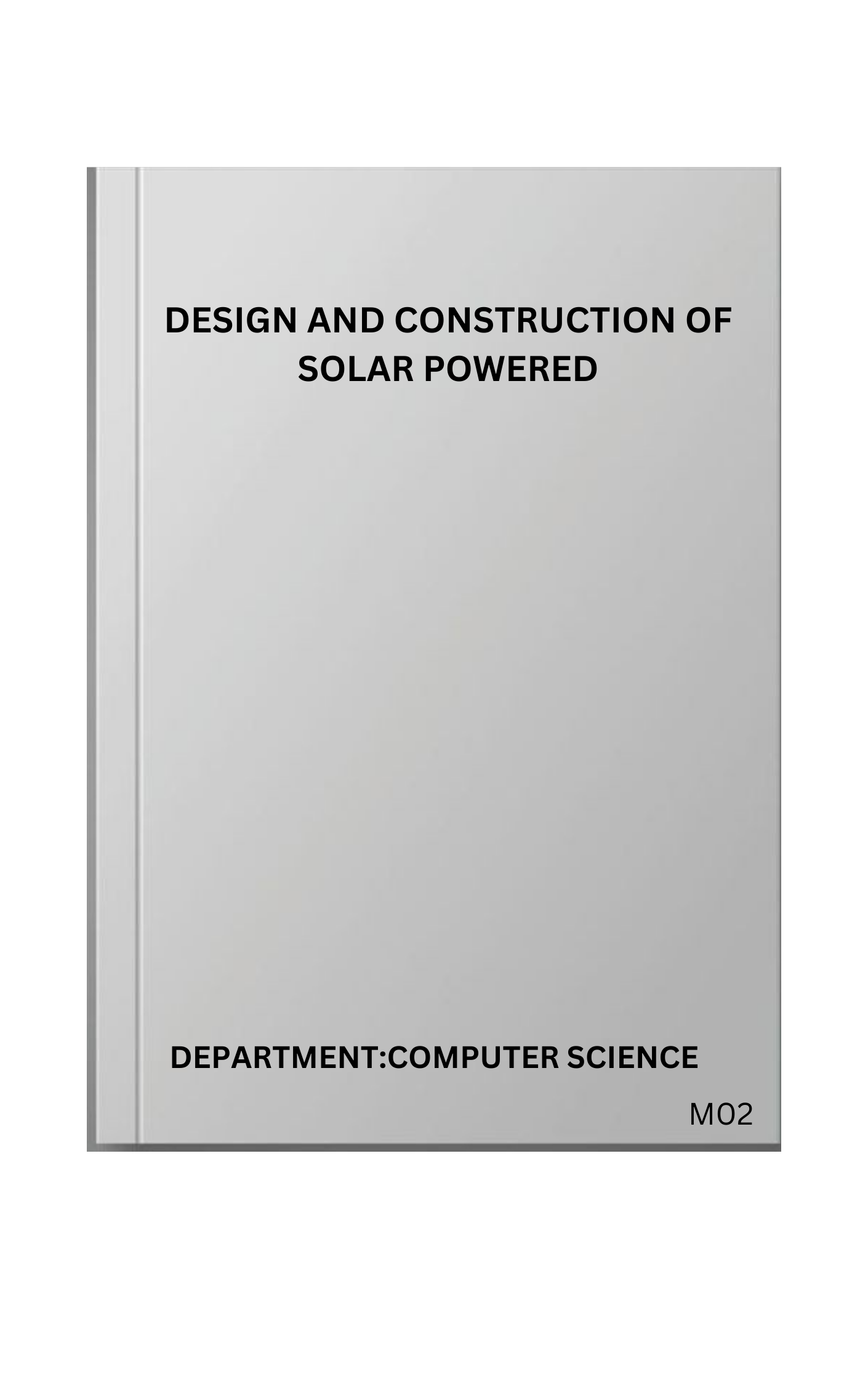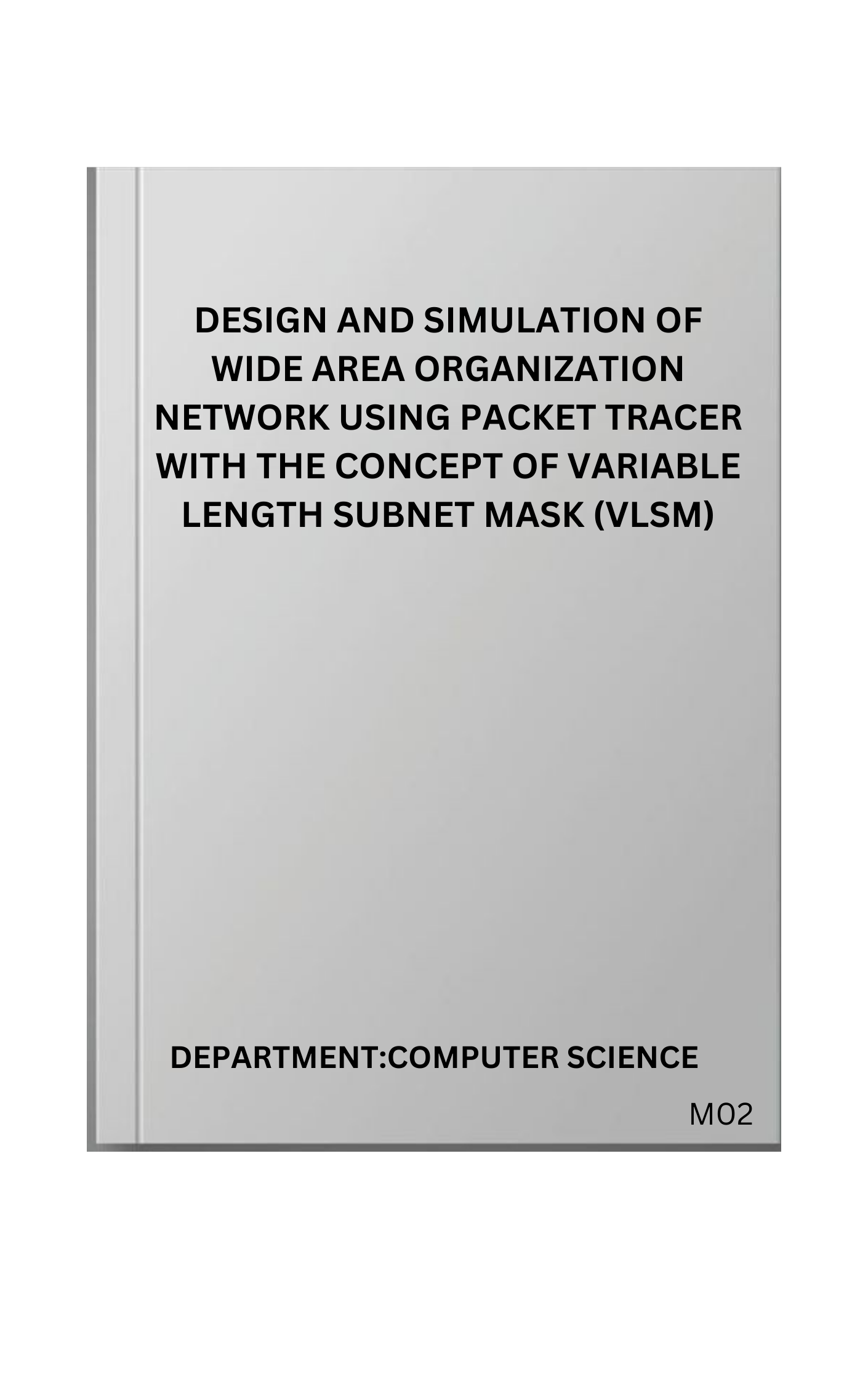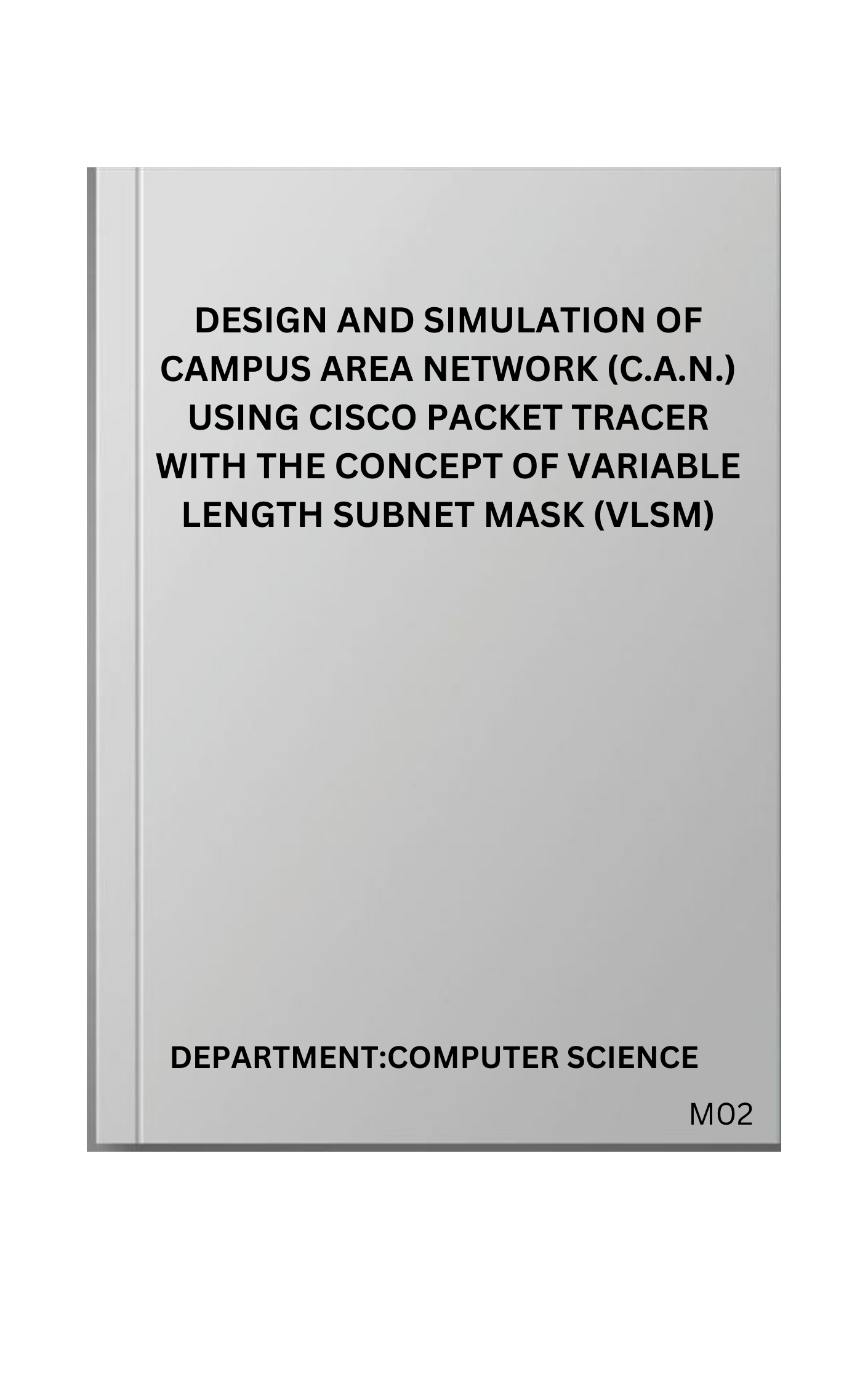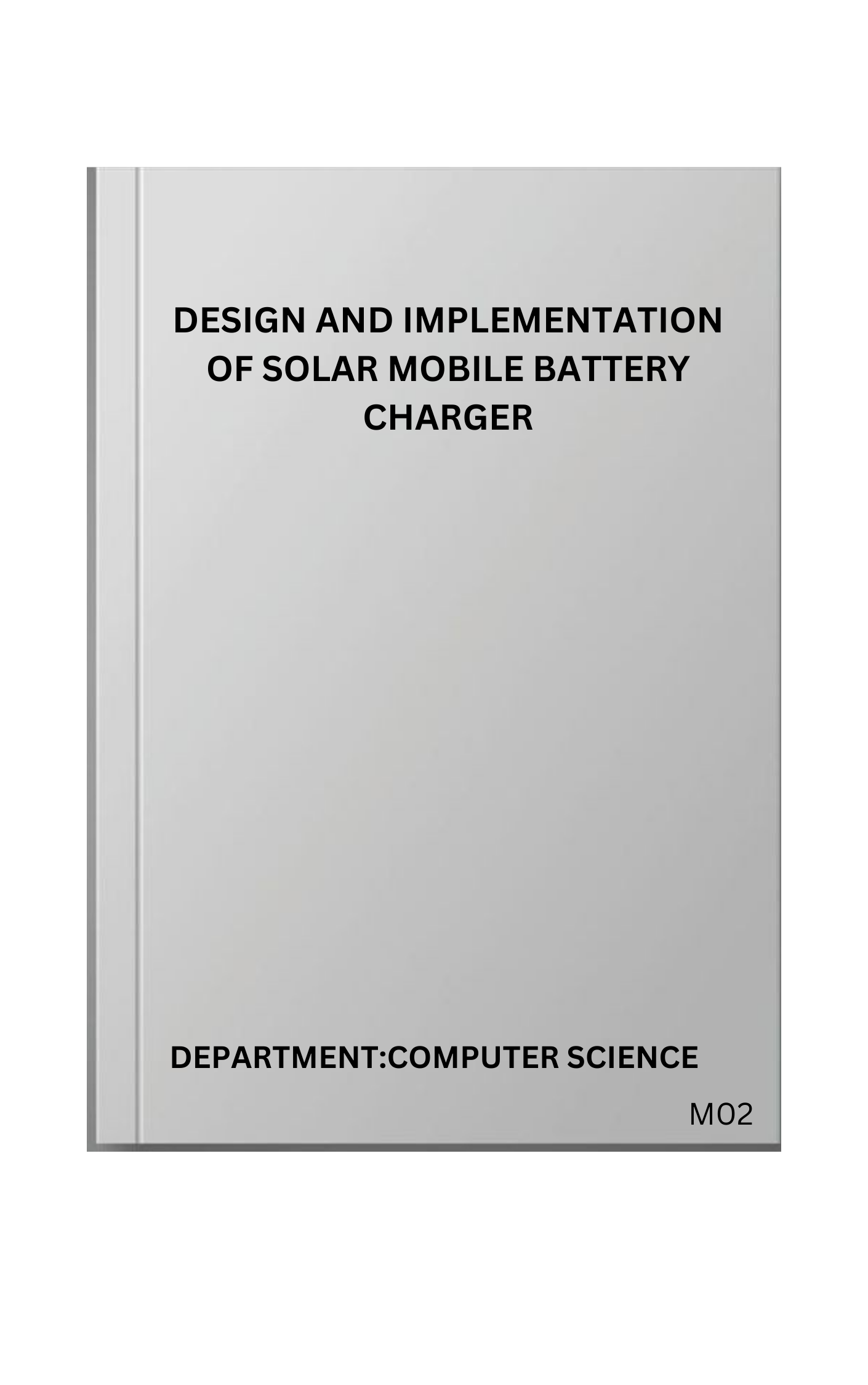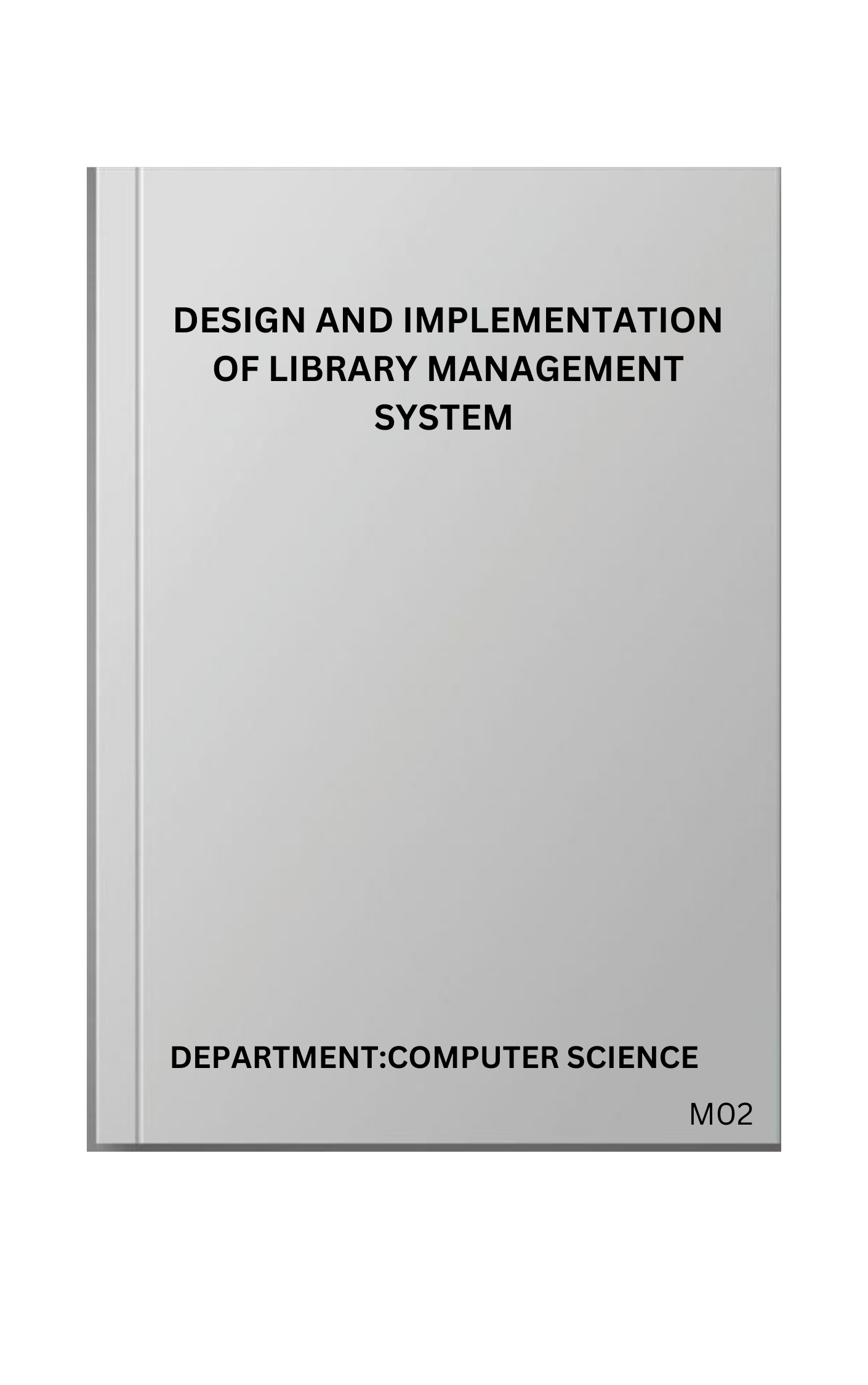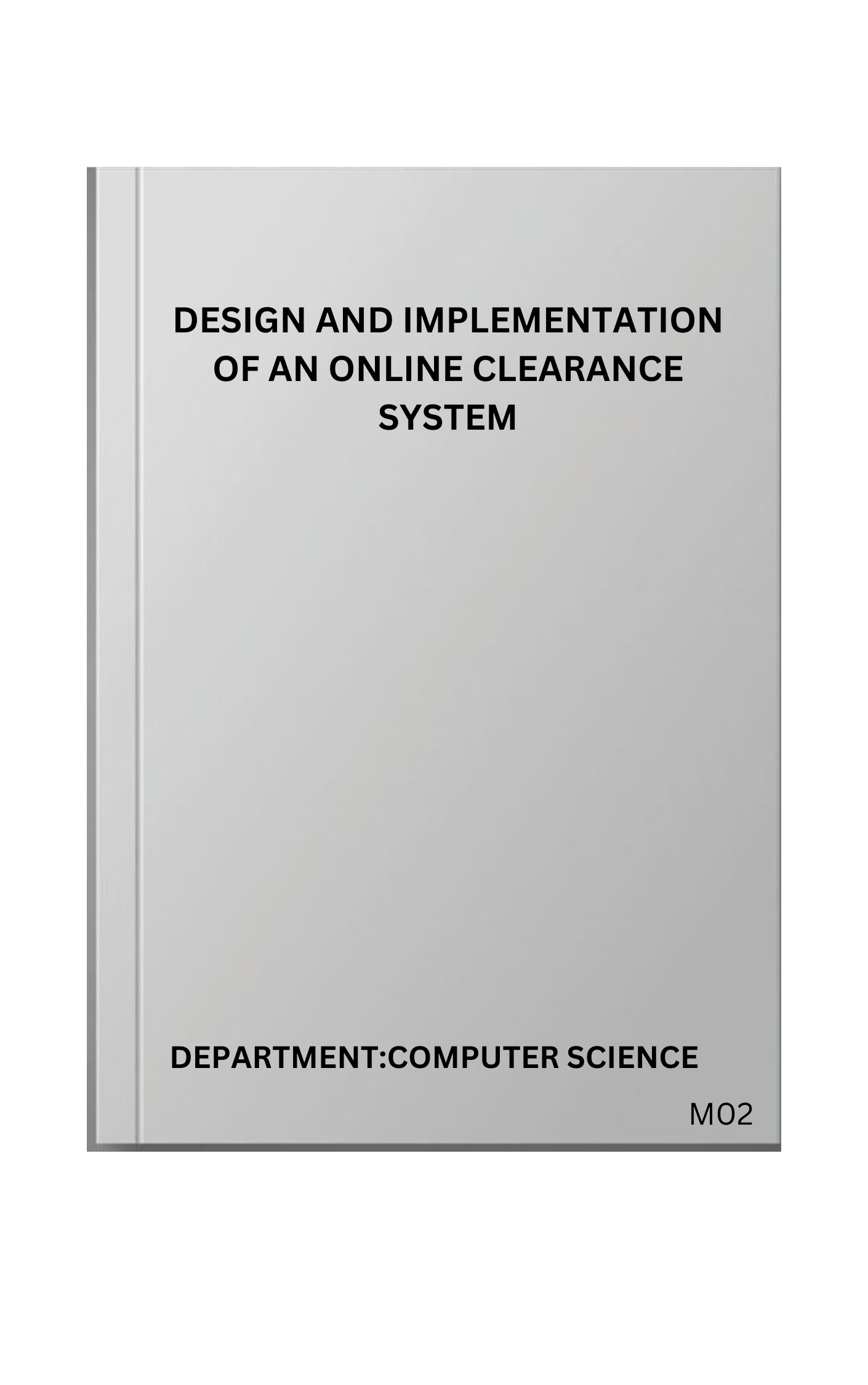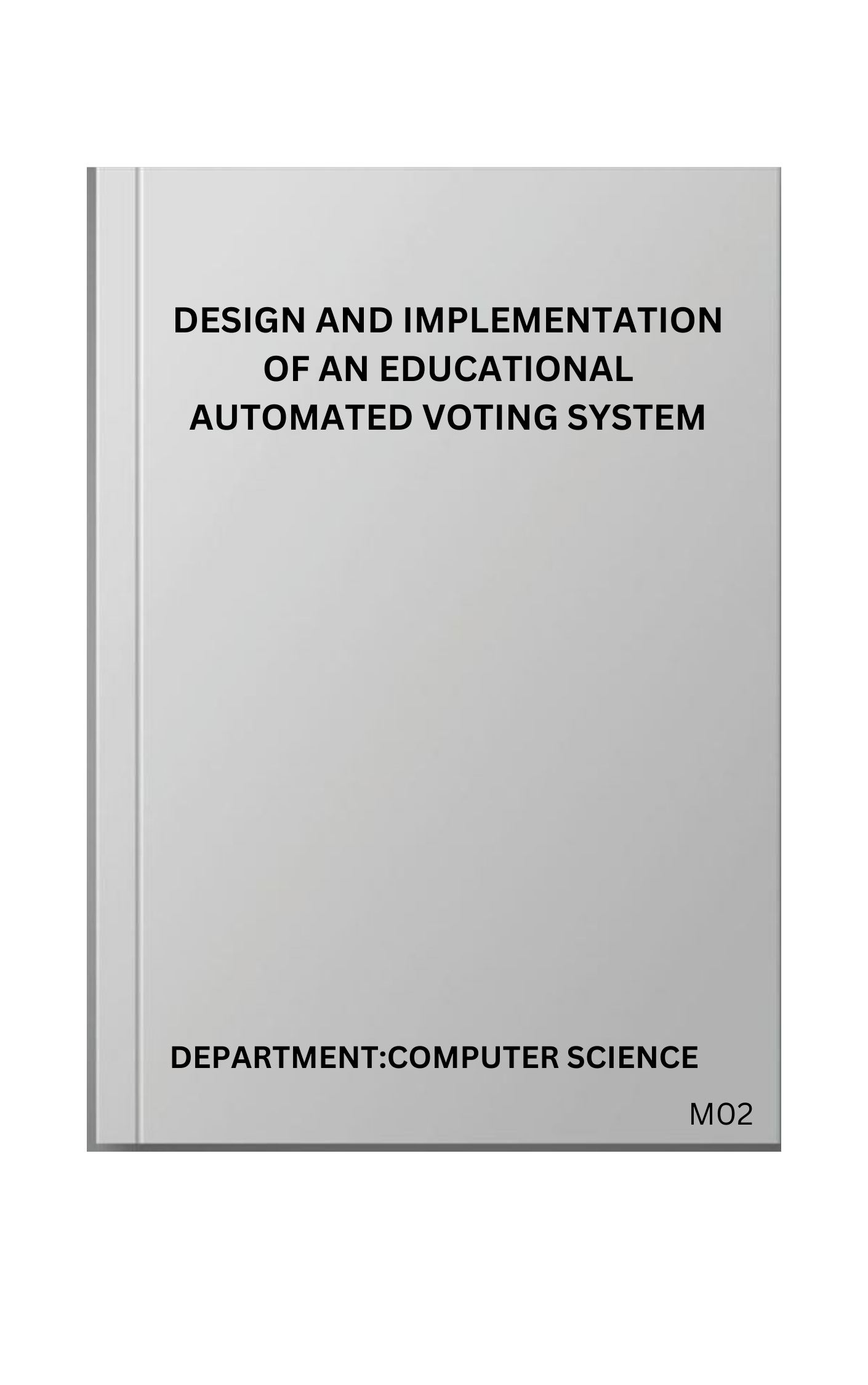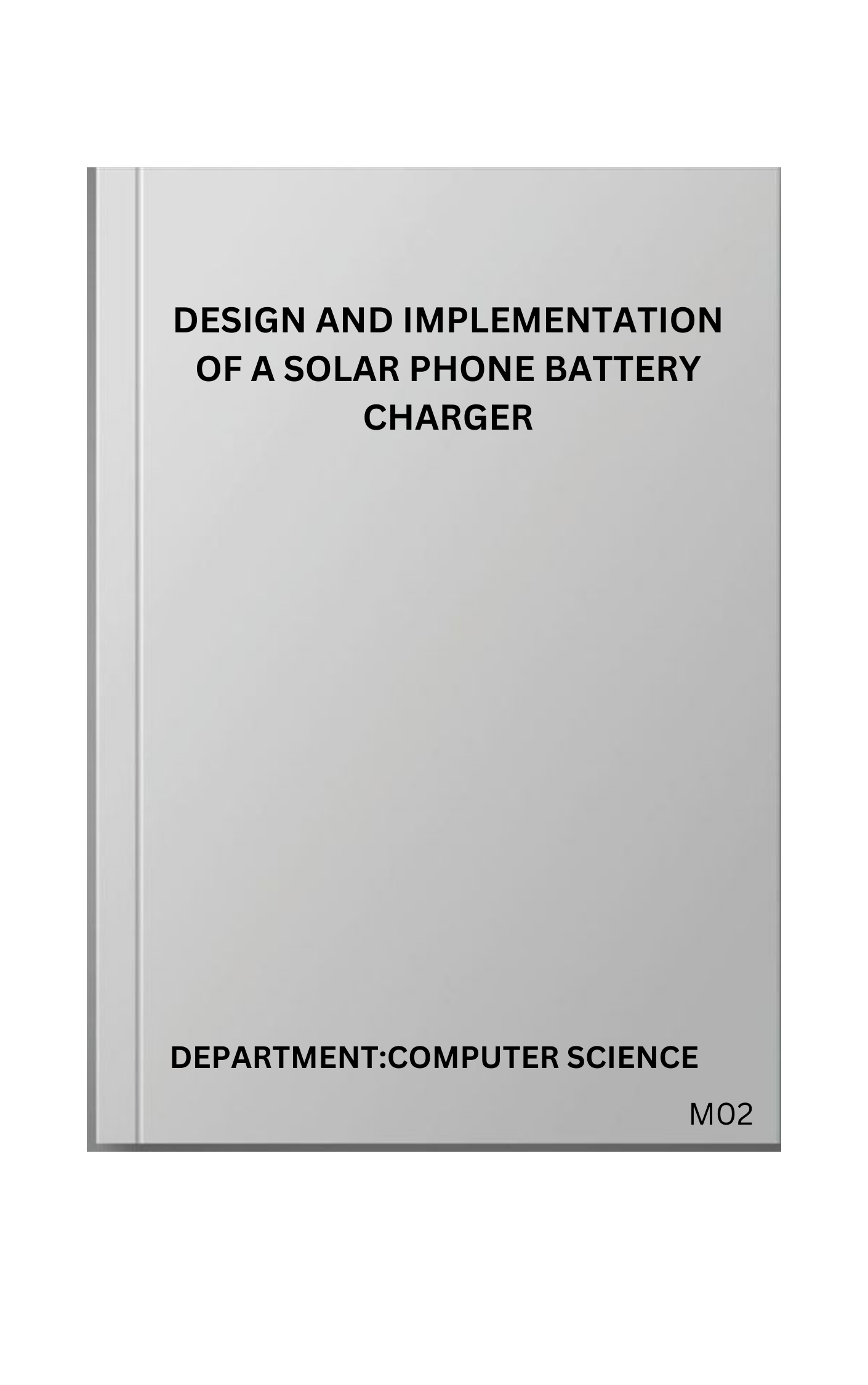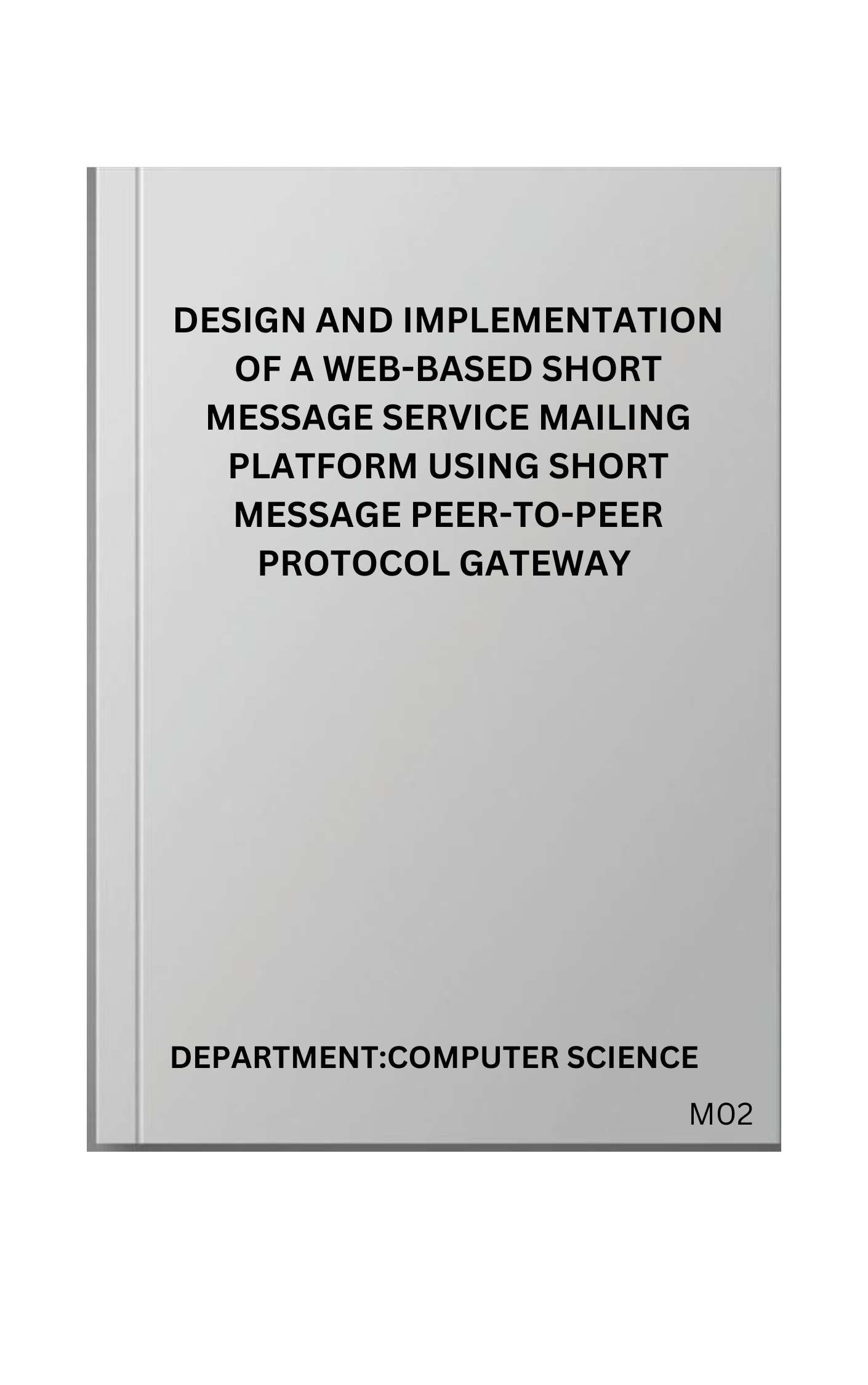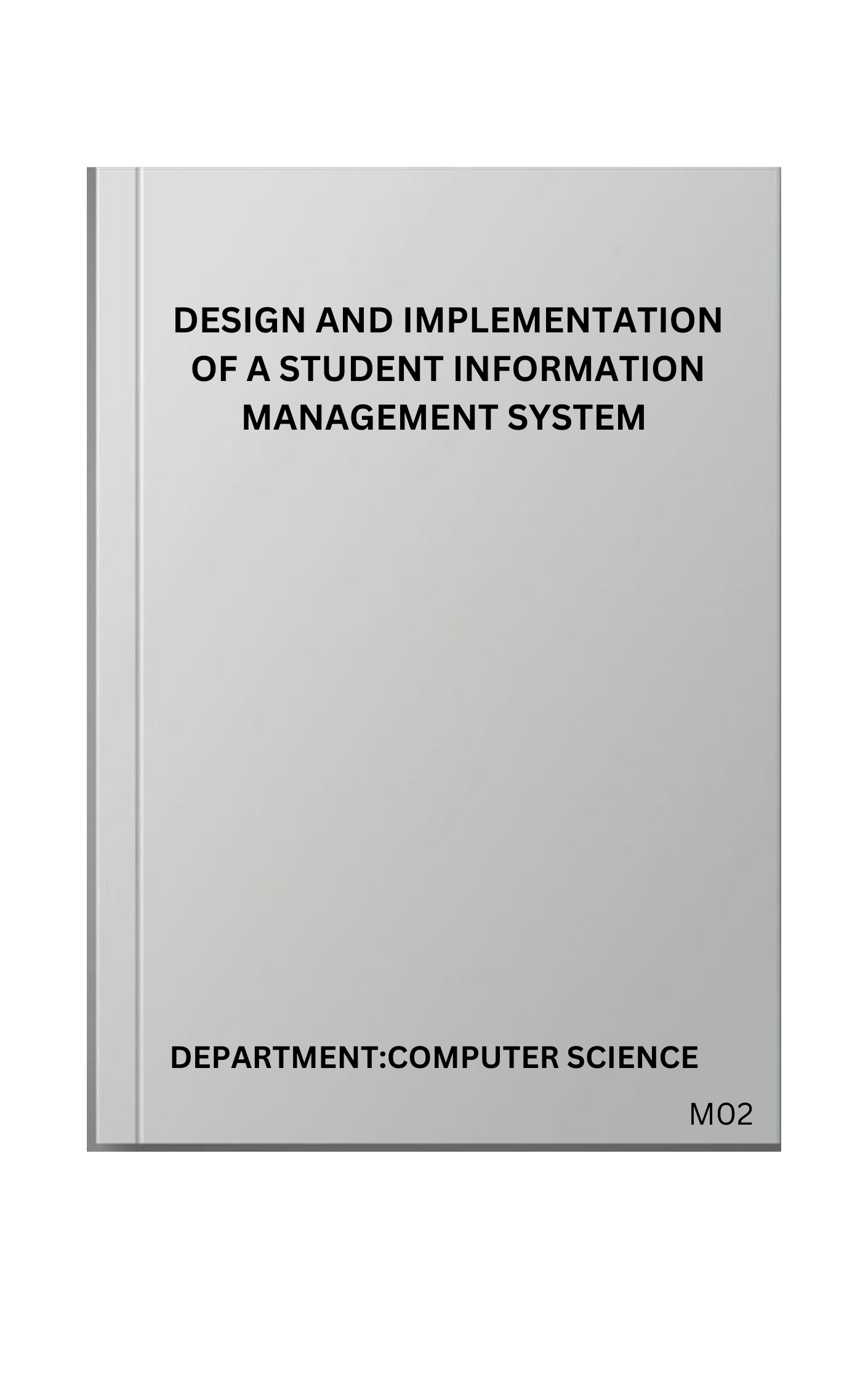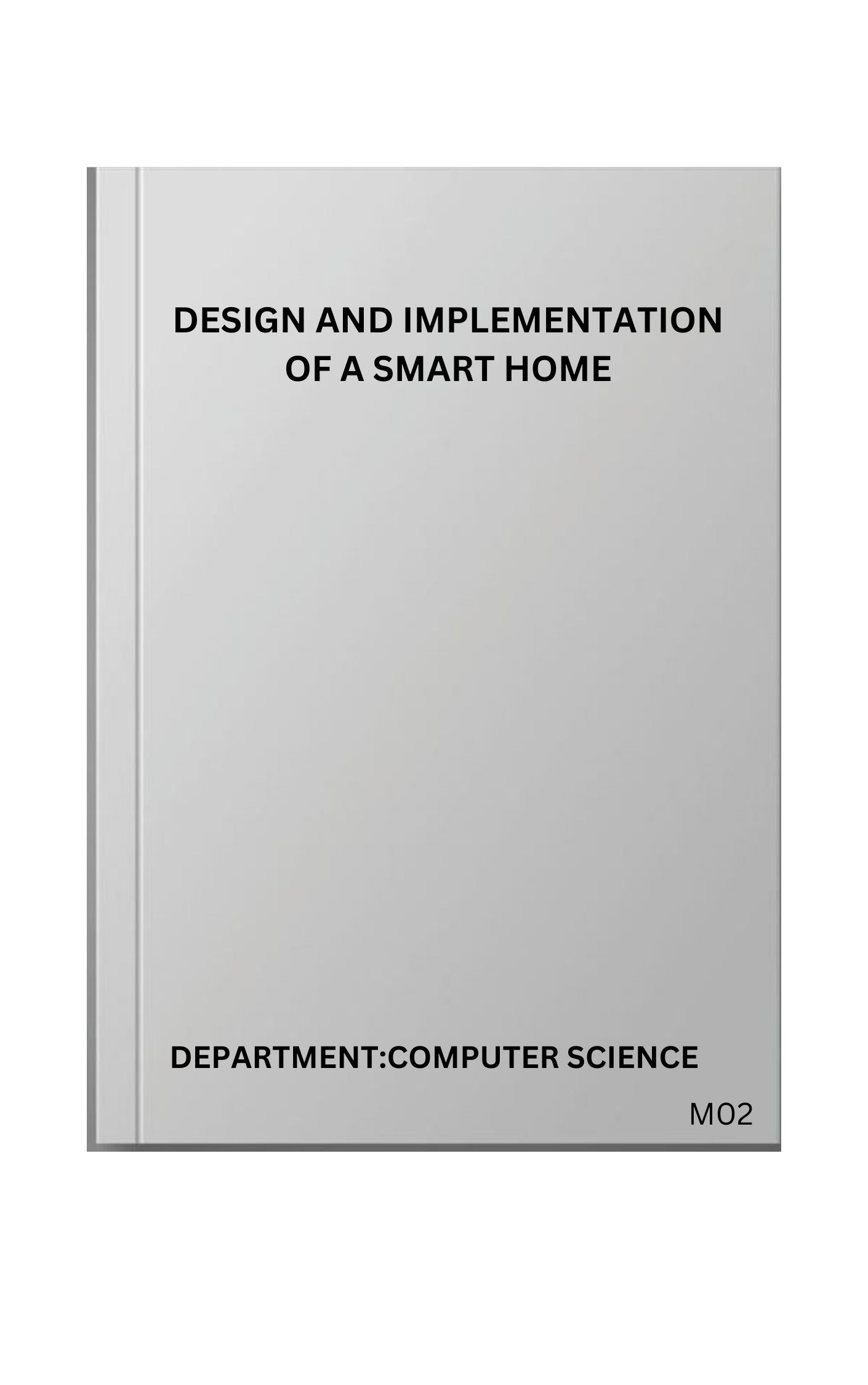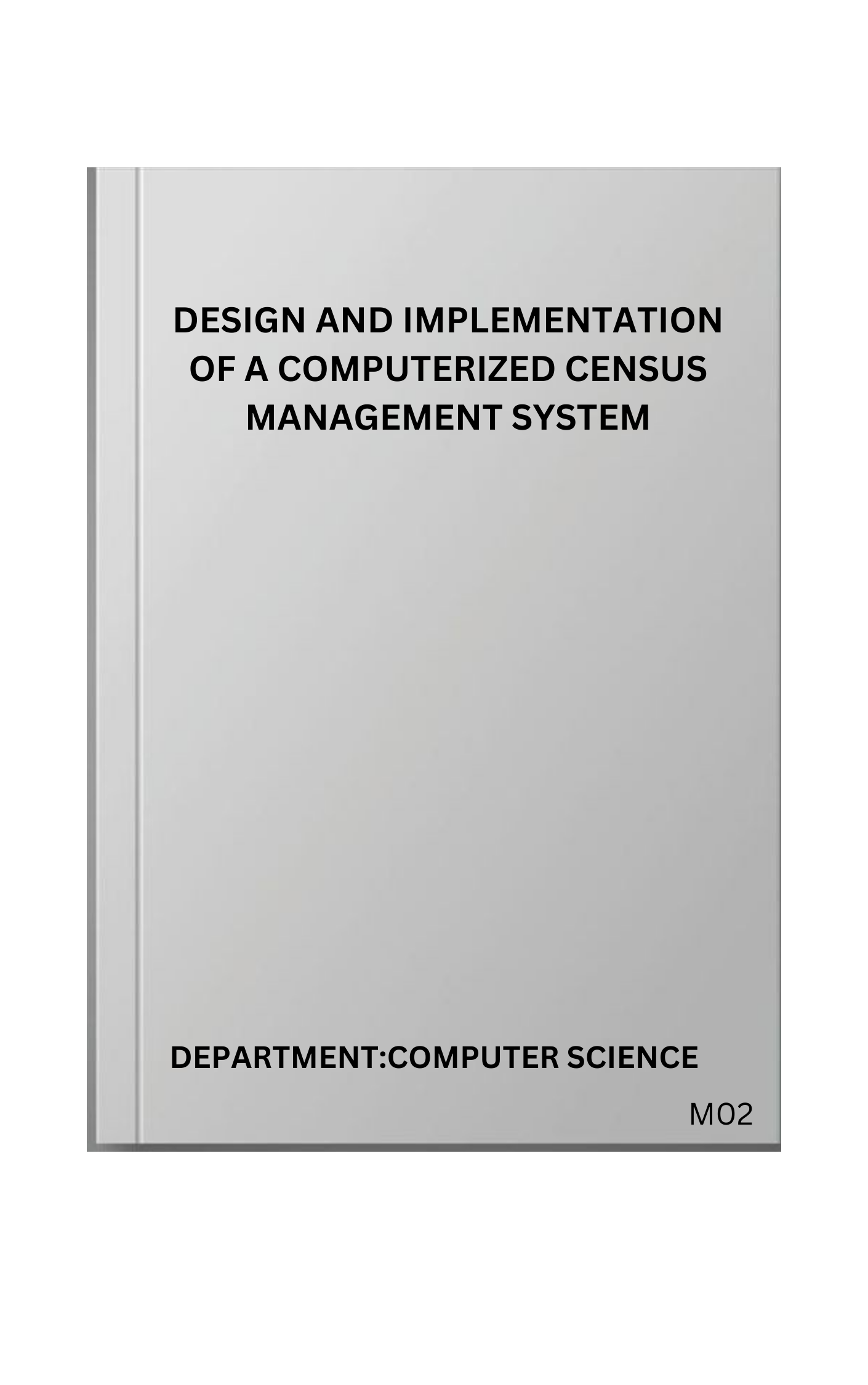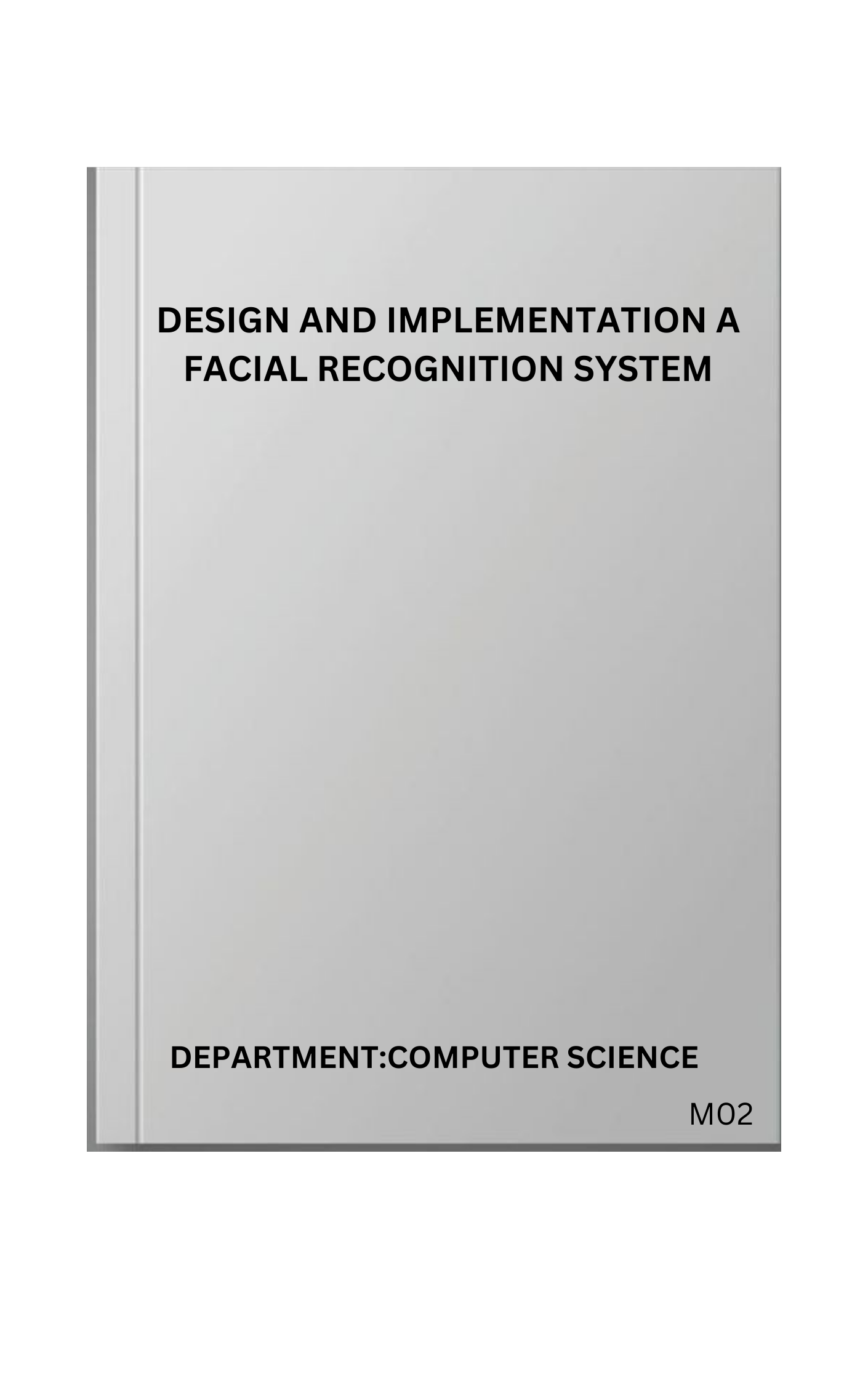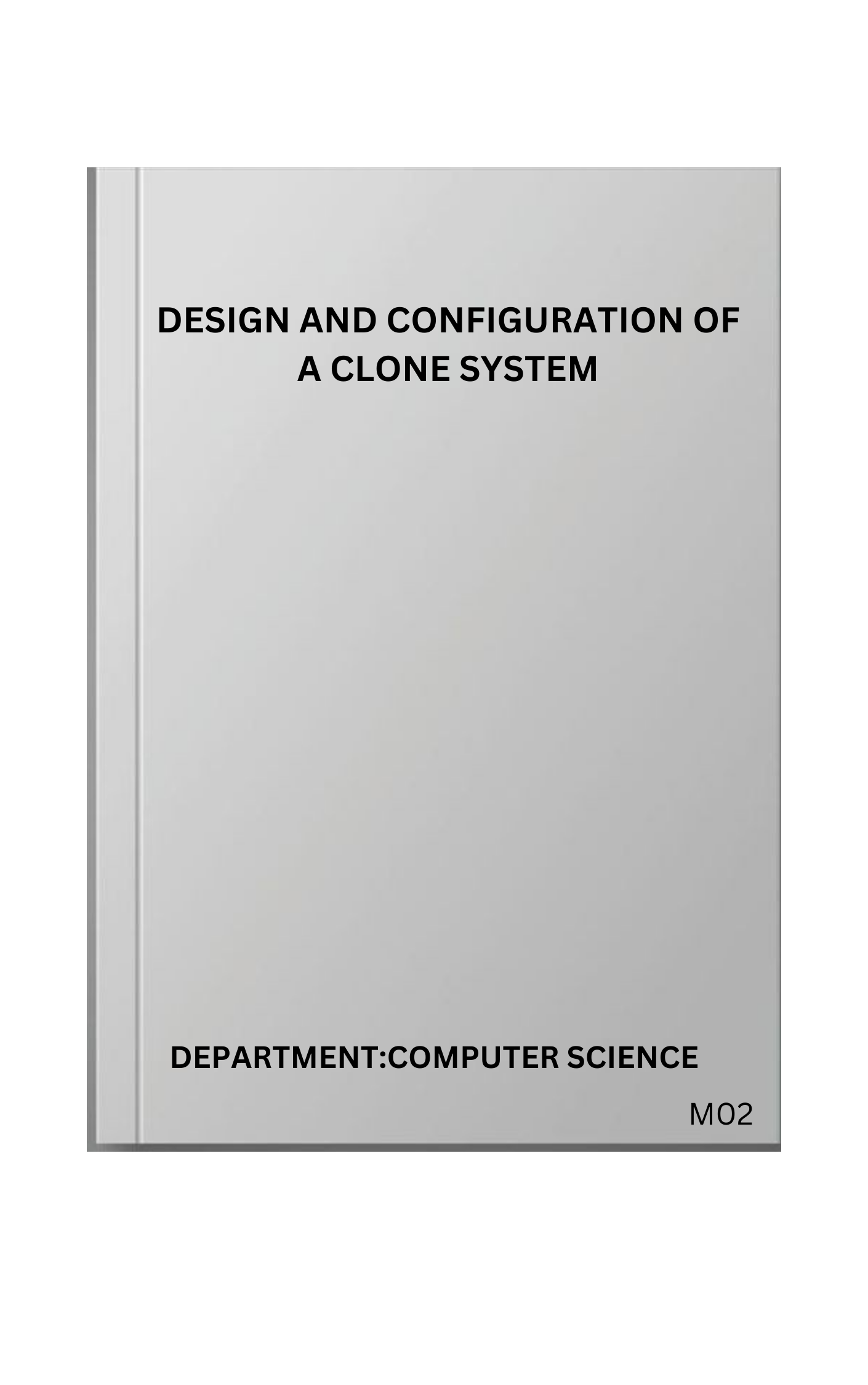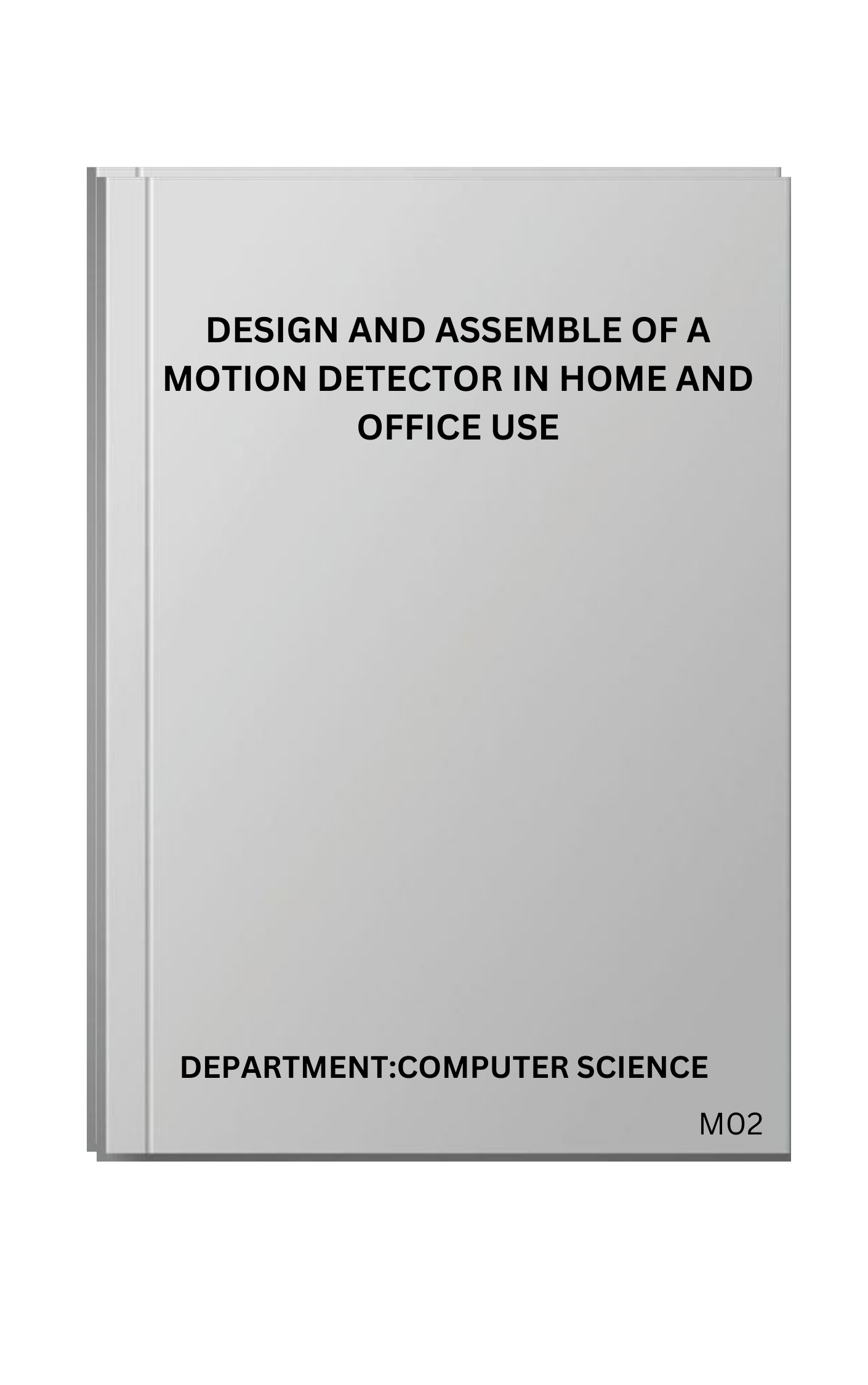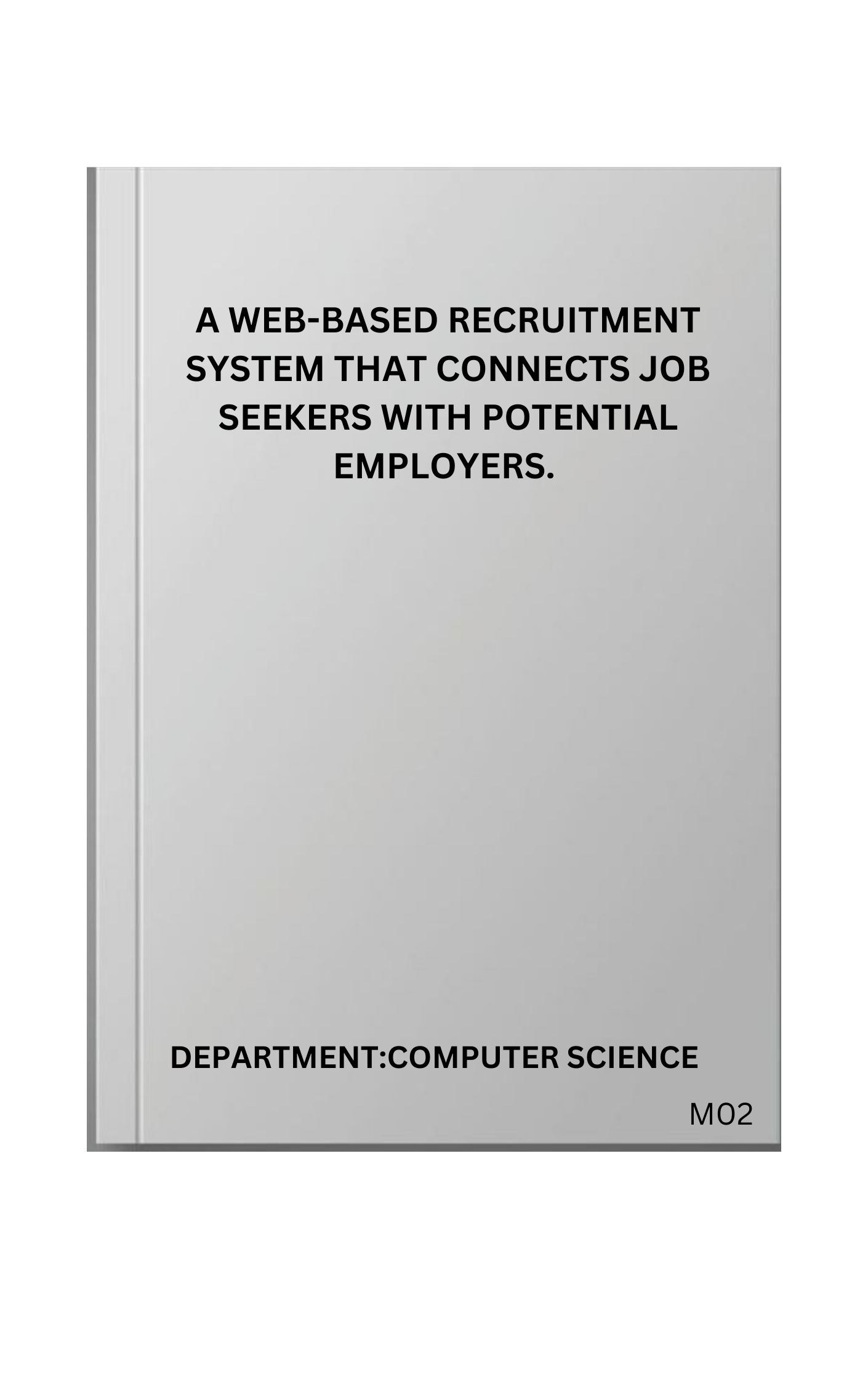CHAPTER ONE: INTRODUCTION
1.1Background to the Study
Globally, the issue of employee Performance has been a subject of ongoing discourse, as organizations continually seek ways to improve it in order to remain competitive. In developed economies, trends such as automation, artificial intelligence (AI), and remote work have revolutionized how Performance is measured and achieved. These technologies allow for more efficient workflows, enabling employees to focus on high-value tasks. However, challenges such as employee disengagement, burnout, and the demand for work-life balance have emerged, affecting Performance levels (Hemalatha, Barani & Vijayakumar, 2024).
In Africa, particularly in the sub-Saharan region, the Performance challenges are multifaceted. Many African countries face issues such as inadequate infrastructure, weak institutional frameworks, and limited access to modern technologies, all of which impede employee Performance. In addition, the continent's labor market is characterized by high levels of informal employment, which complicates the adoption of standard HRM practices that can boost Performance. Furthermore, employee motivation and engagement are often hampered by low wages, poor working conditions, and limited opportunities for career advancement. In this context, human resource management must navigate complex socioeconomic factors to enhance Performance (Emile & Mbungu, 2023).
Nigeria, the most populous country in Africa, reflects many of these broader continental challenges, but also has its own unique issues when it comes to employee Performance. The Transmission Company of Nigeria (TCN), Delta Sub-Region, Ughelli, like many other organizations in the country, faces significant hurdles in optimizing Performance. The Nigerian workforce is confronted with issues such as erratic power supply, outdated infrastructure, and bureaucratic inefficiencies. These factors limit the ability of employees to perform their roles efficiently. Moreover, the lack of investment in employee training and development further diminishes Performance, as workers often lack the skills needed to adapt to technological changes and improve their output. (Onochie, Egware & Eyakwanor, 2017).
In the Nigerian public sector, including organizations like the Transmission Company of Nigeria, there is often a disconnect between HRM policies and their implementation. Corruption, favoritism, and poor performance appraisal systems undermine efforts to incentivize high performance. This leads to low morale and a culture of mediocrity, where Performance is compromised. Additionally, labor unrest and frequent strikes, driven by dissatisfaction with wages and working conditions, further disrupt organizational efficiency. (IDyaji, Ibietan & Abasilim, 2020).
Another major trend affecting employee Performance in Nigeria is the growing emphasis on work-life balance. As in many parts of the world, Nigerian employees are increasingly seeking job satisfaction that goes beyond financial compensation, including flexible work arrangements, better health benefits, and a supportive work environment. However, many organizations in Nigeria, especially in the public sector, are slow to adopt these changes, which can result in higher employee turnover and reduced Performance (Sadat & Rekha, 2024).
Human resource management plays a pivotal role in shaping employee Performance in any organization. For the Transmission Company of Nigeria, Delta Sub-Region, Ughelli, addressing the challenges of poor infrastructure, inadequate training, and ineffective HRM practices is critical to boosting employee performance. As global trends such as technological advancements and evolving work expectations influence Performance, Nigerian organizations must adapt their HRM strategies to align with these changes, ensuring that employees are motivated, engaged, and equipped to contribute to organizational success.
1.2Statement of the Problem
Although Human Resource Management (HRM) plays a vital role in improving employee Performance, many organizations face challenges in its effective implementation. Recruitment and selection processes are crucial for securing the right talent for organizational roles. However, in the case of the Transmission Company of Nigeria (TCN), it remains unclear how the effectiveness of these processes impacts employee engagement. A deeper investigation is needed to determine whether mismatches between job requirements and employee skills contribute to disengagement and reduced Performance (Oyadiran, Musa & Agunbiade, 2023).
Training and development programs are essential for enhancing employee competencies. However, within TCN, the extent to which these programs are implemented and their influence on skill improvement is uncertain. A thorough analysis is required to assess whether a lack of strong training initiatives hinders skill development, thereby affecting overall Performance (Arulsamy et al., 2023).
A positive employee relations climate can foster a sense of belonging and mutual respect, leading to improved performance. Yet, it is unclear how such a climate correlates with employee output within TCN. An exploration is necessary to determine whether factors like communication, trust, and organizational support influence Performance levels.
Compensation and benefits are key motivators for employees, but in TCN, the impact of these packages on motivation remains uncertain. It is crucial to examine whether disparities in compensation or insufficient benefits affect employee motivation and Performance (Janes, 2018).
As a result this research work is carried out to investigate human resource management and employee Performance in an organization.
1.3 Research Questions
The research questions are as follows:
1.Does recruitment processes affect the employee efficiency Performance in electrical power industry?
2.Does comprehensive training programs enhance employee productivity in electrical power industry?
3.Does conducive working environment influence employee output in the electrical power industry?
4.Does a well-structured compensation package influence employee effectiveness the electrical power industry?
PAY TO GET COMPLETE PROJECT

